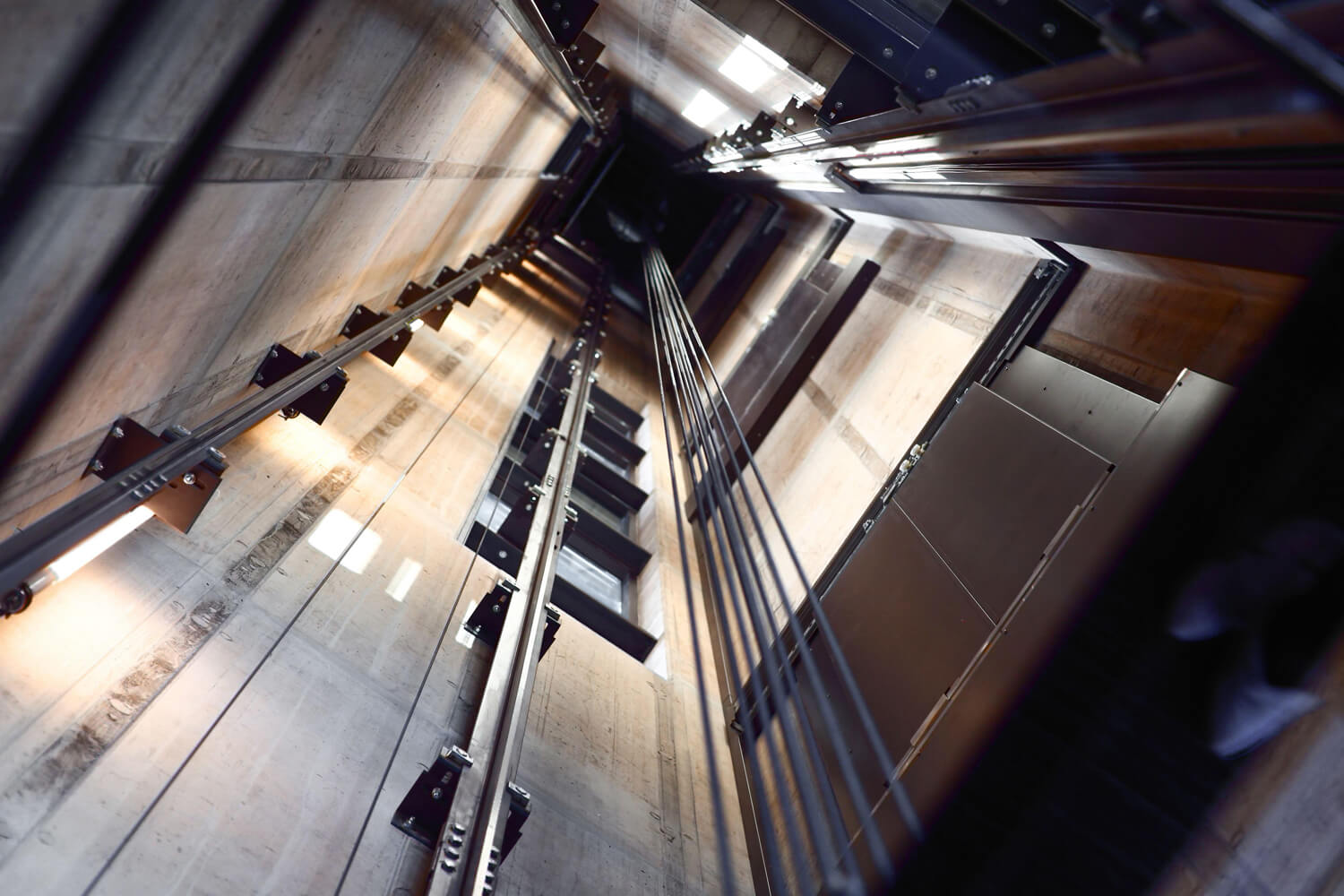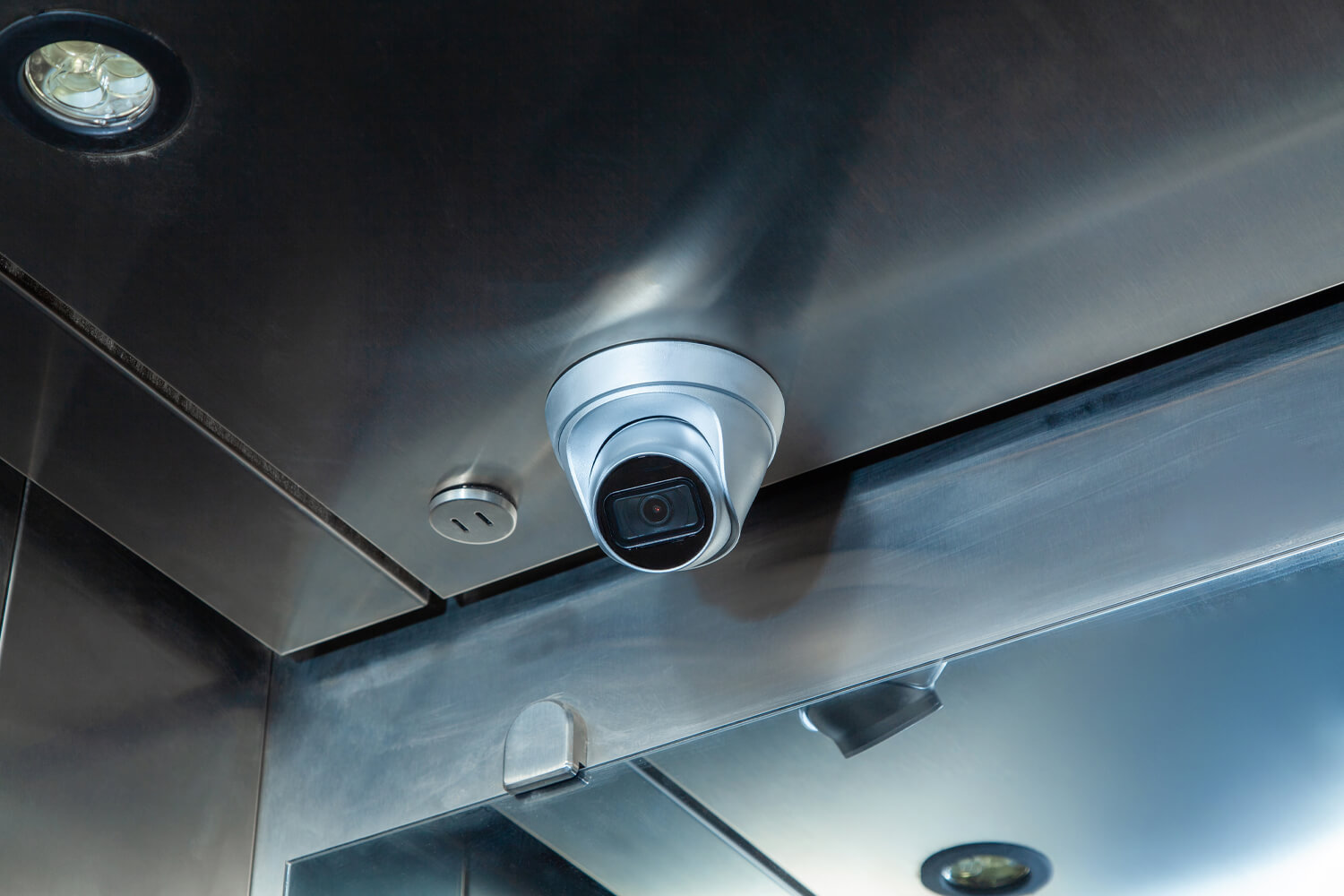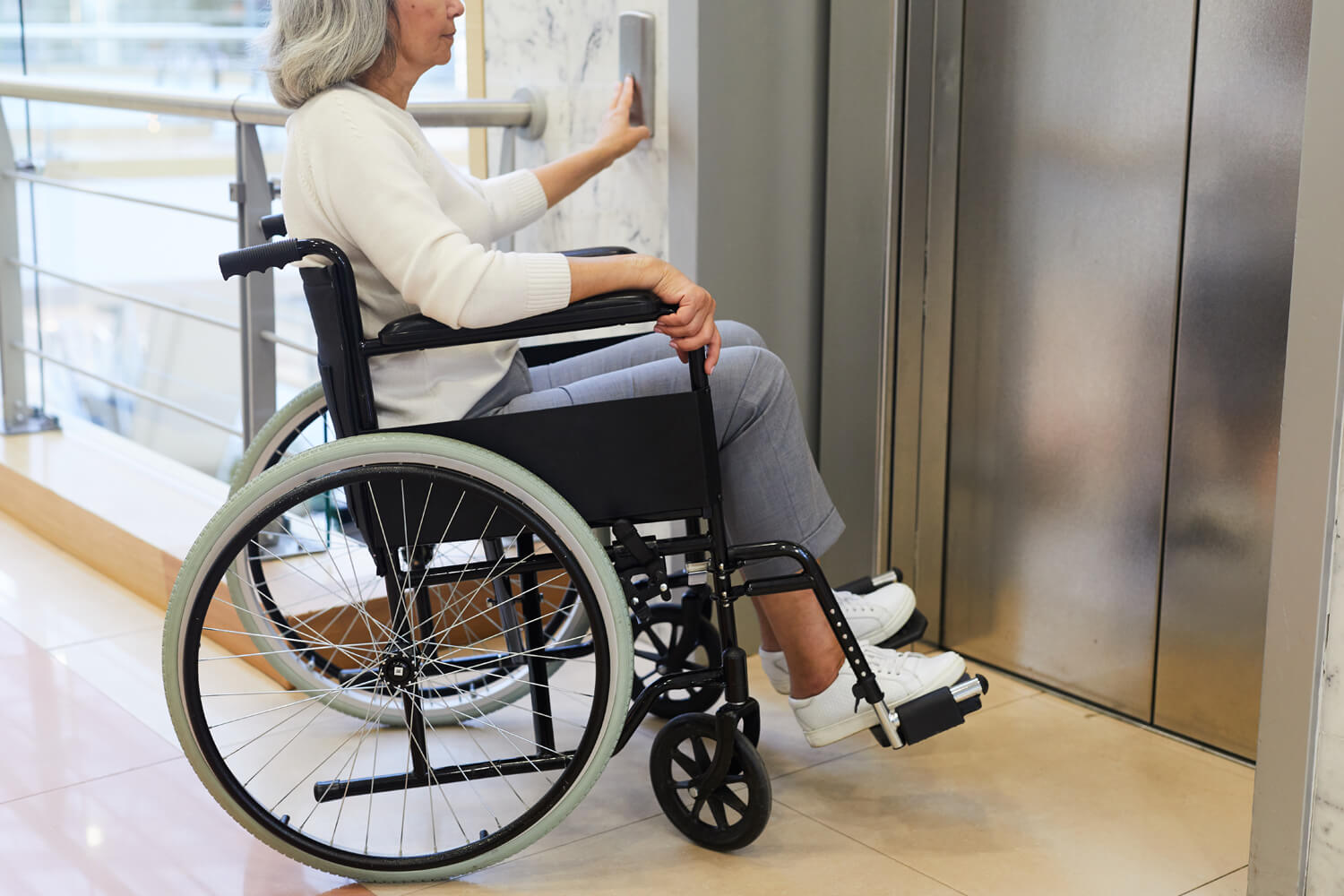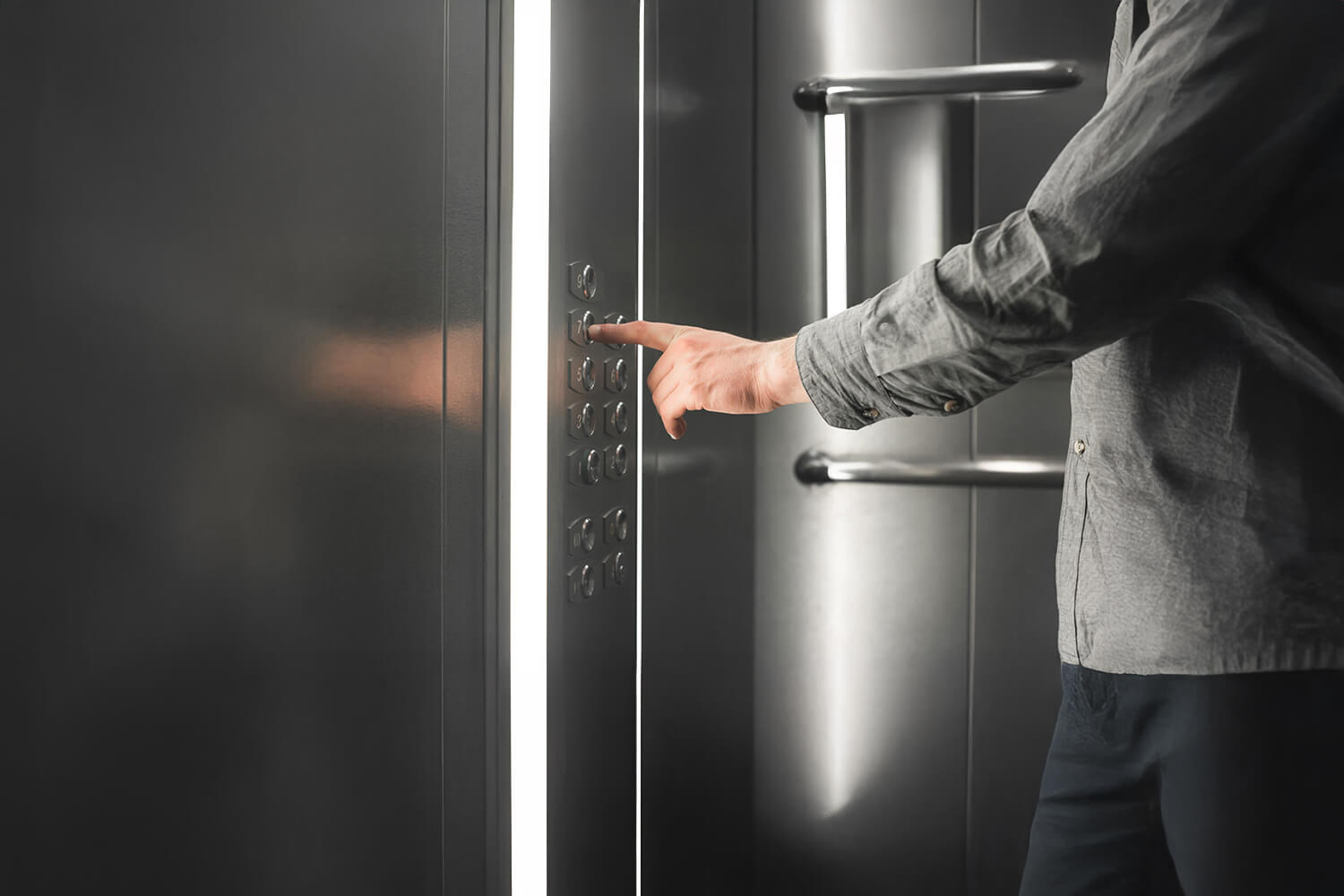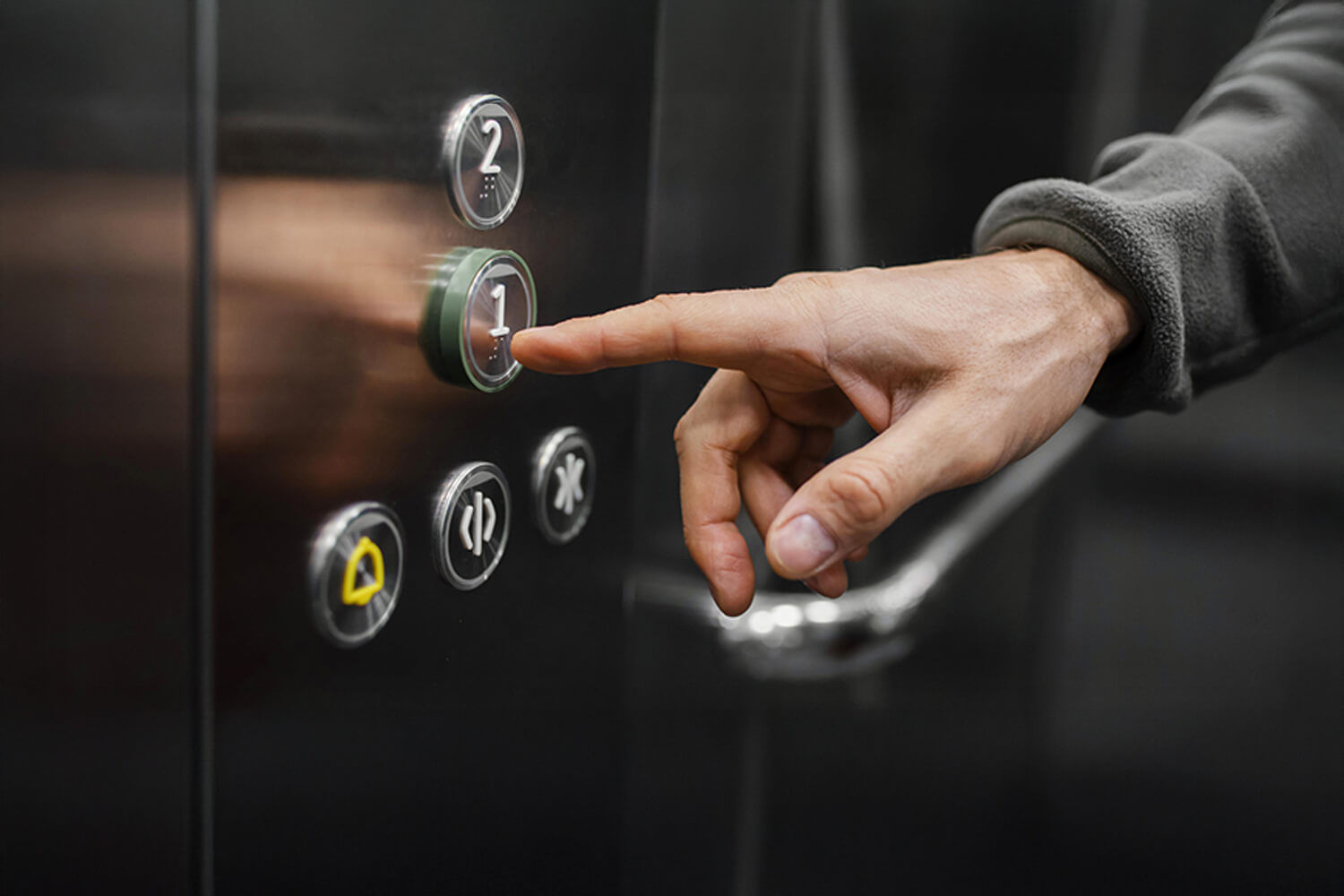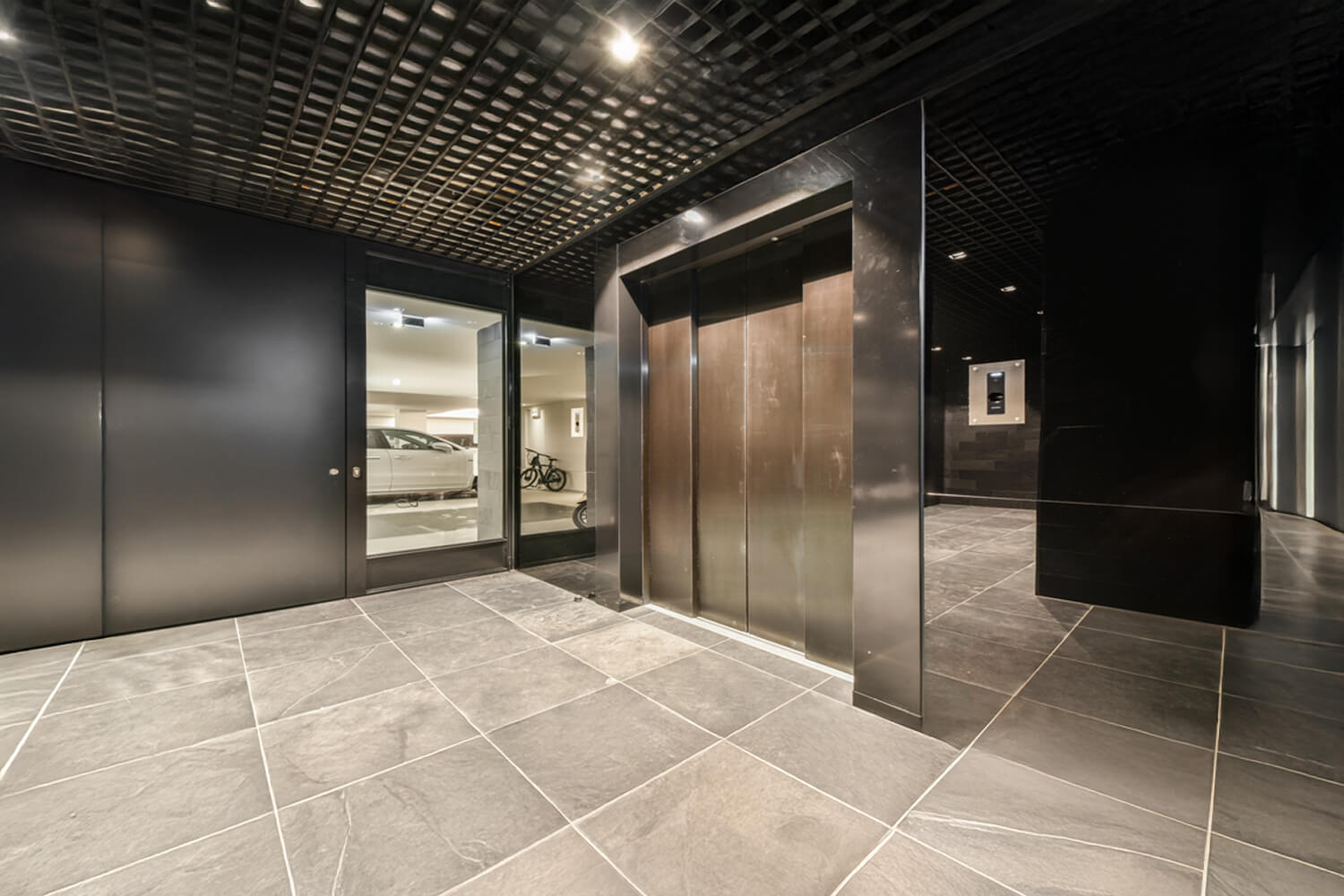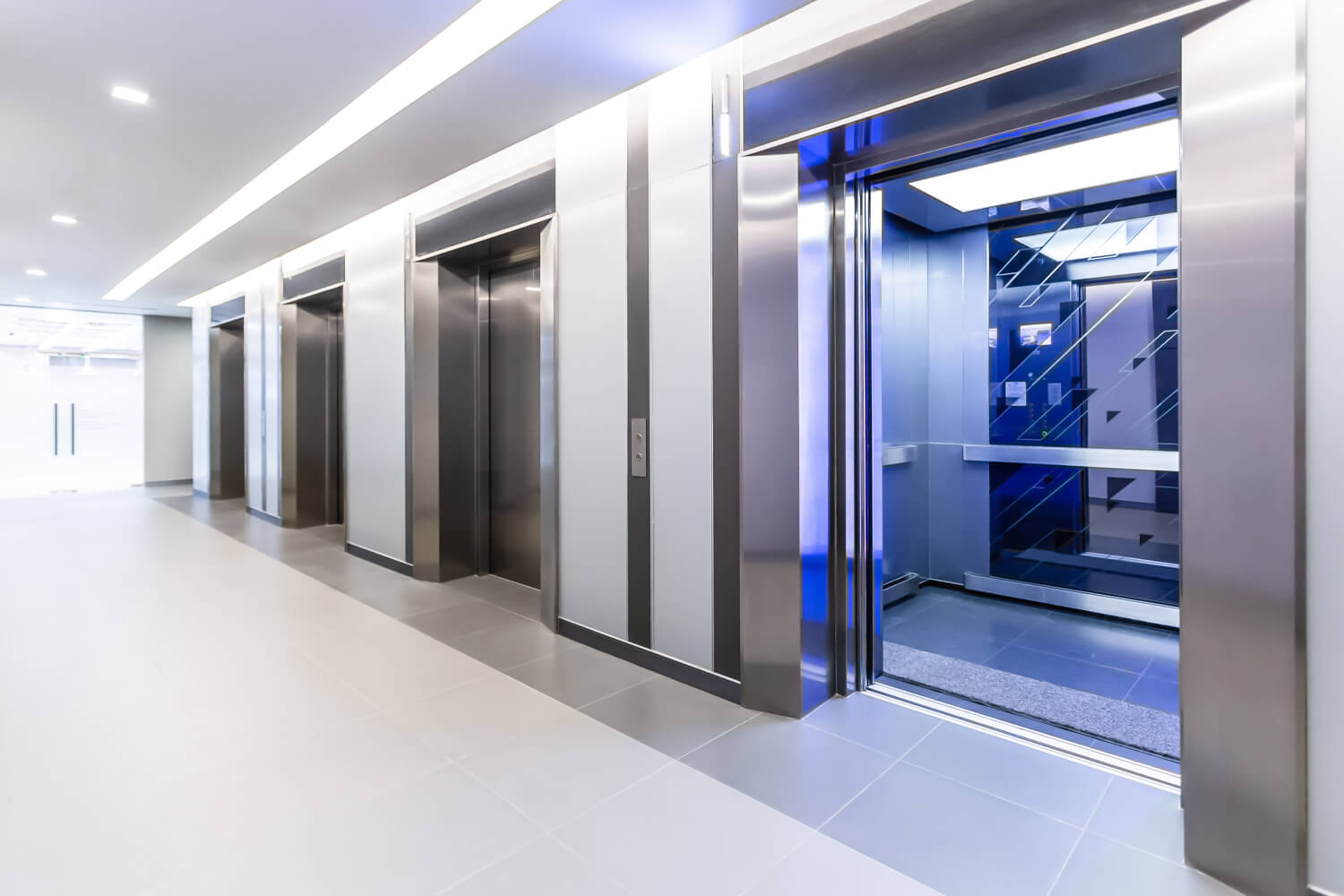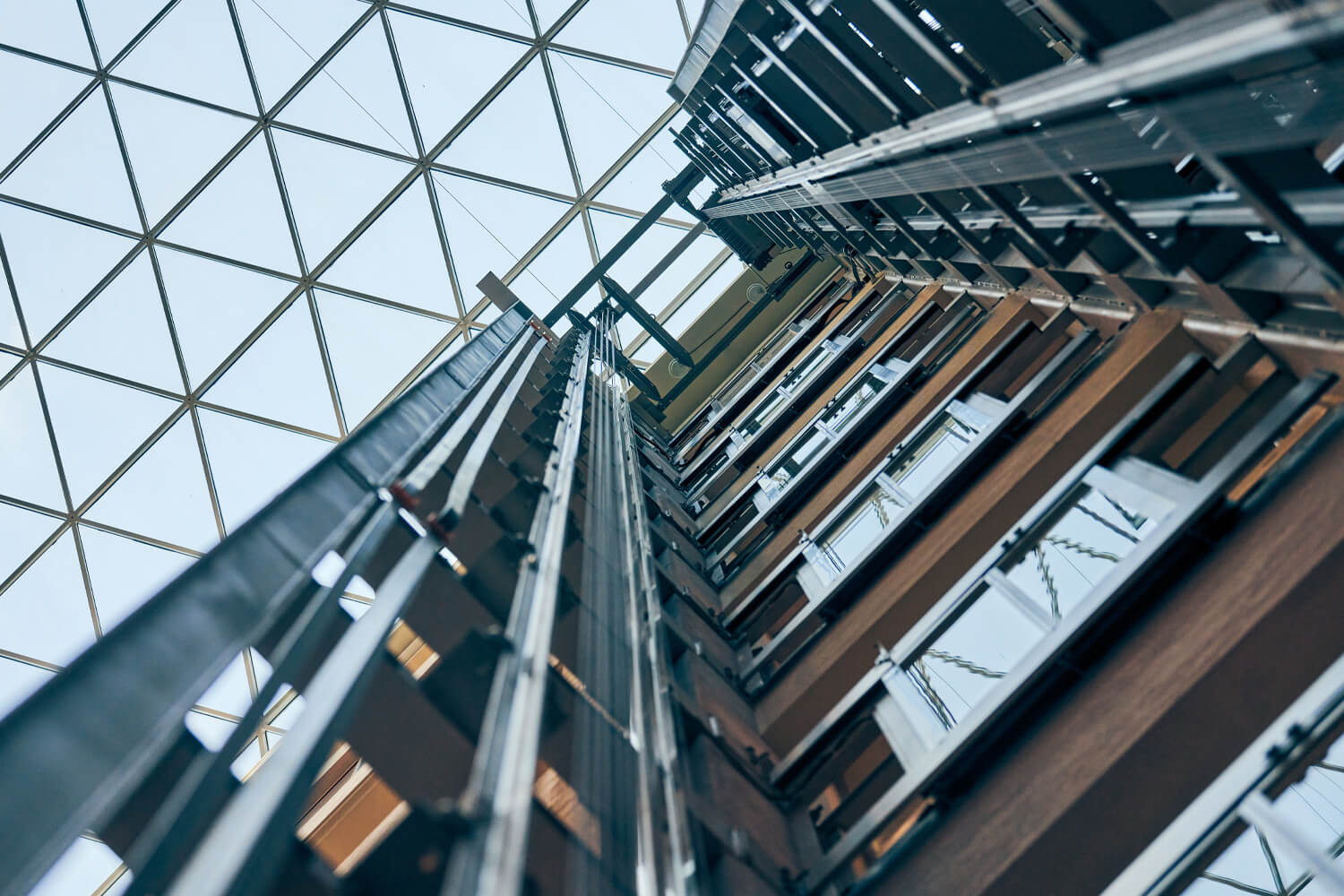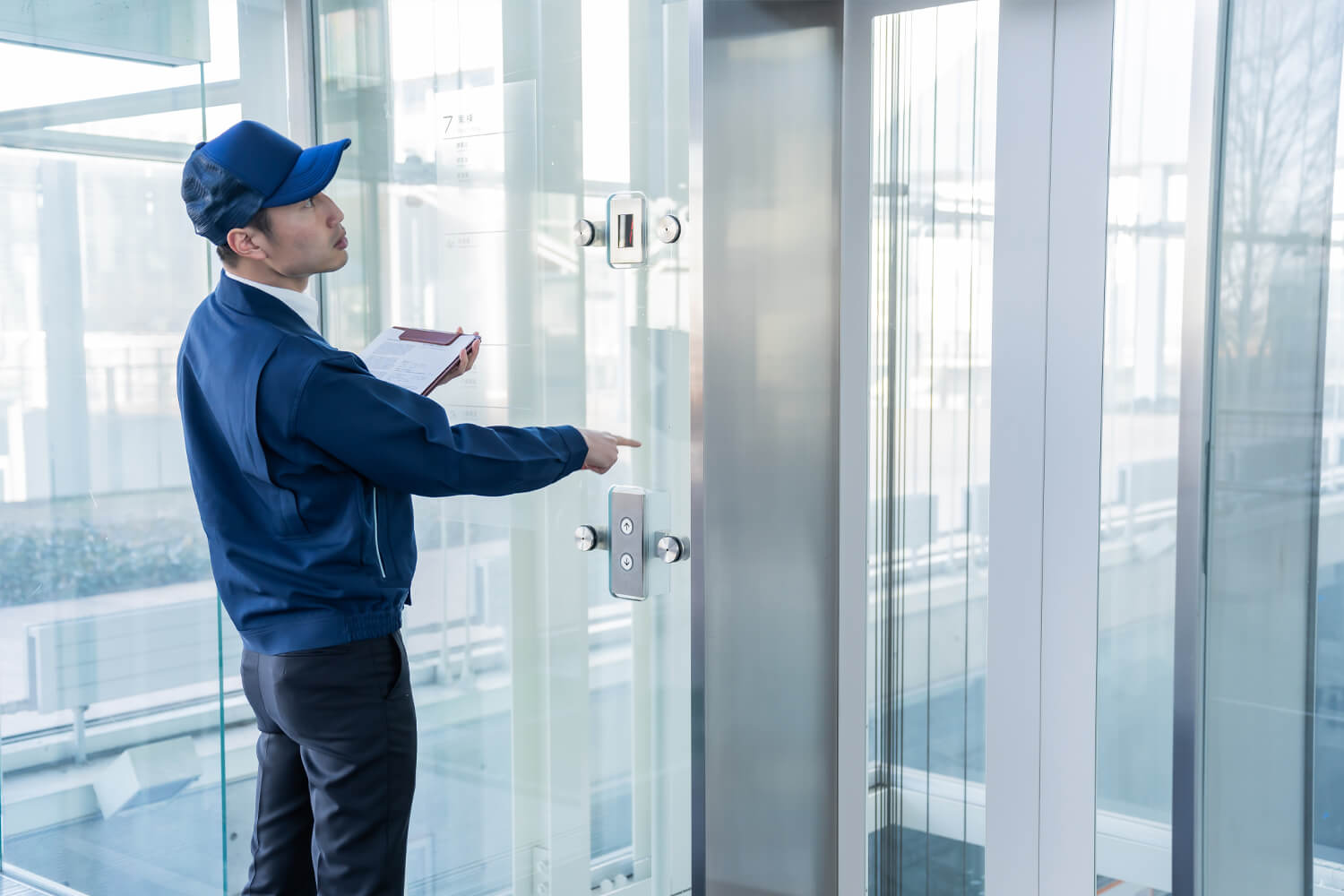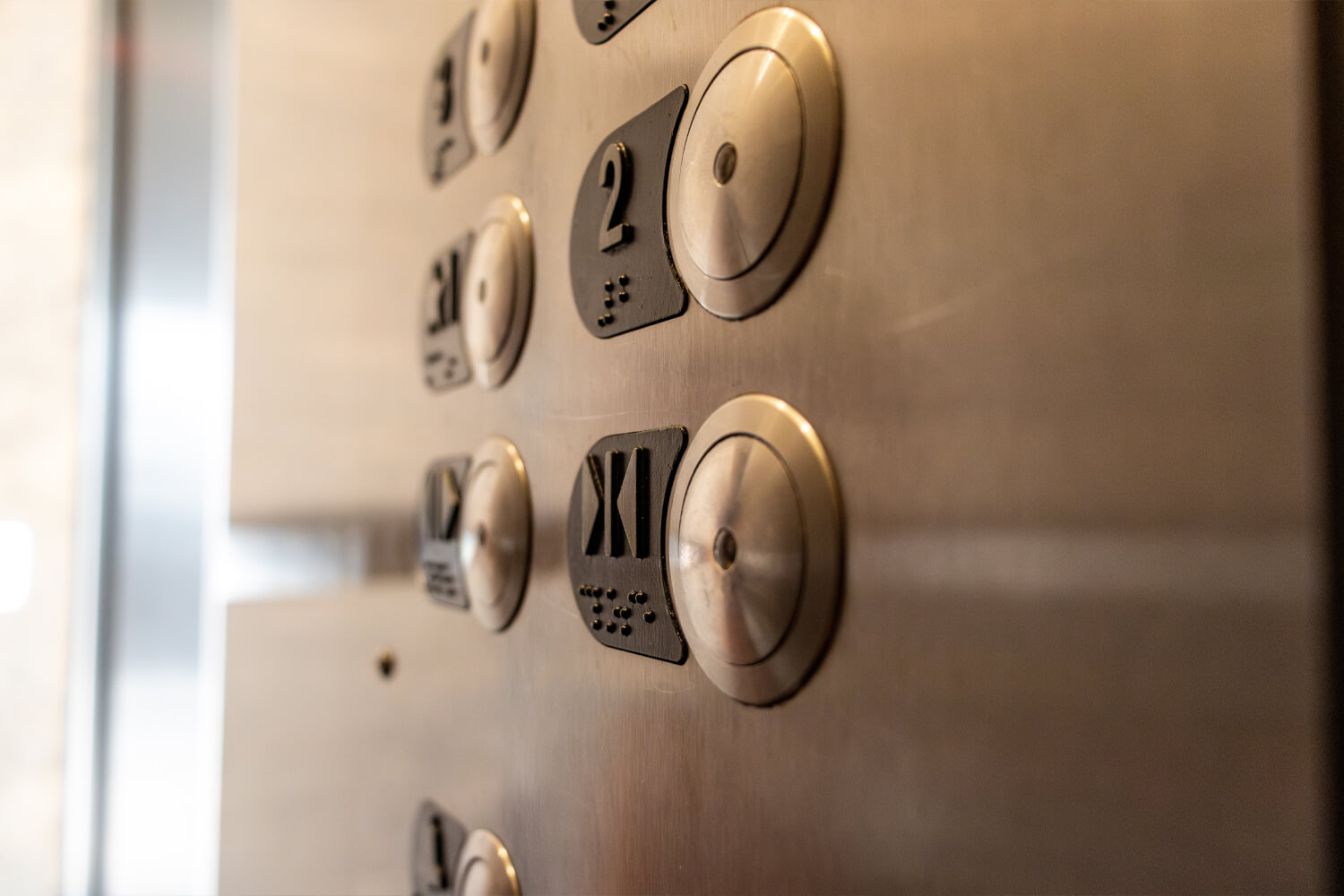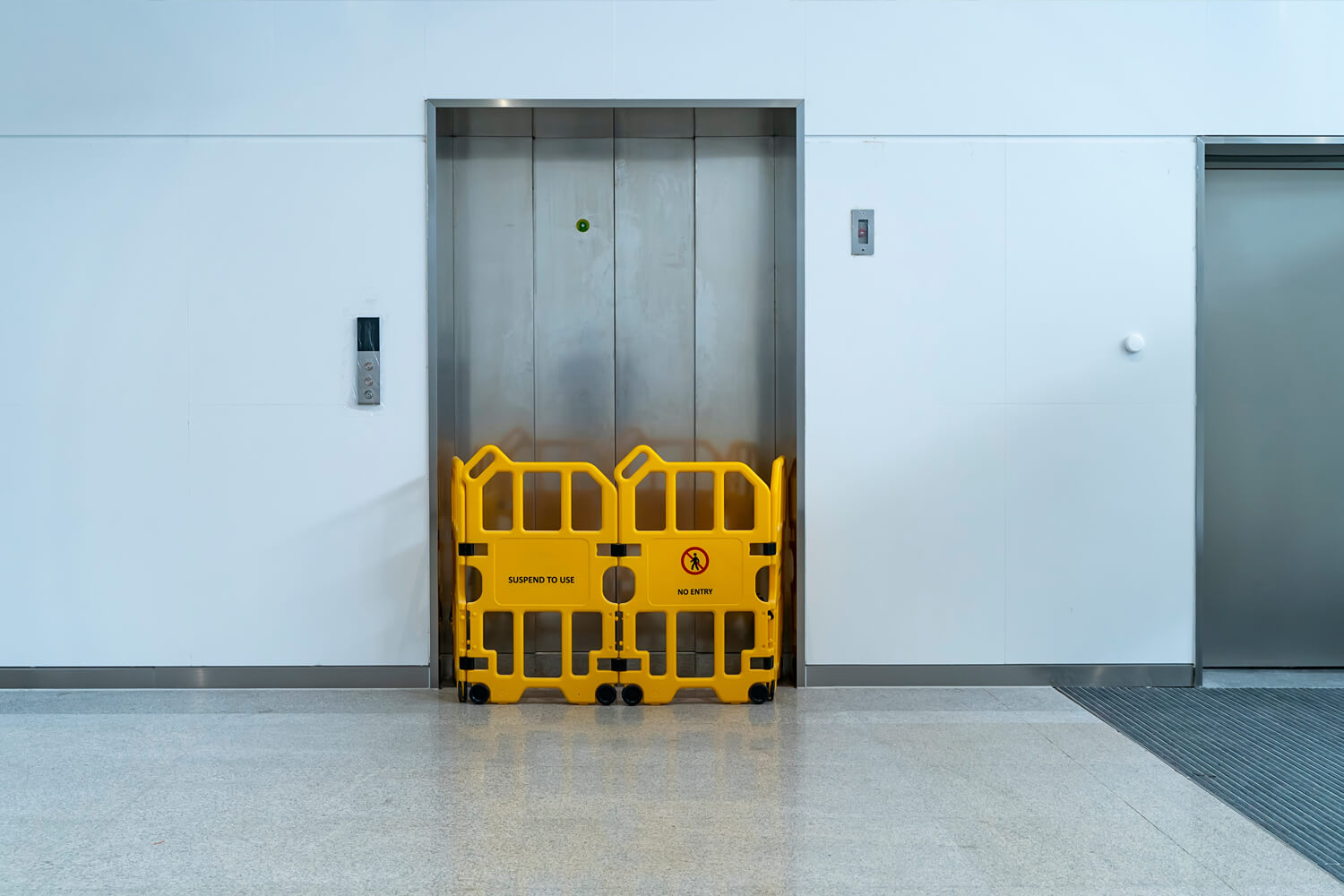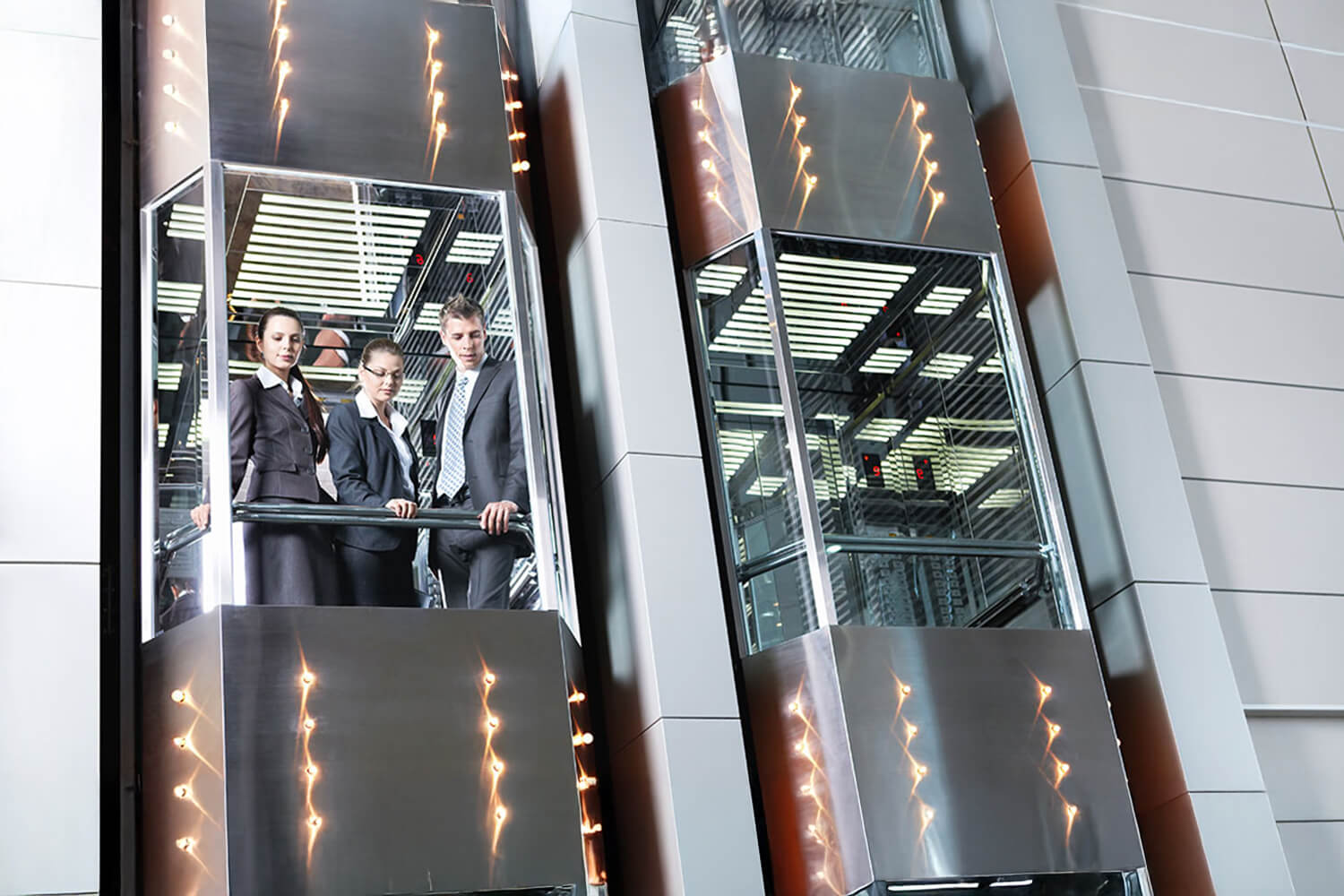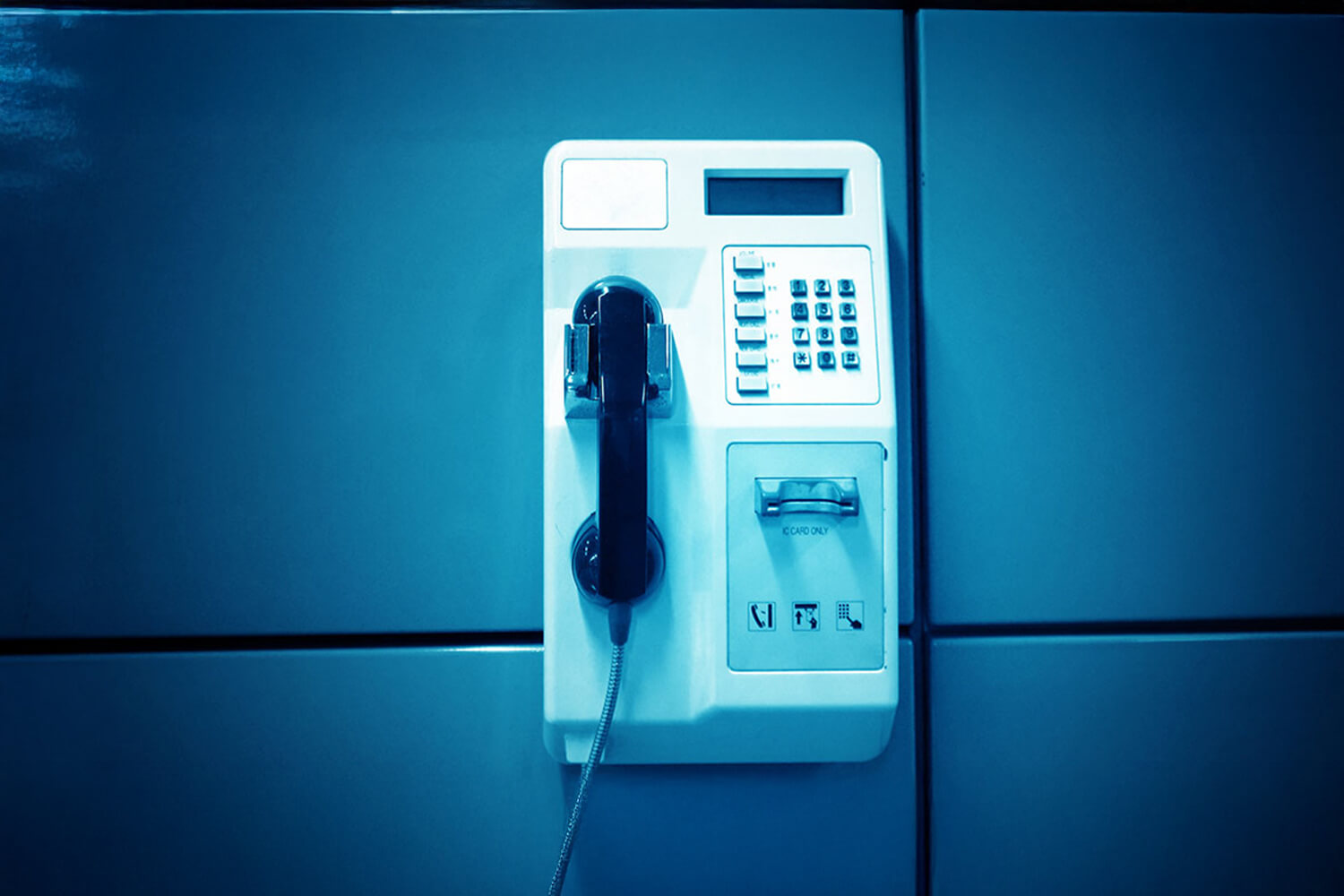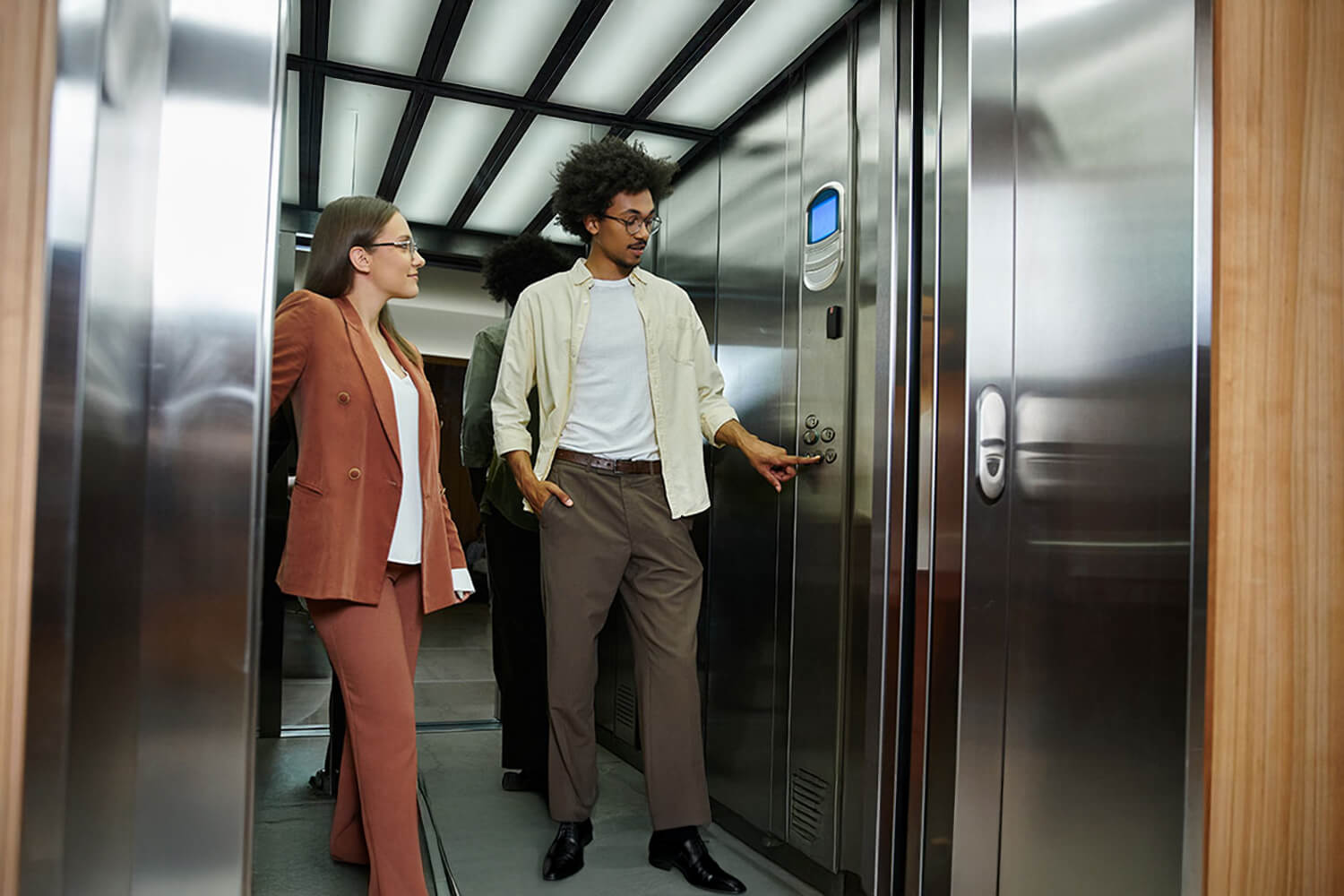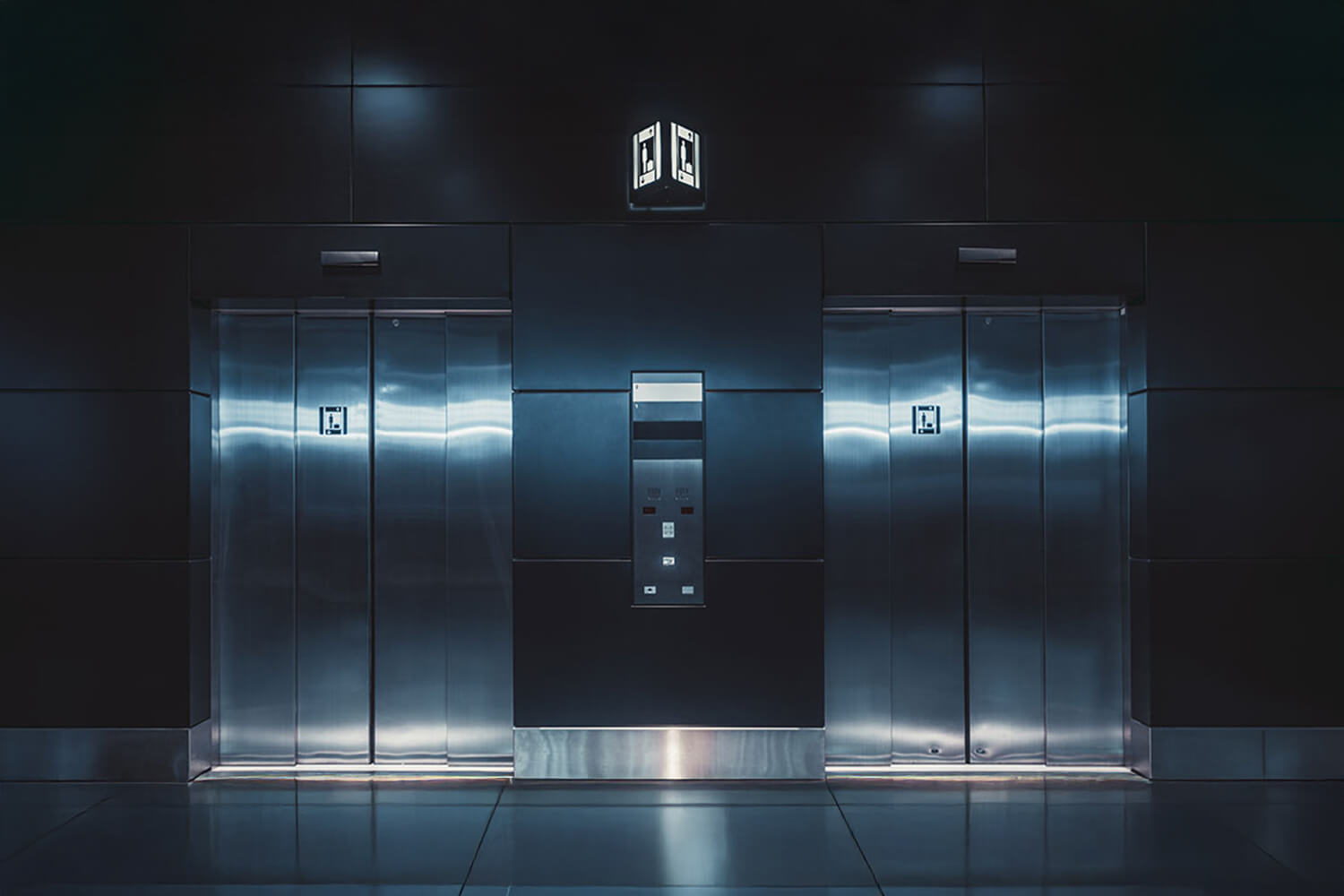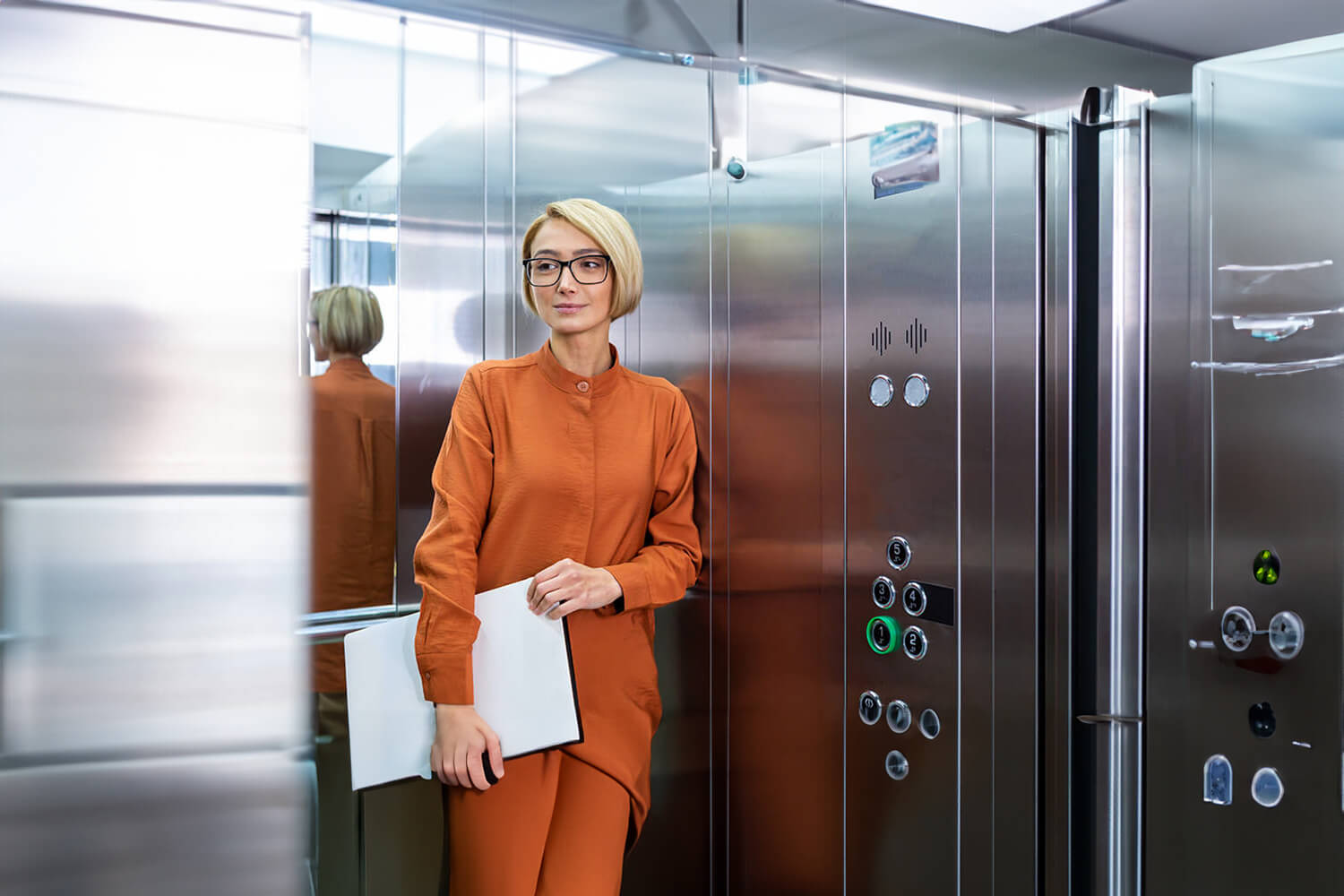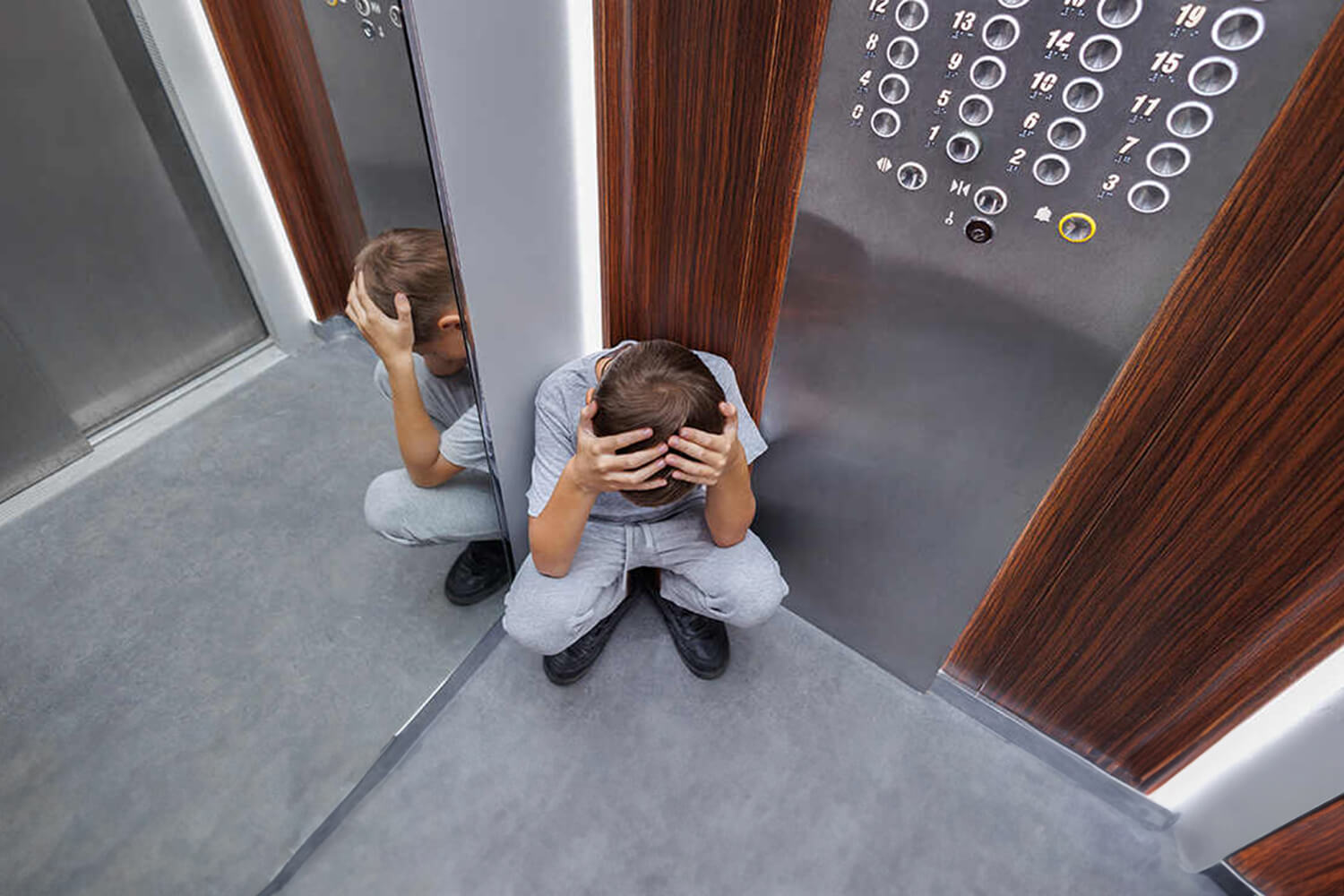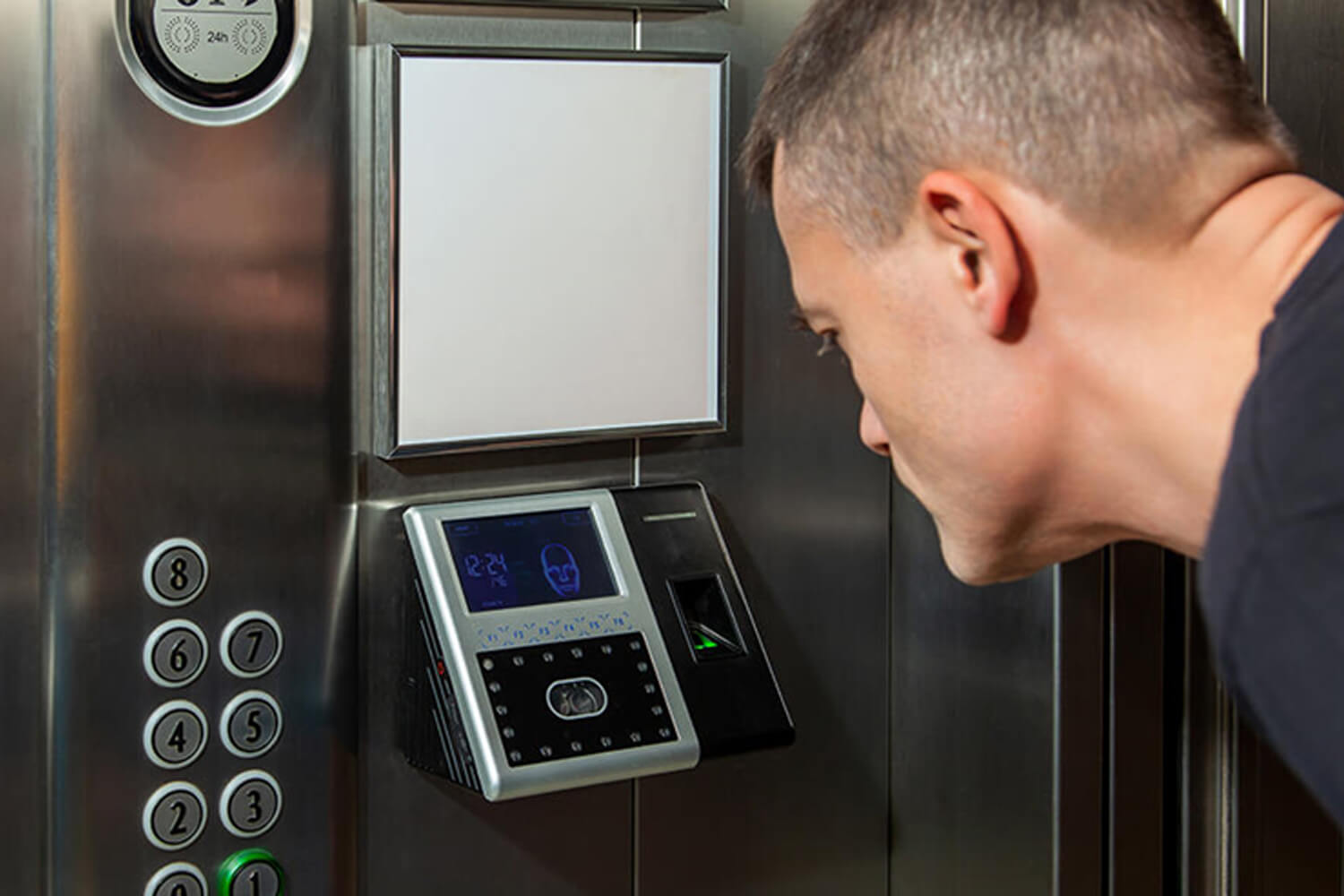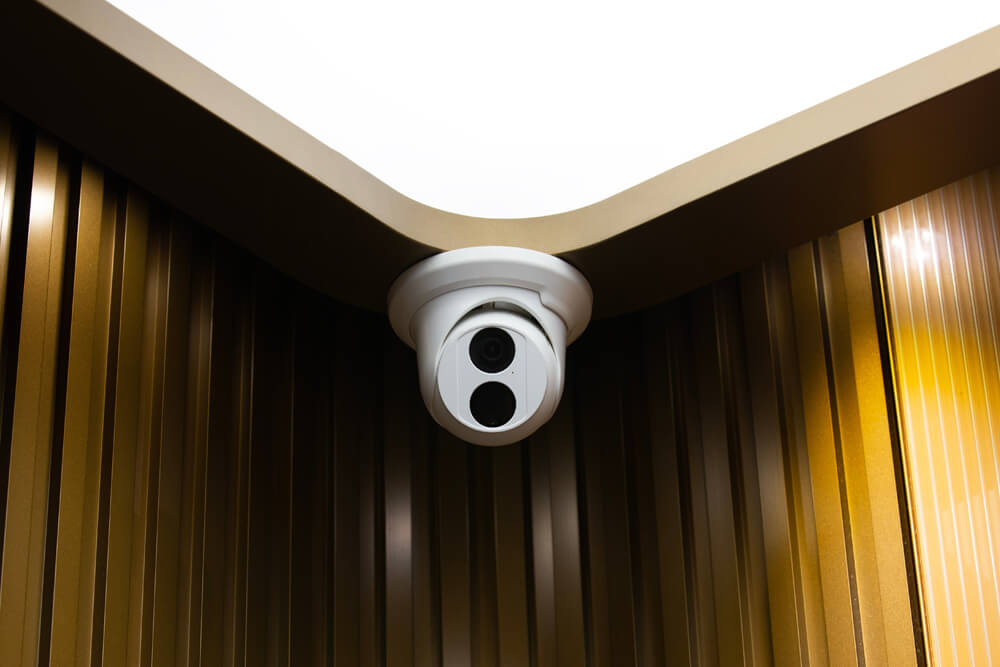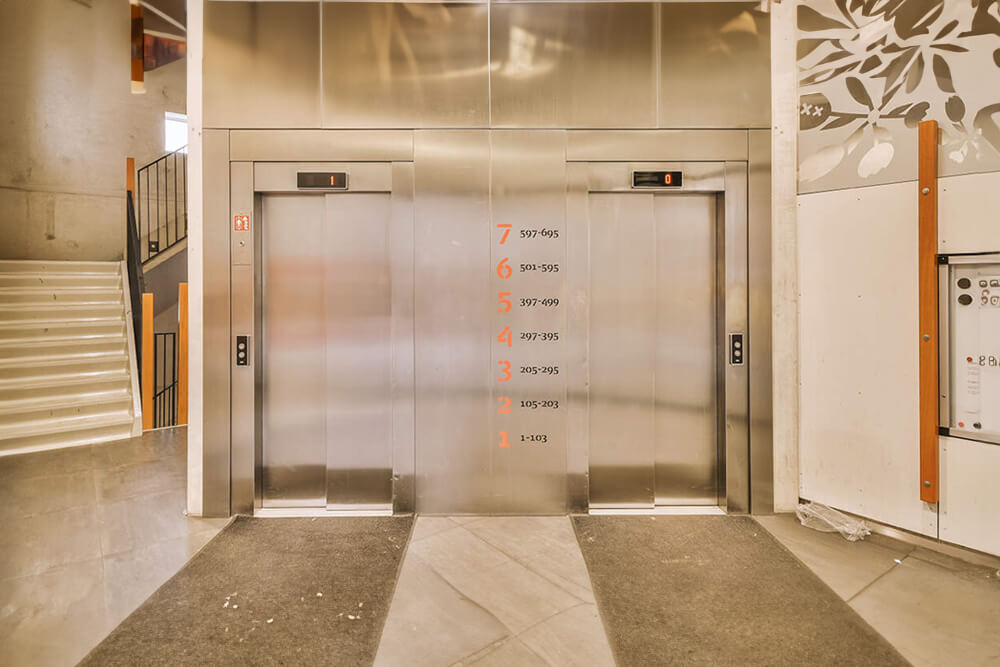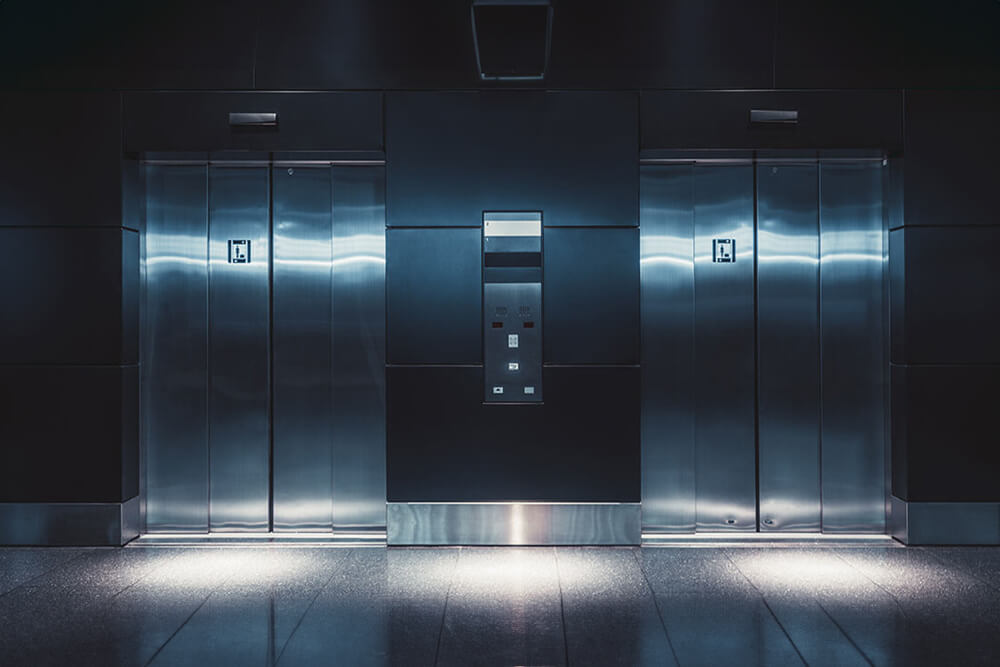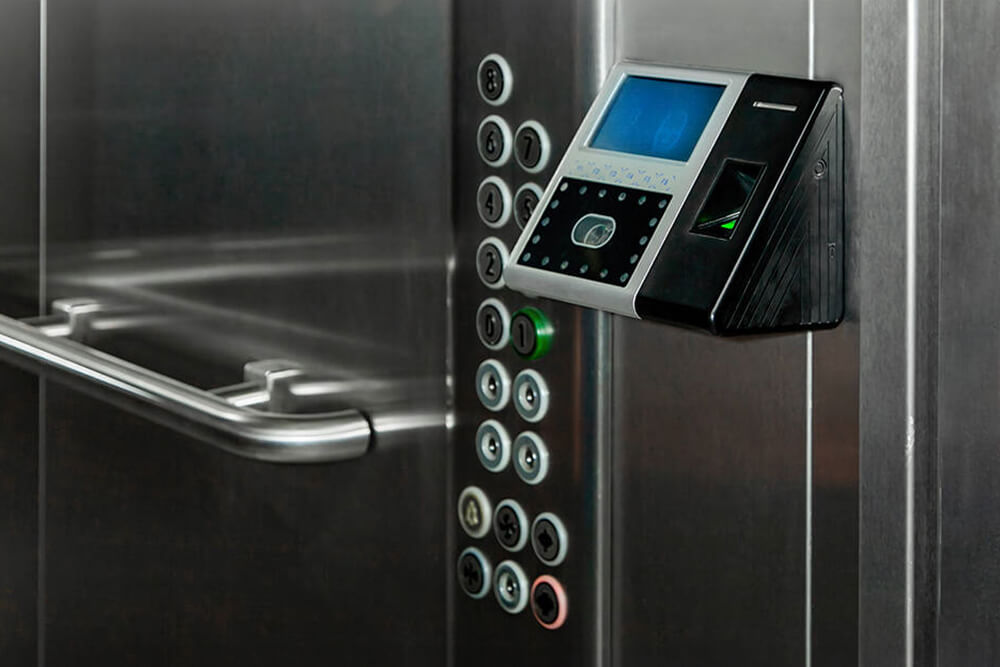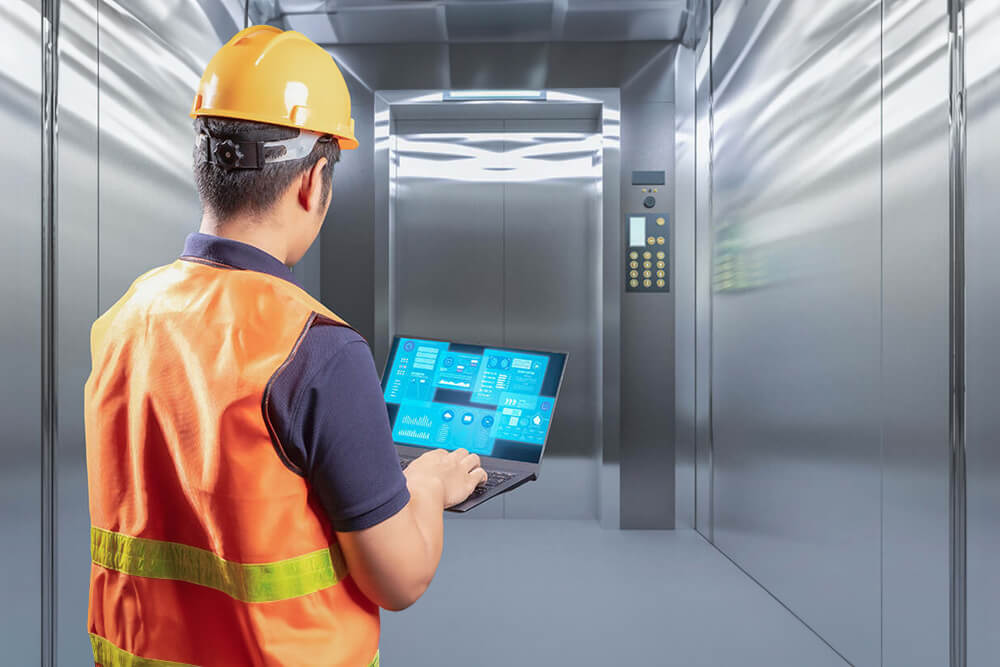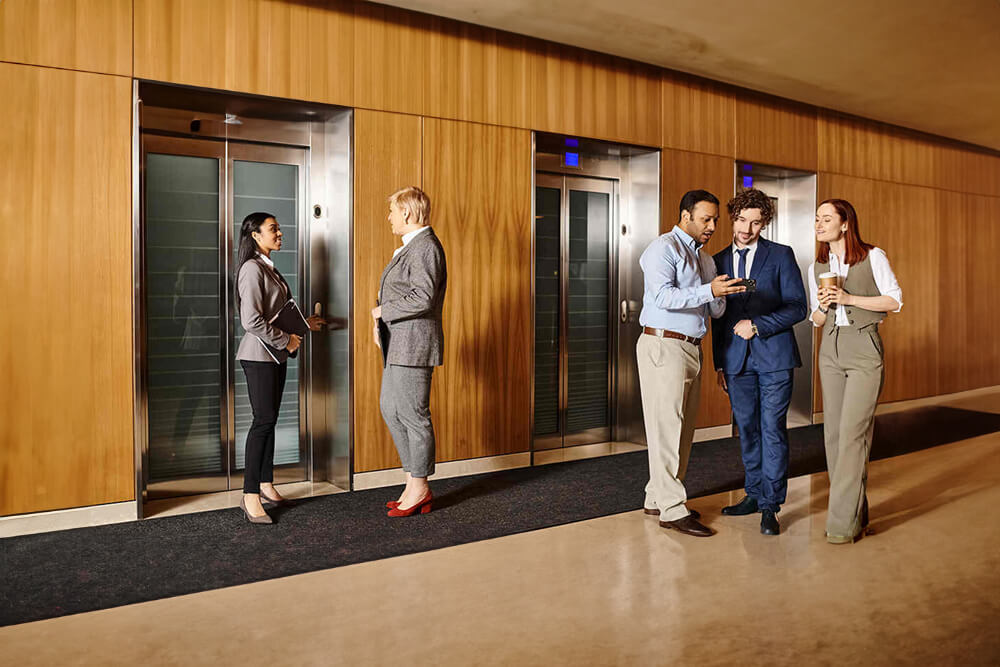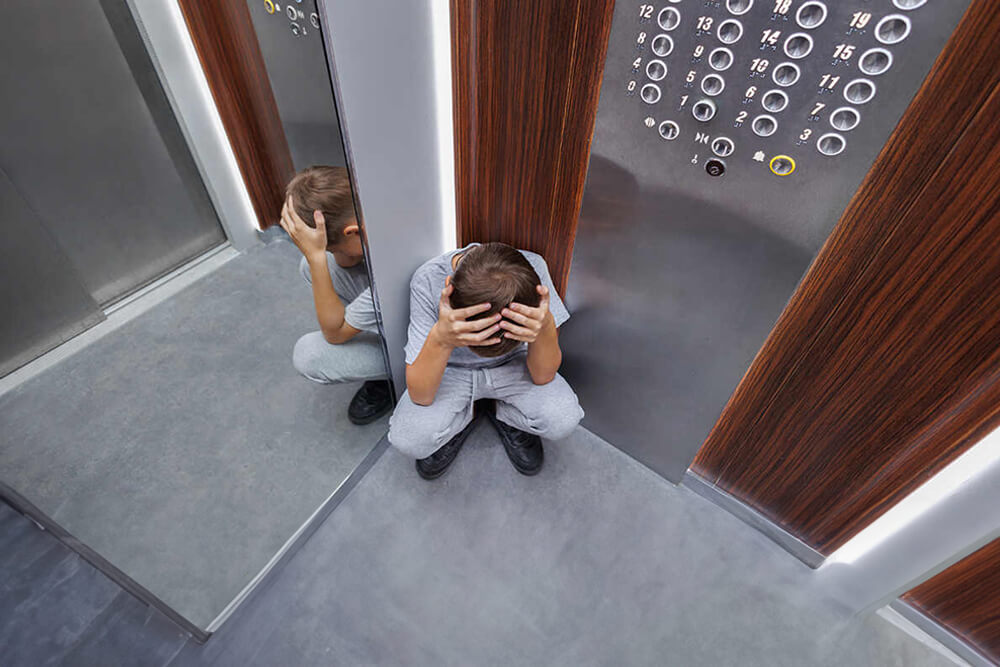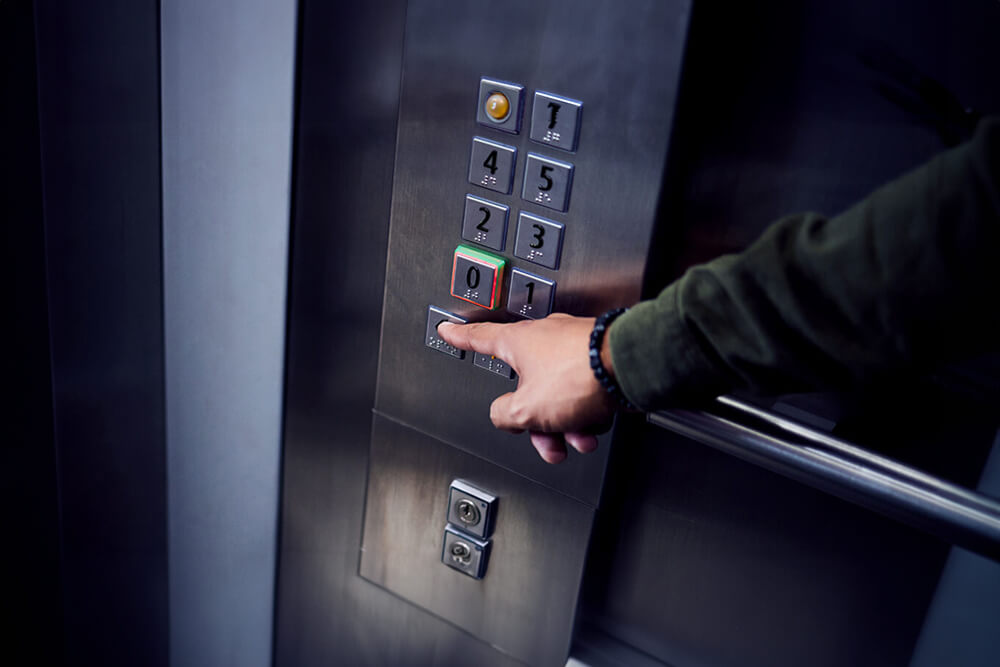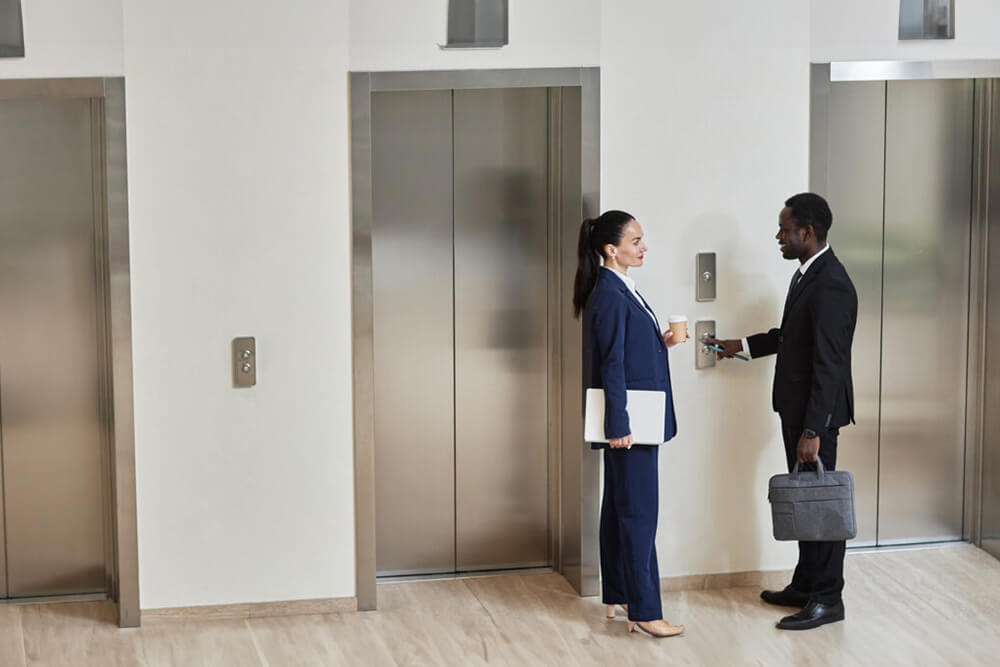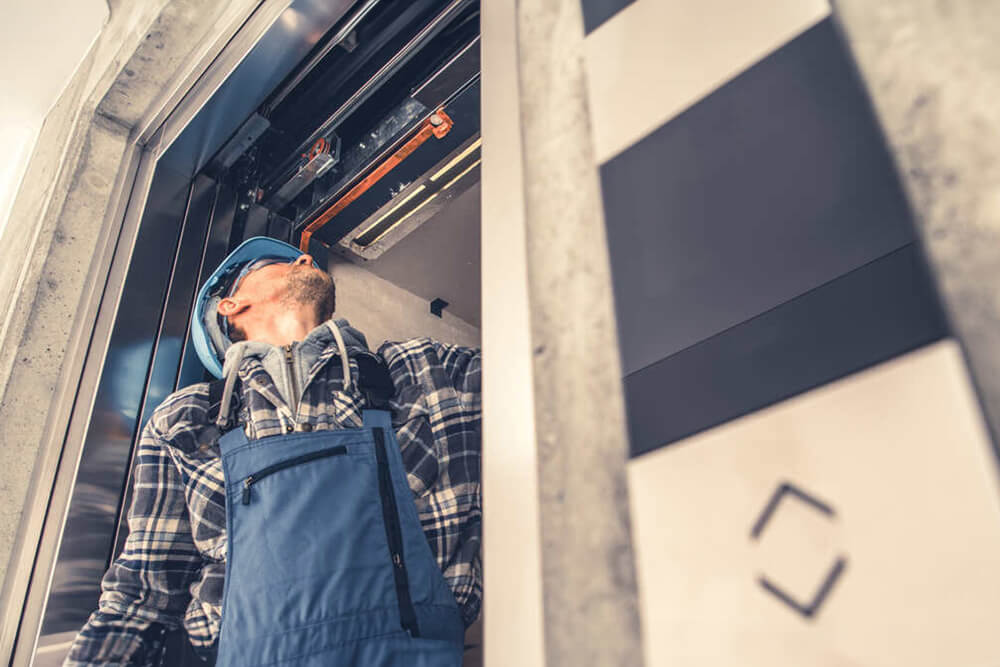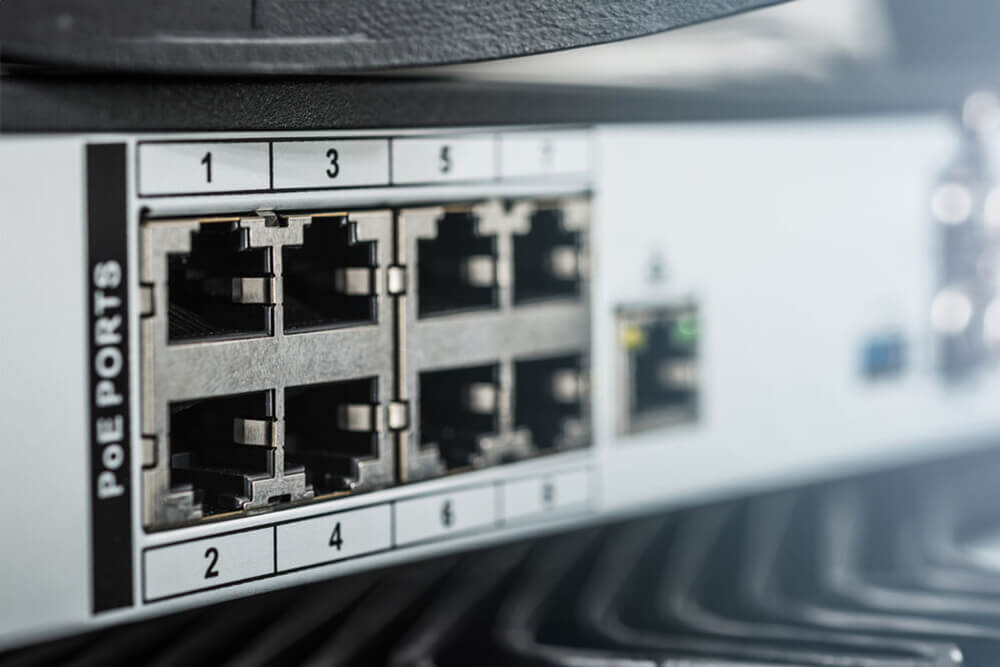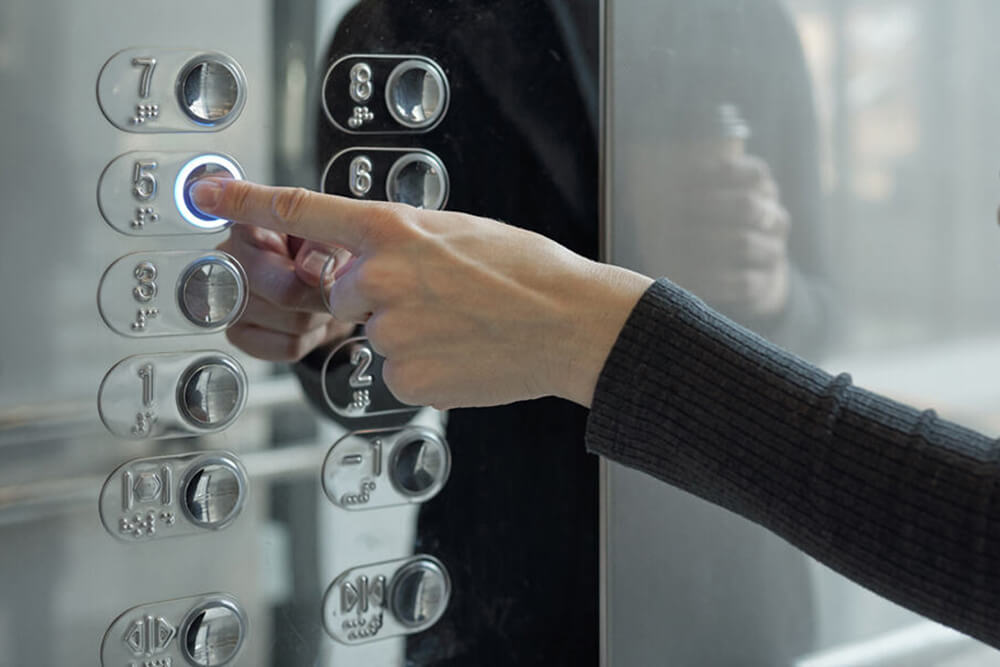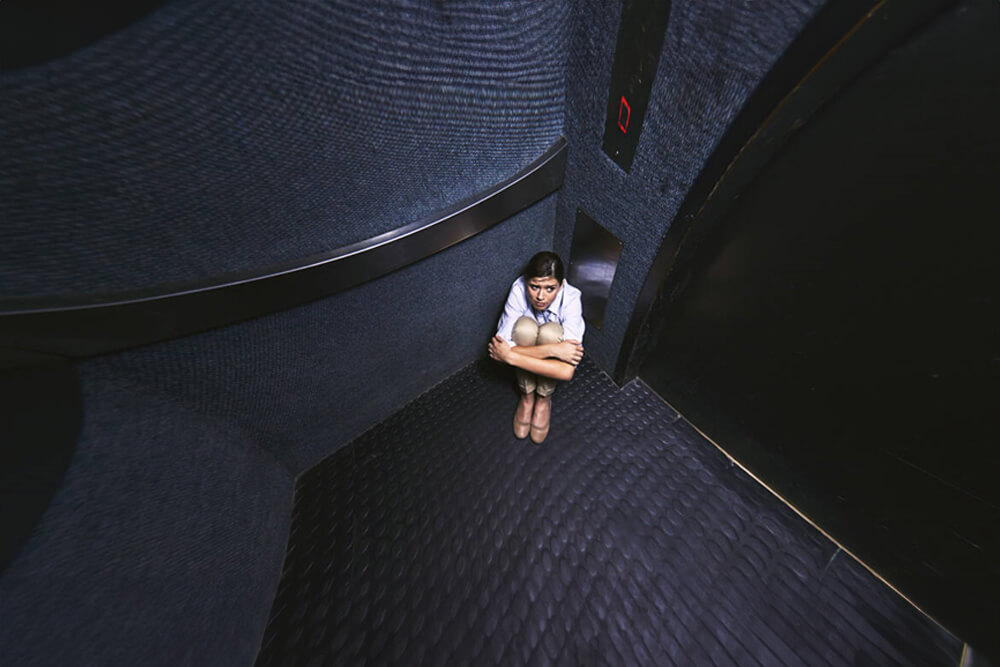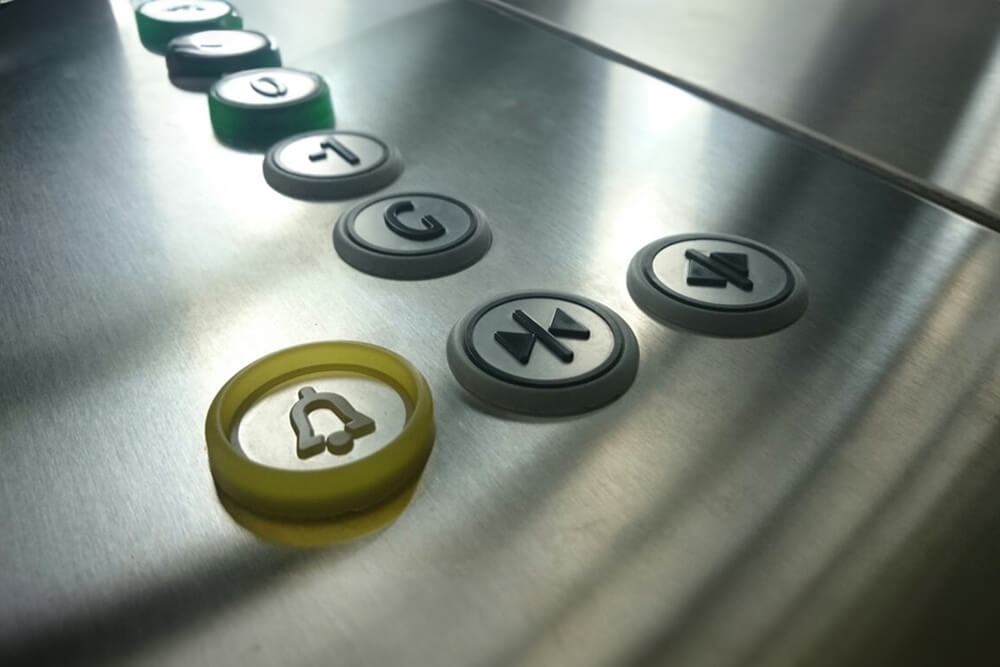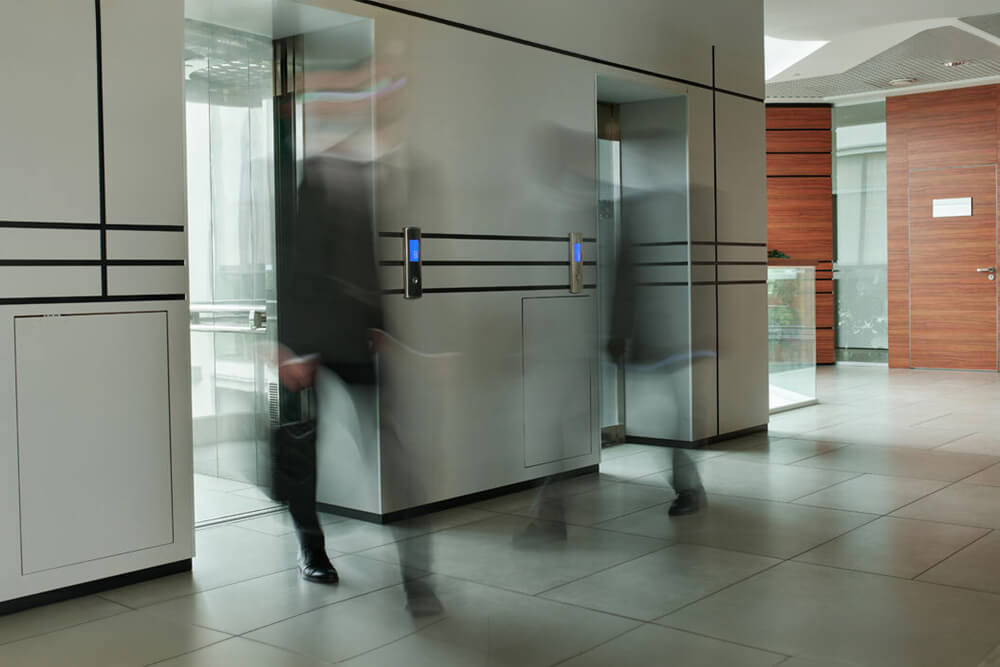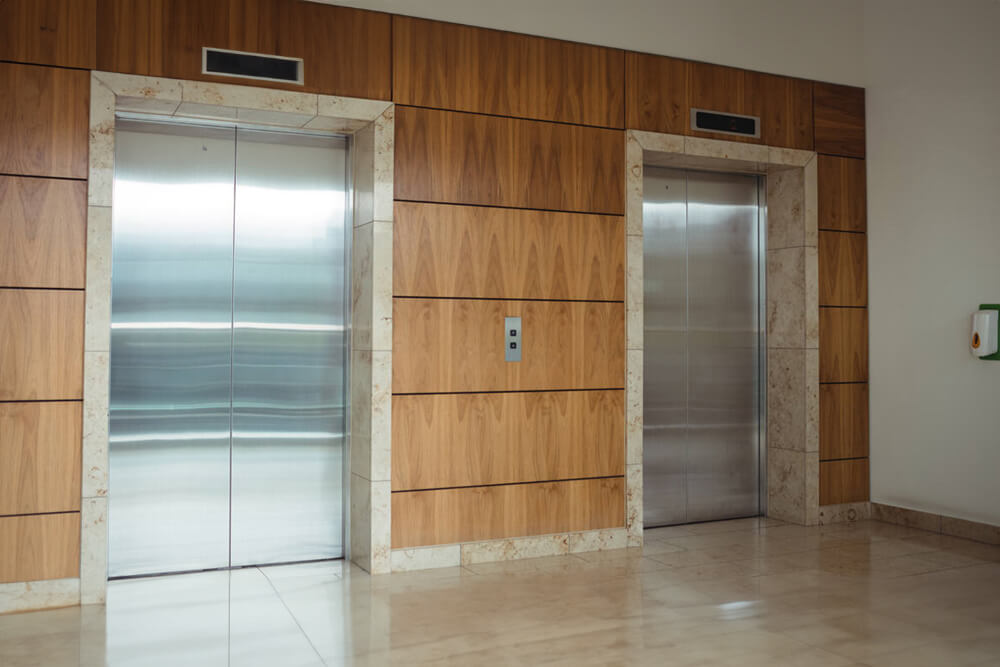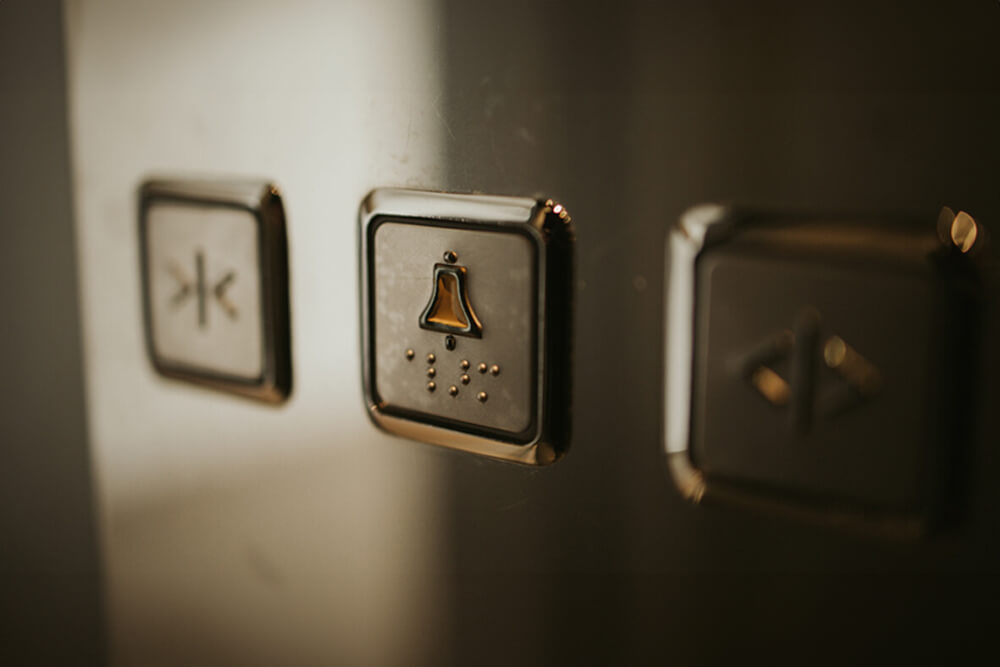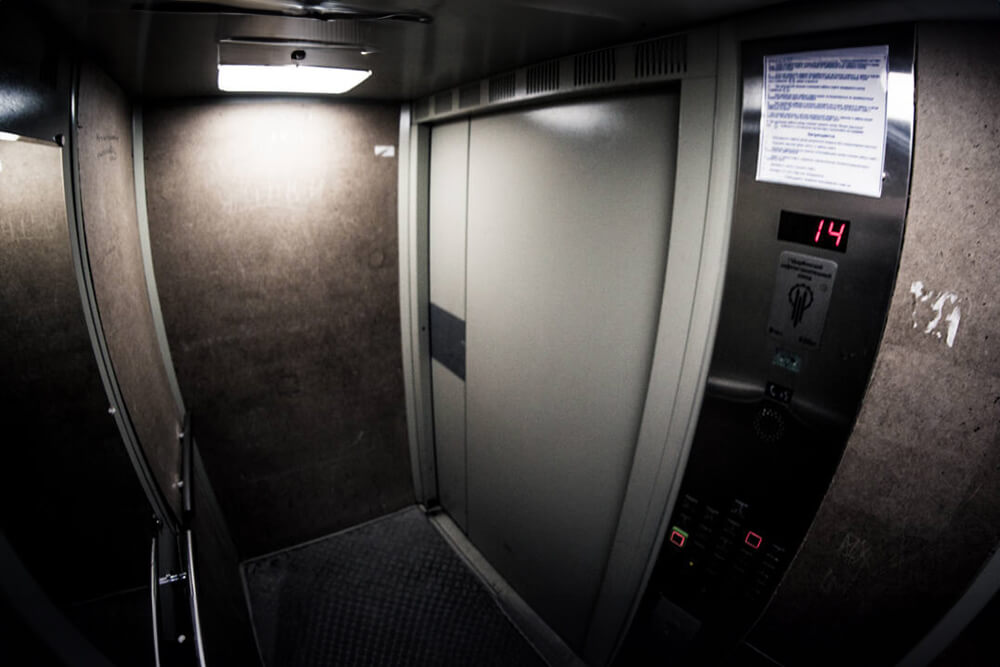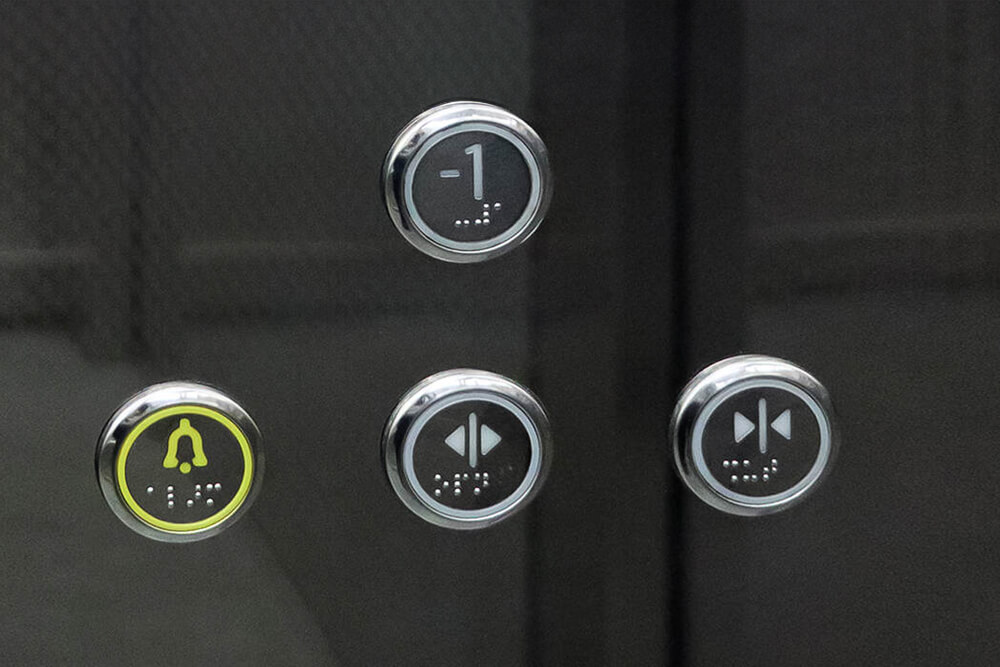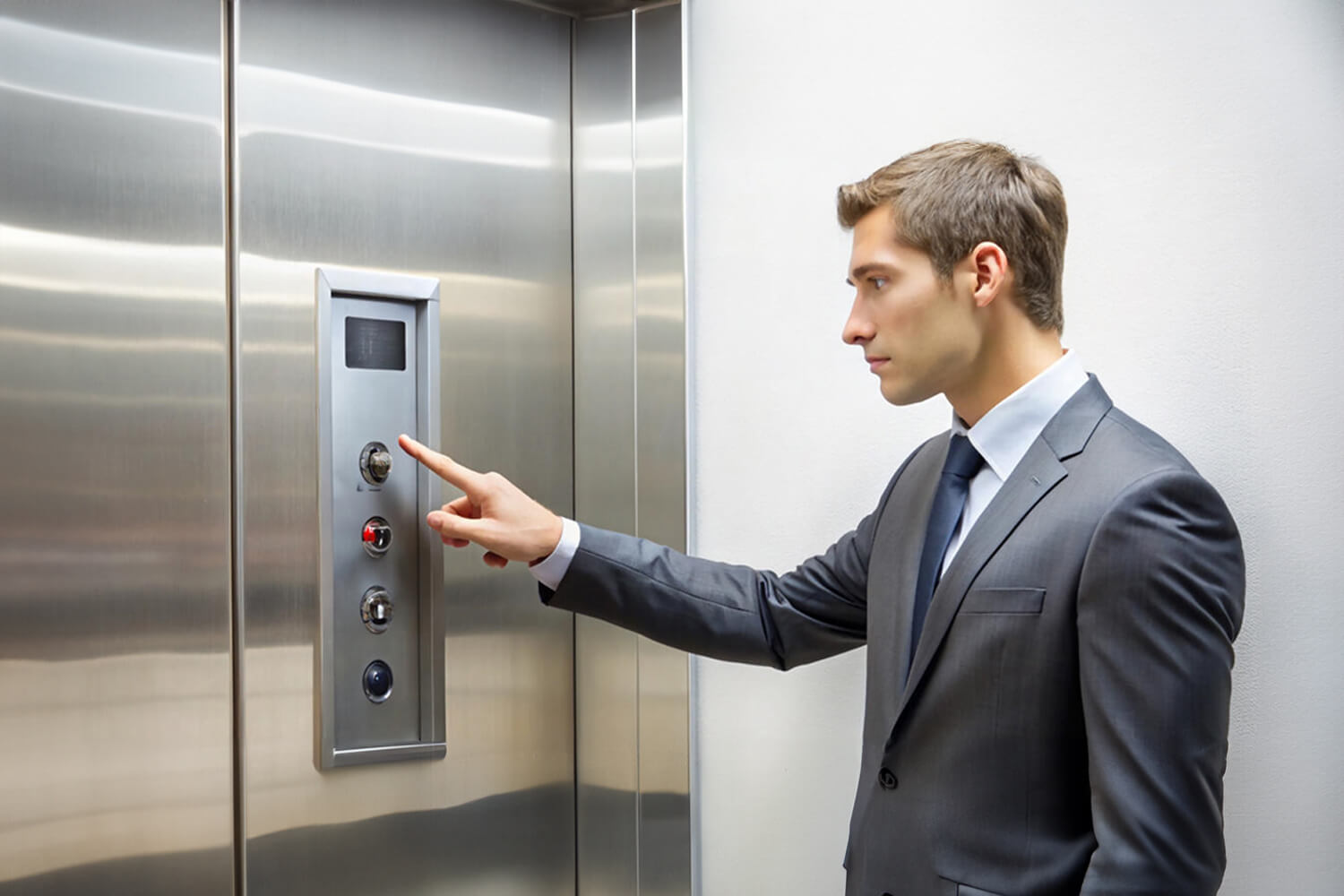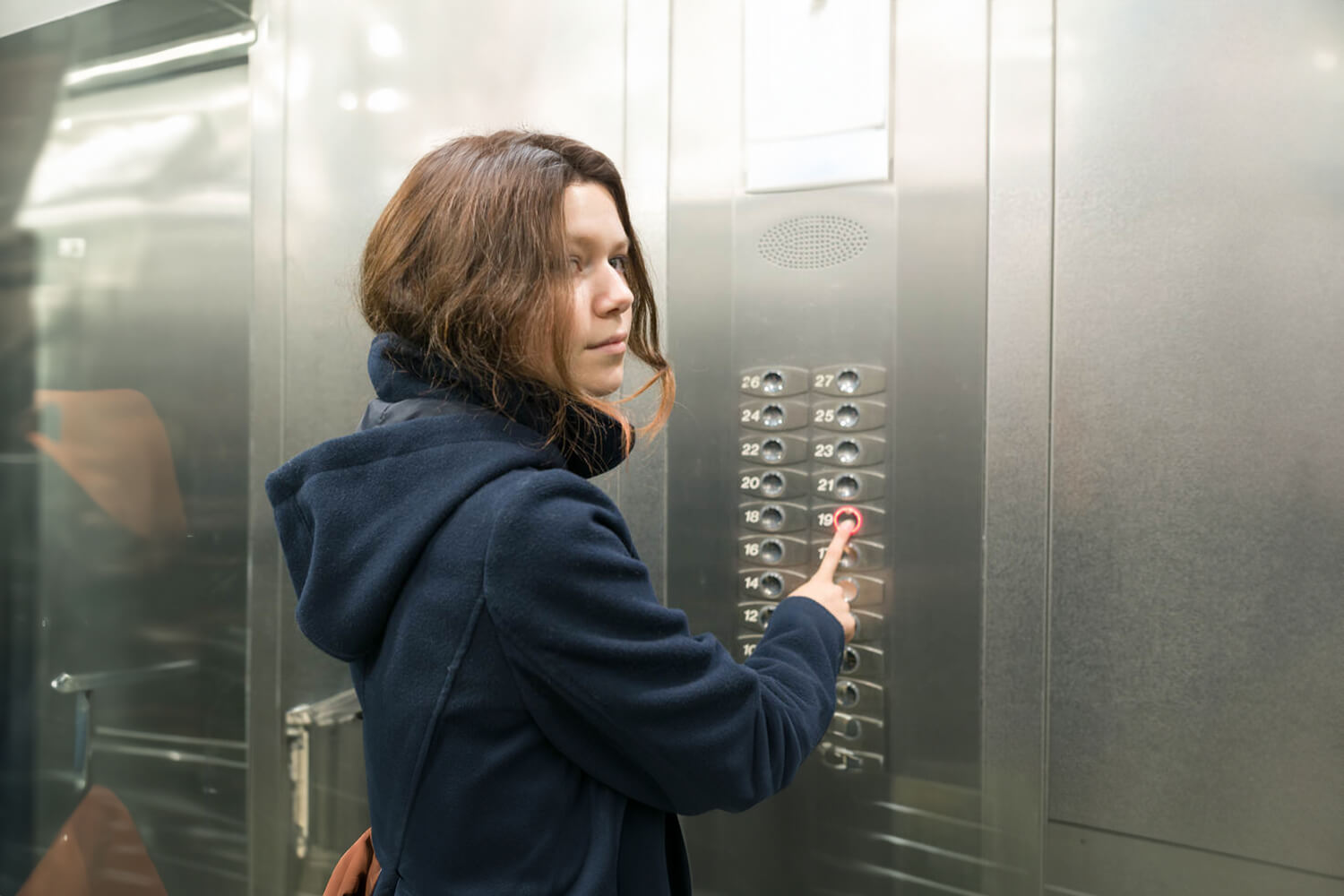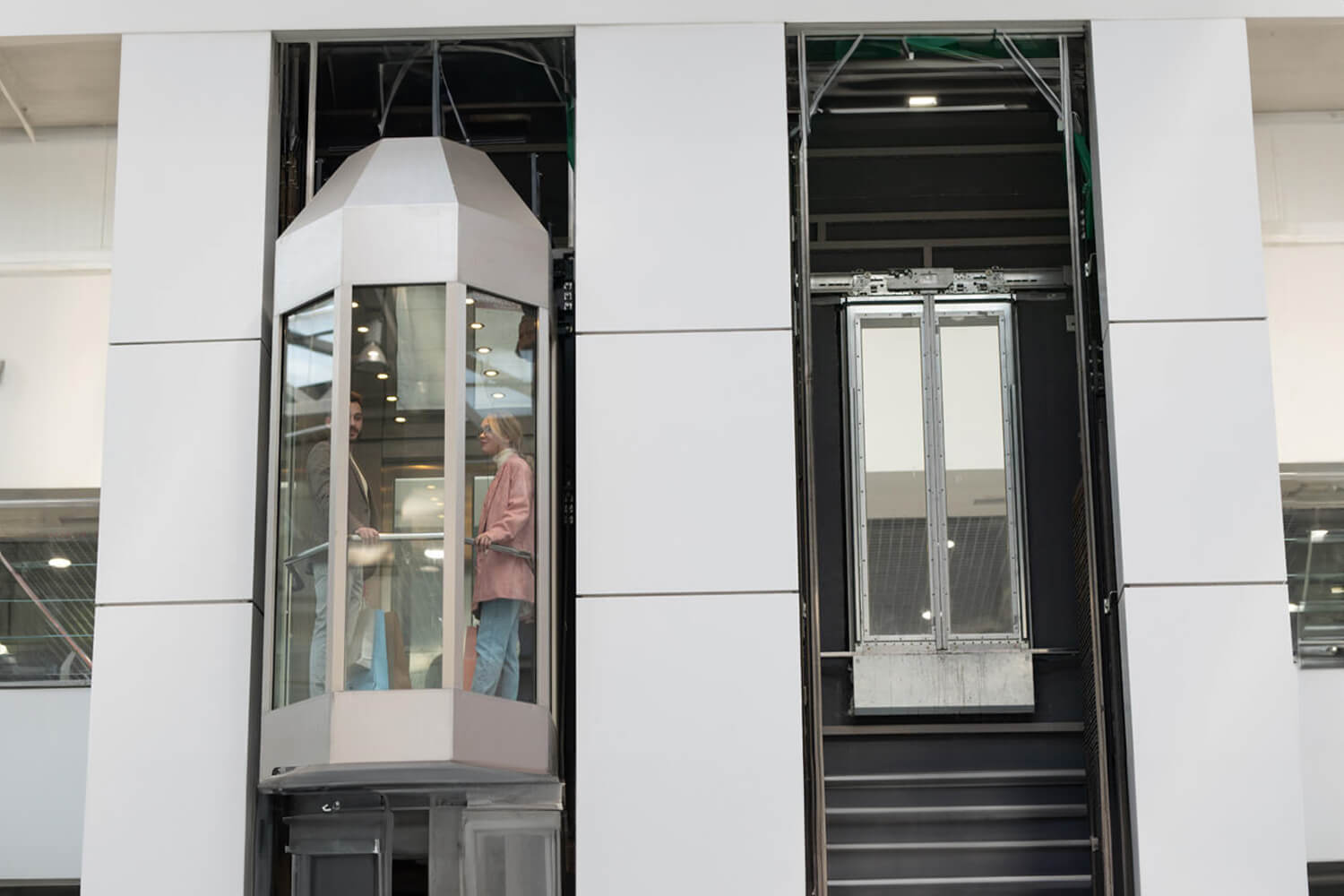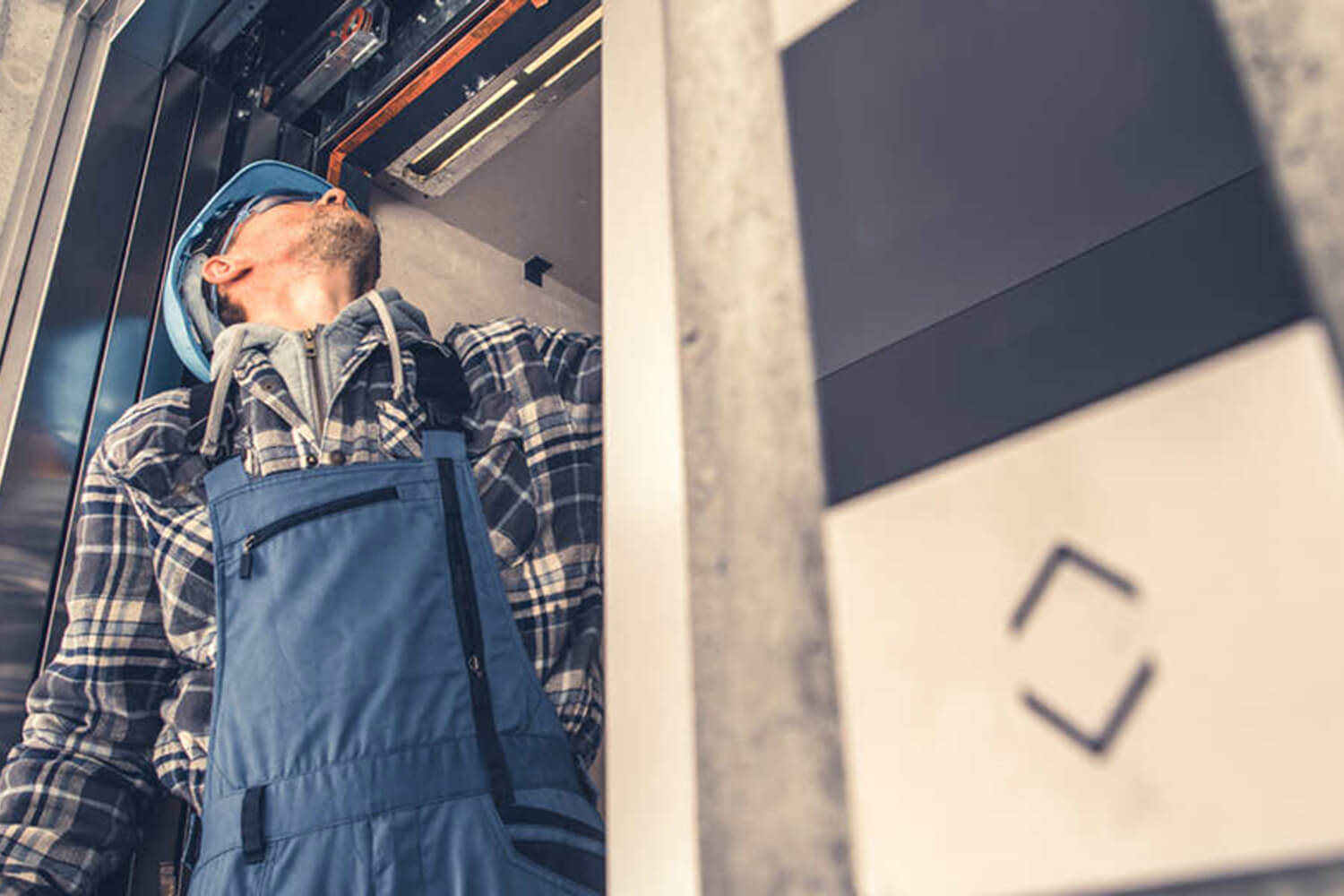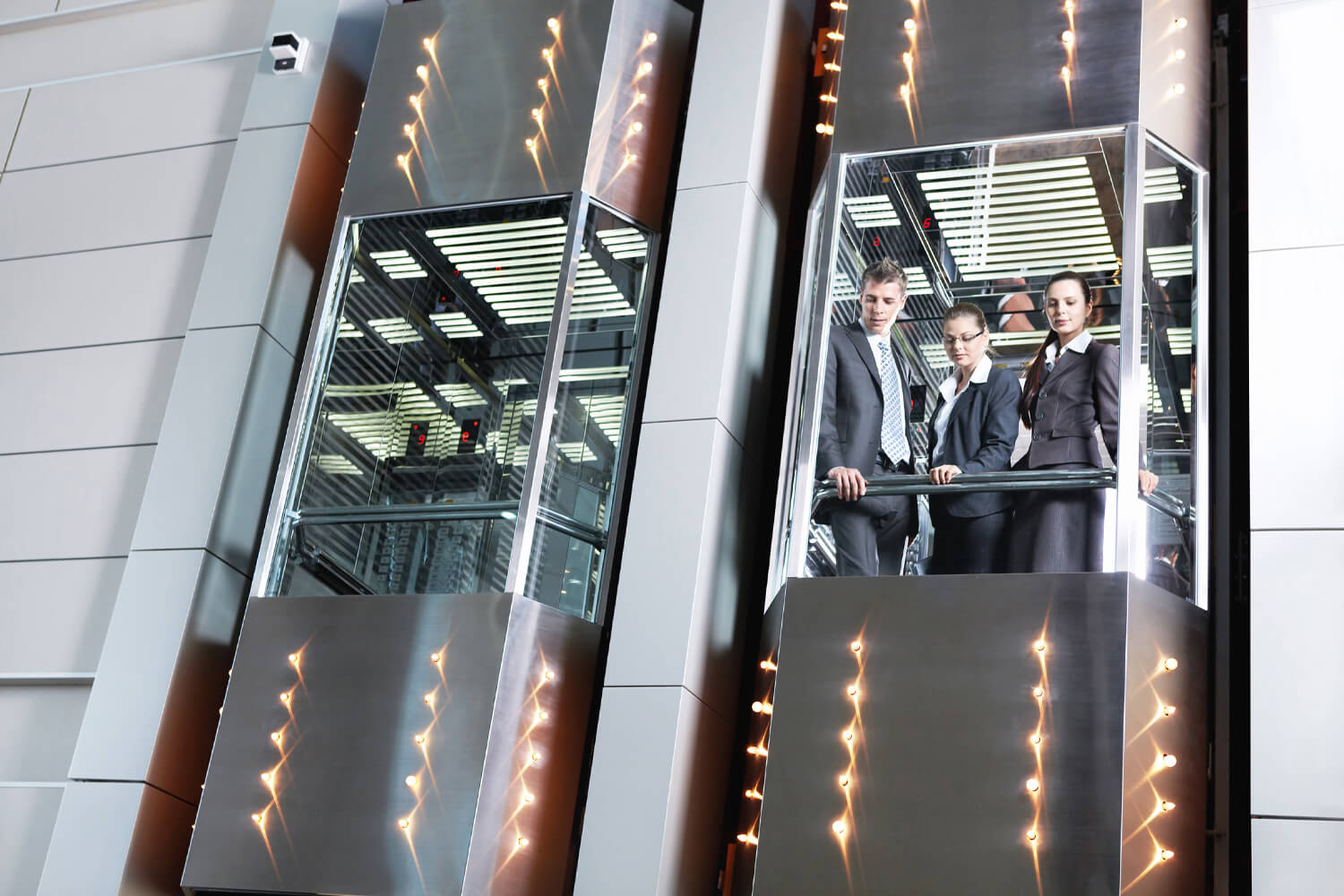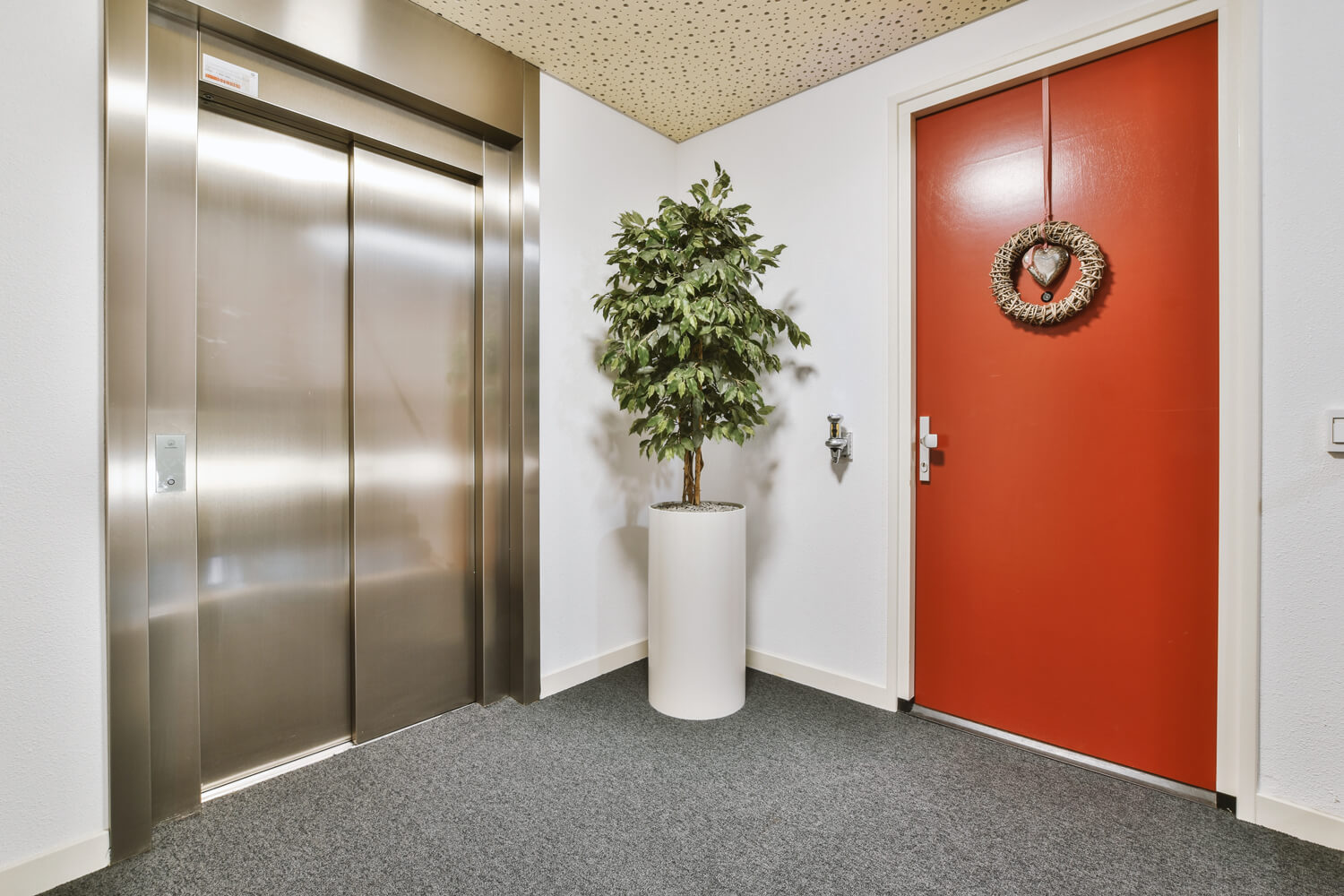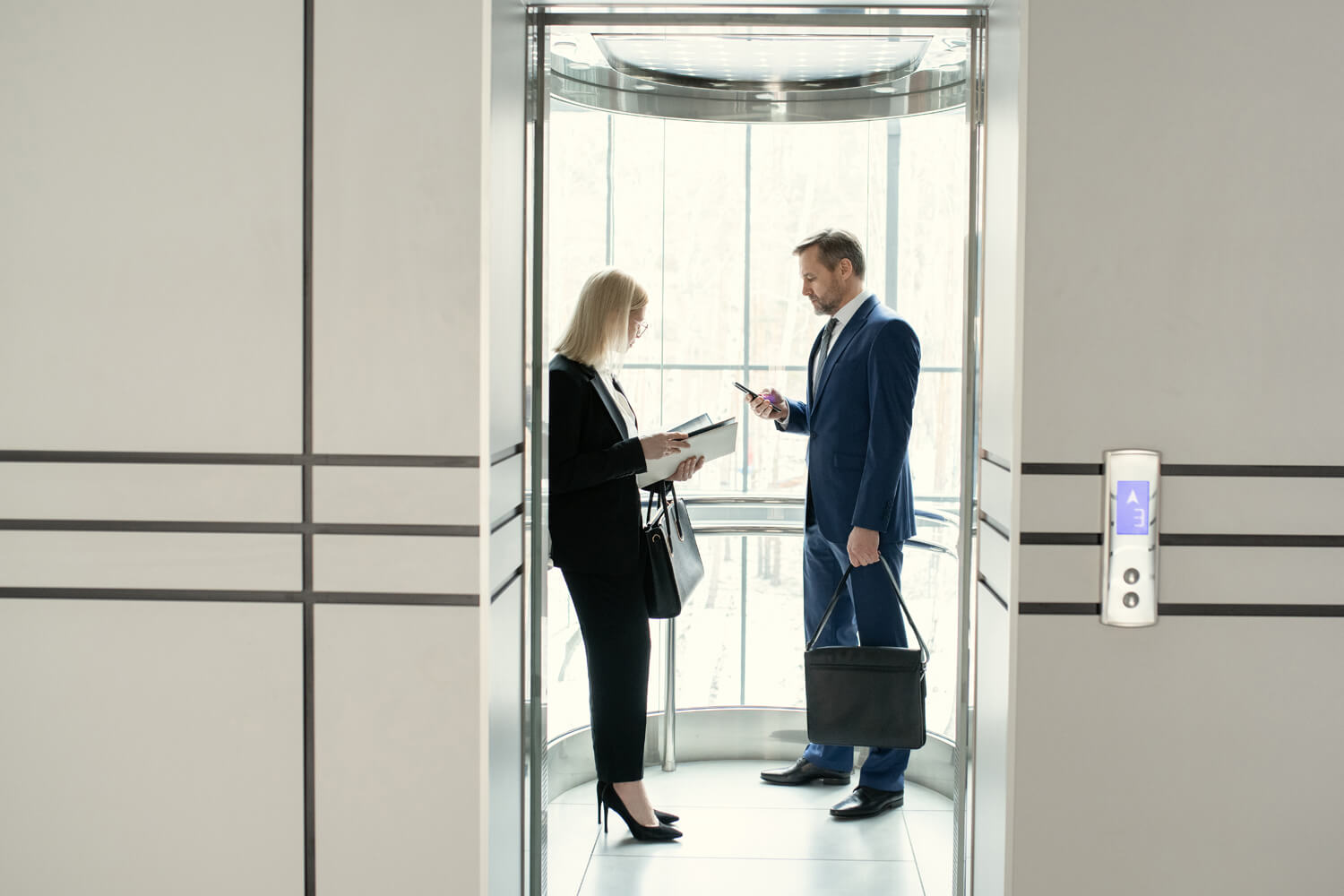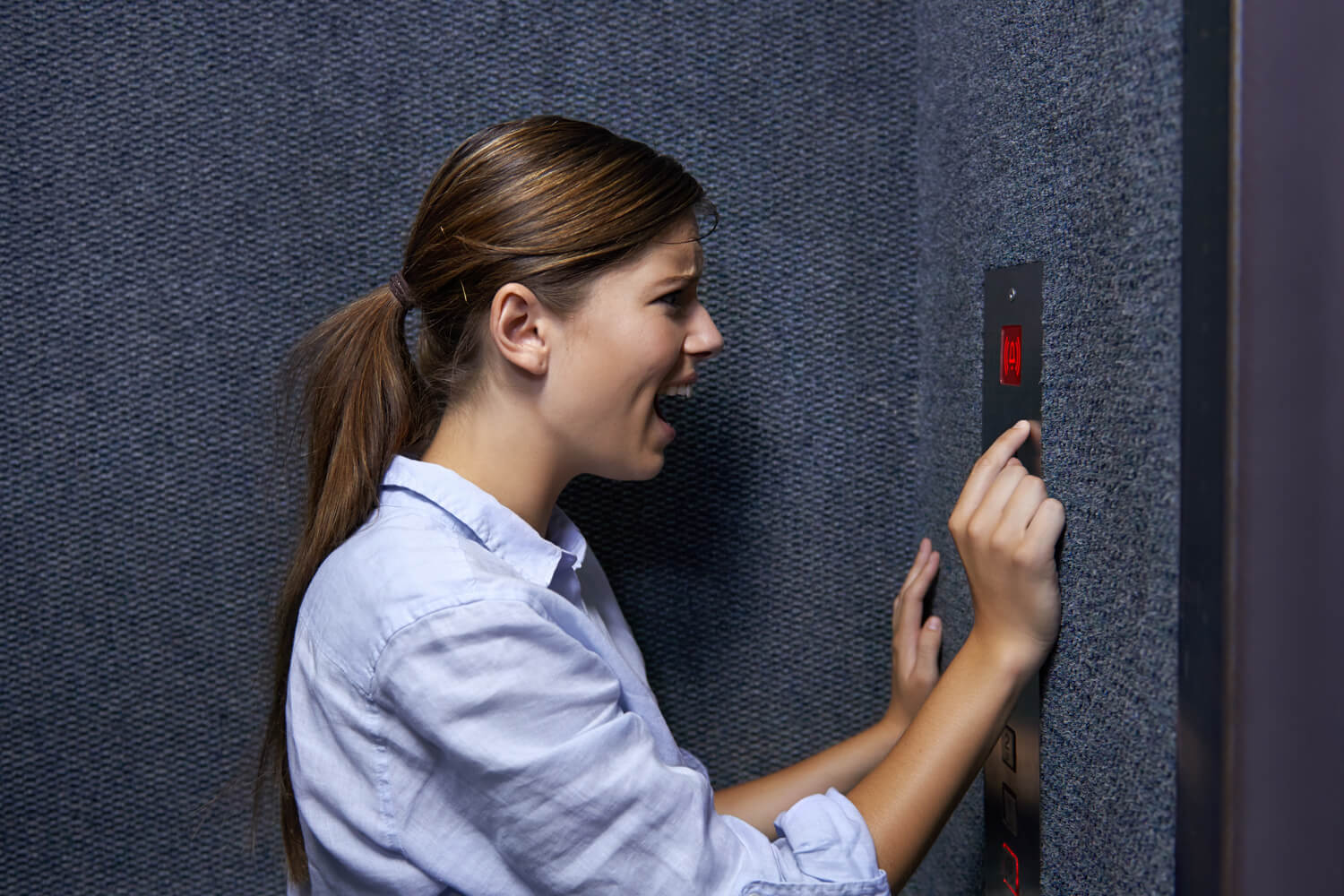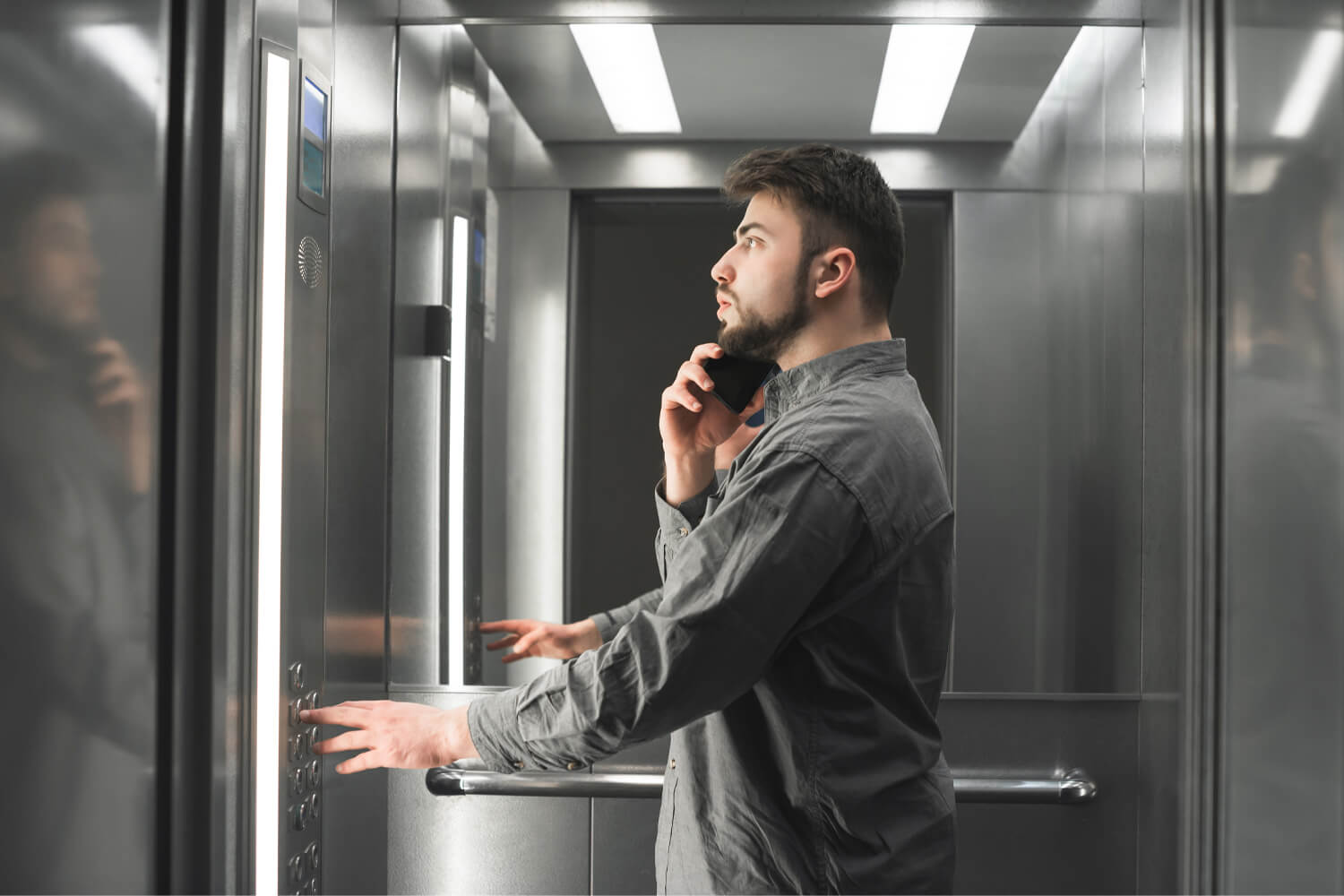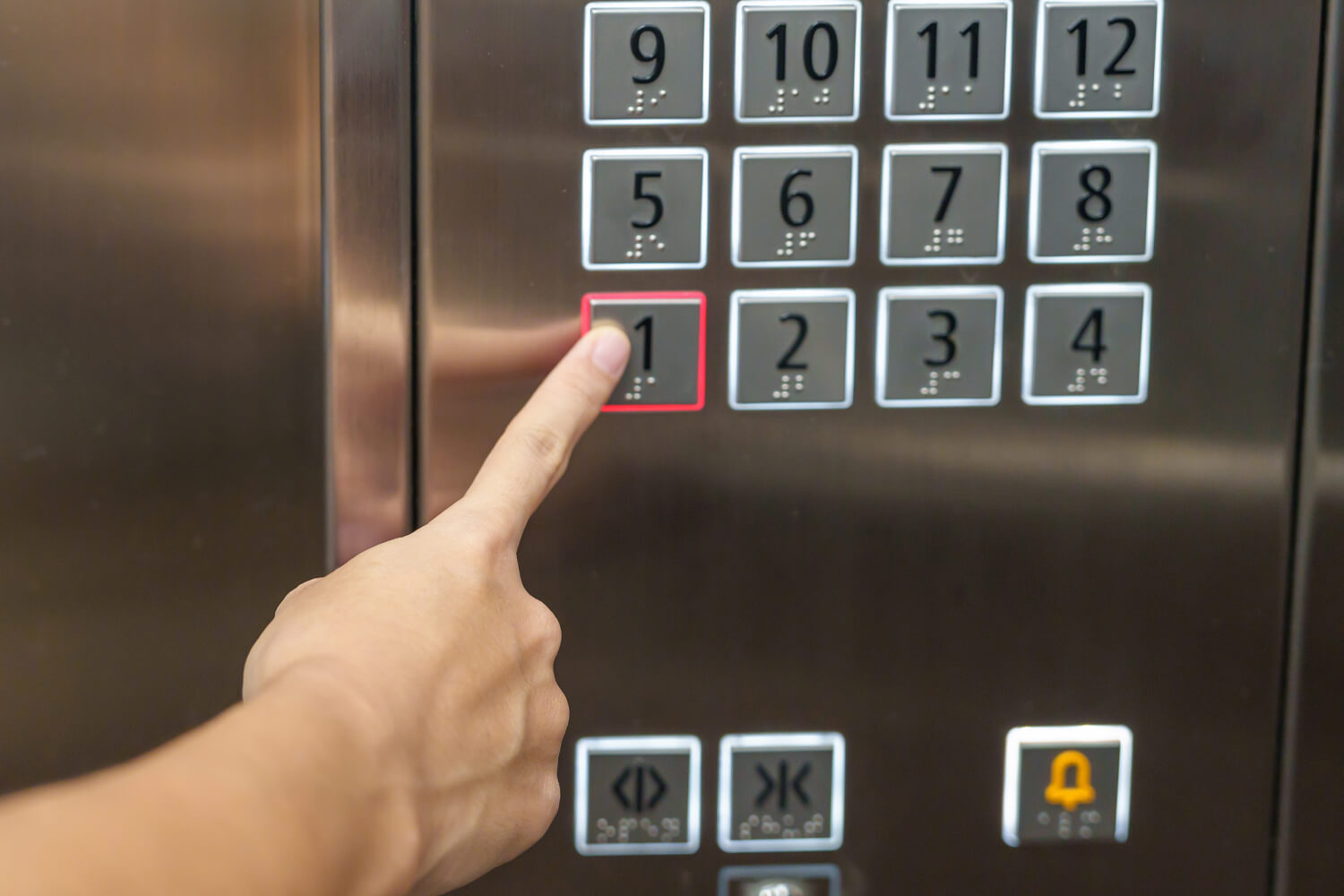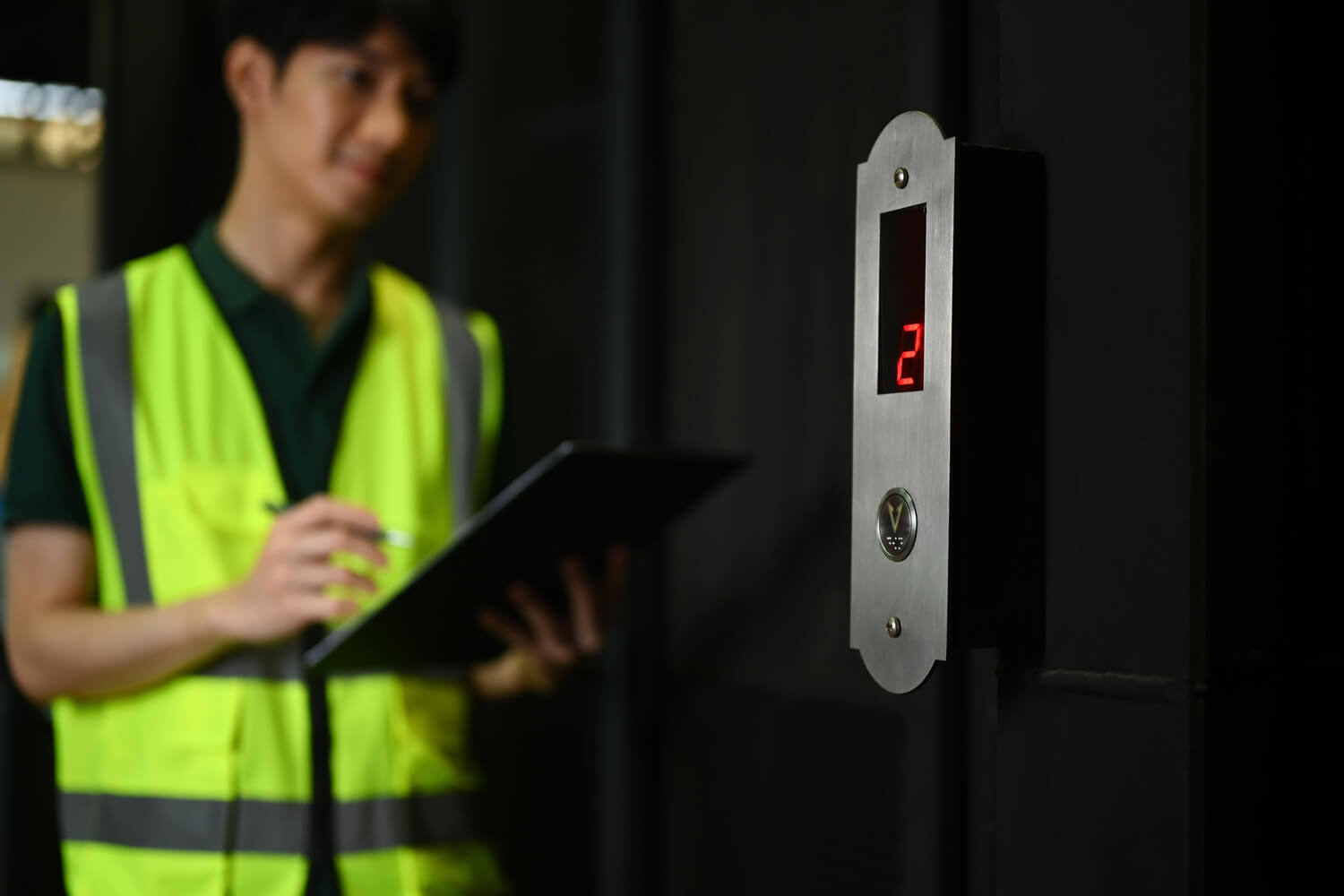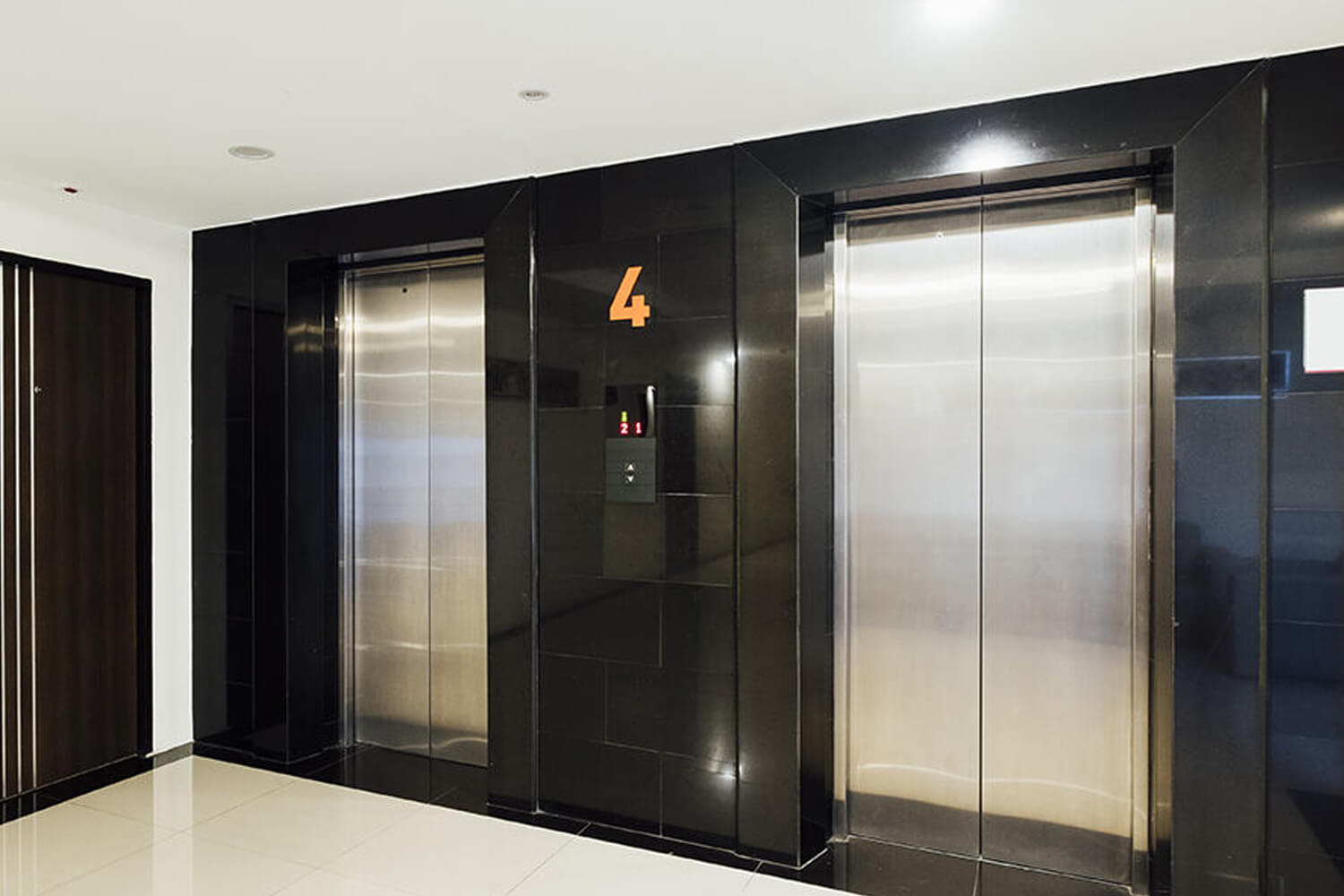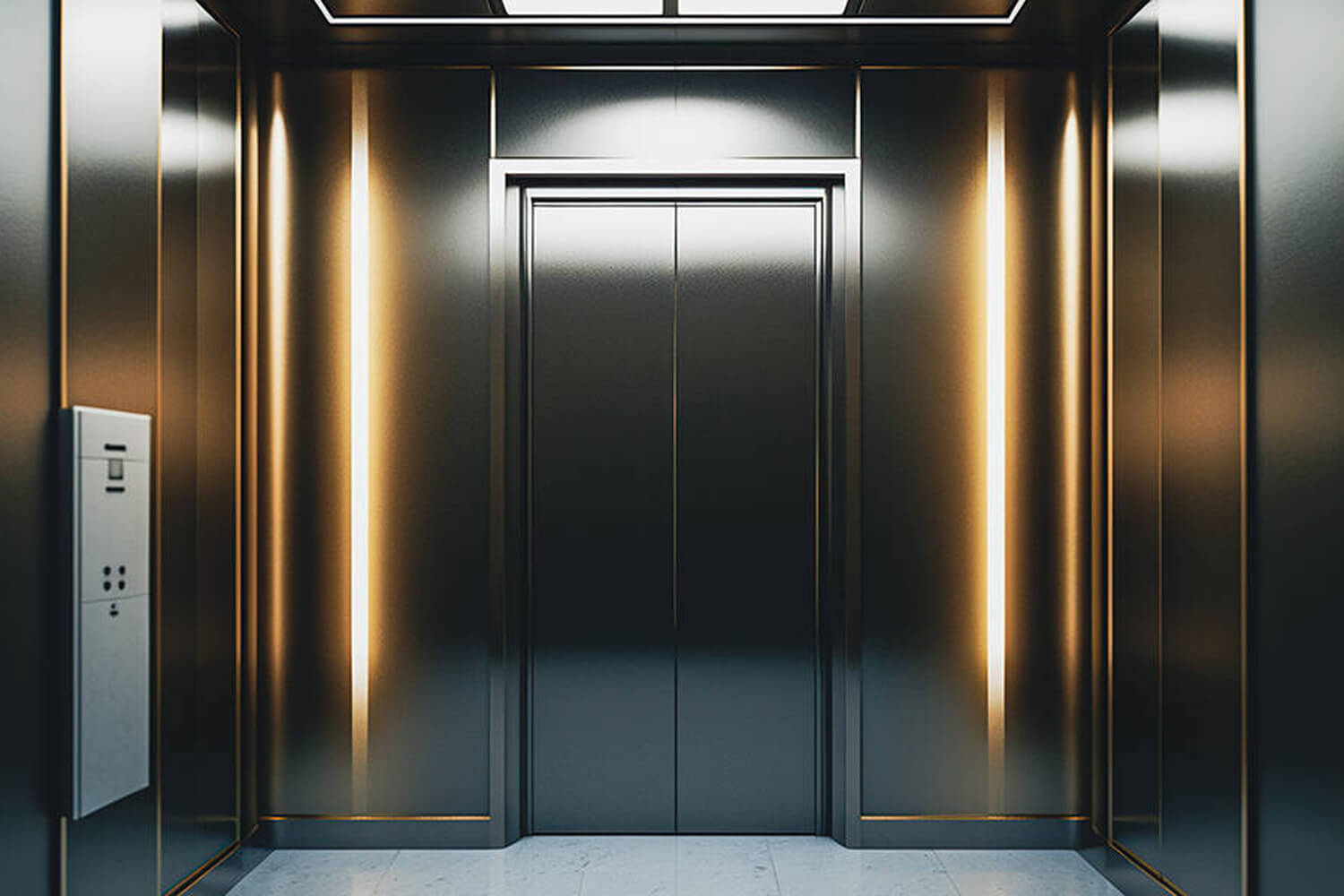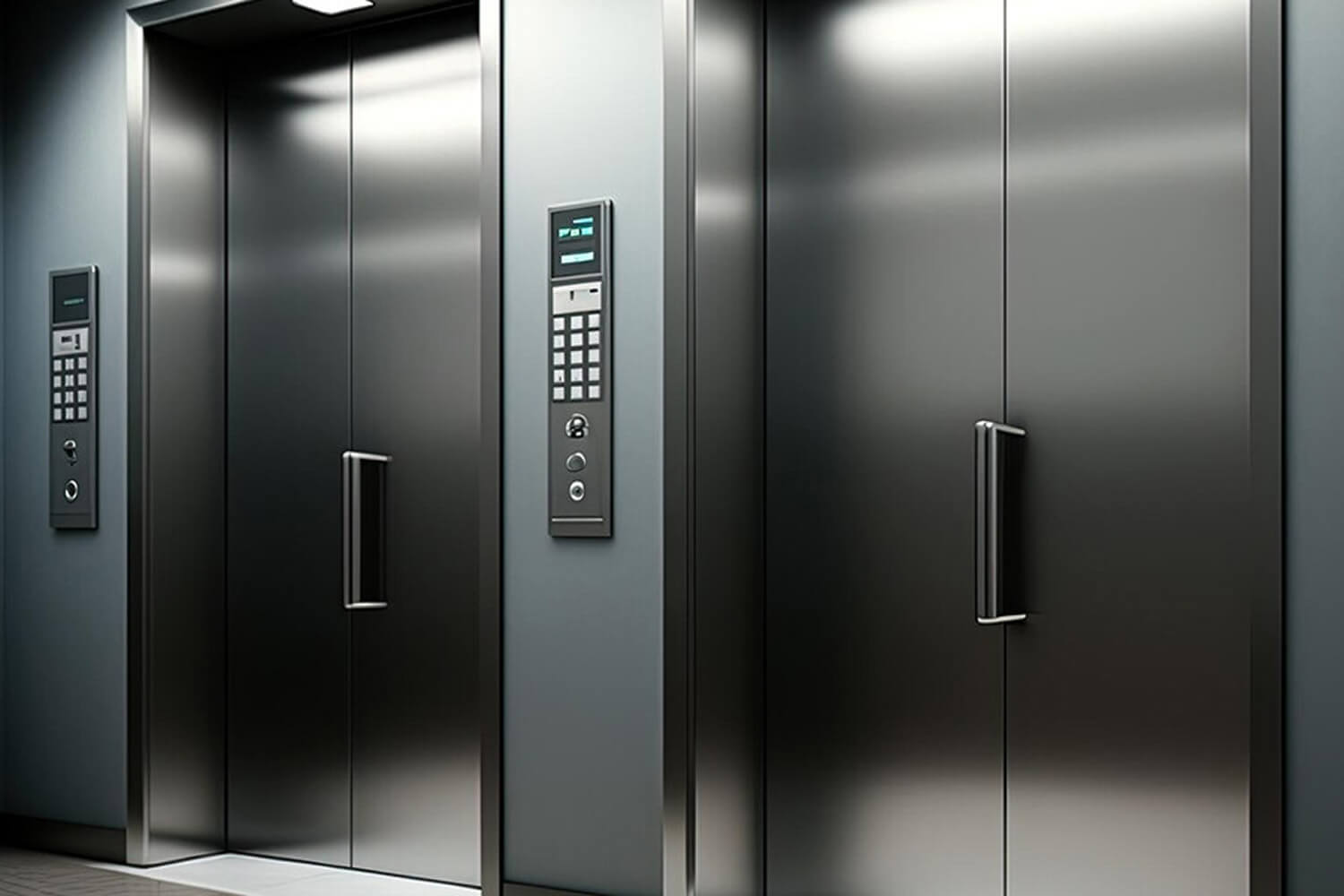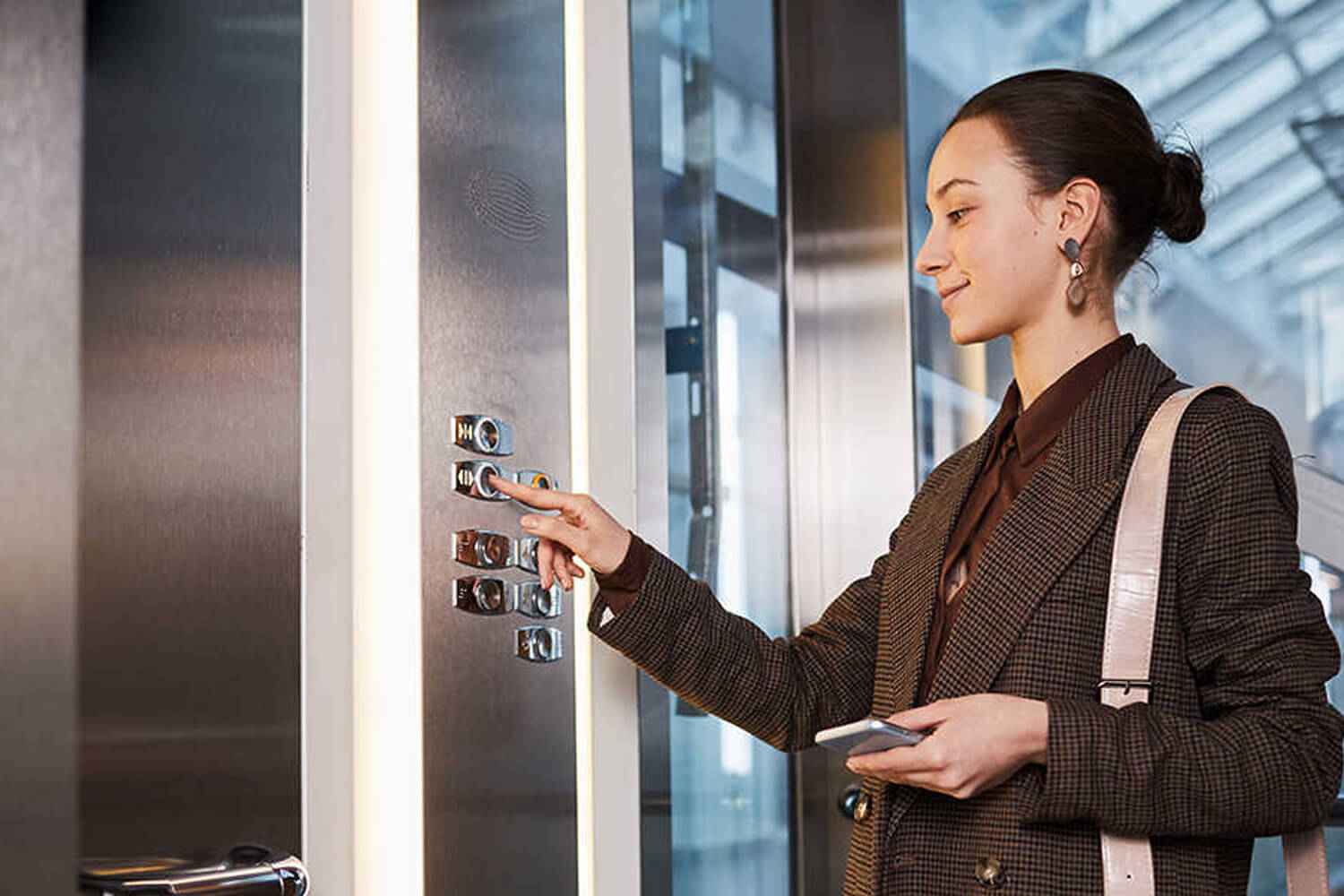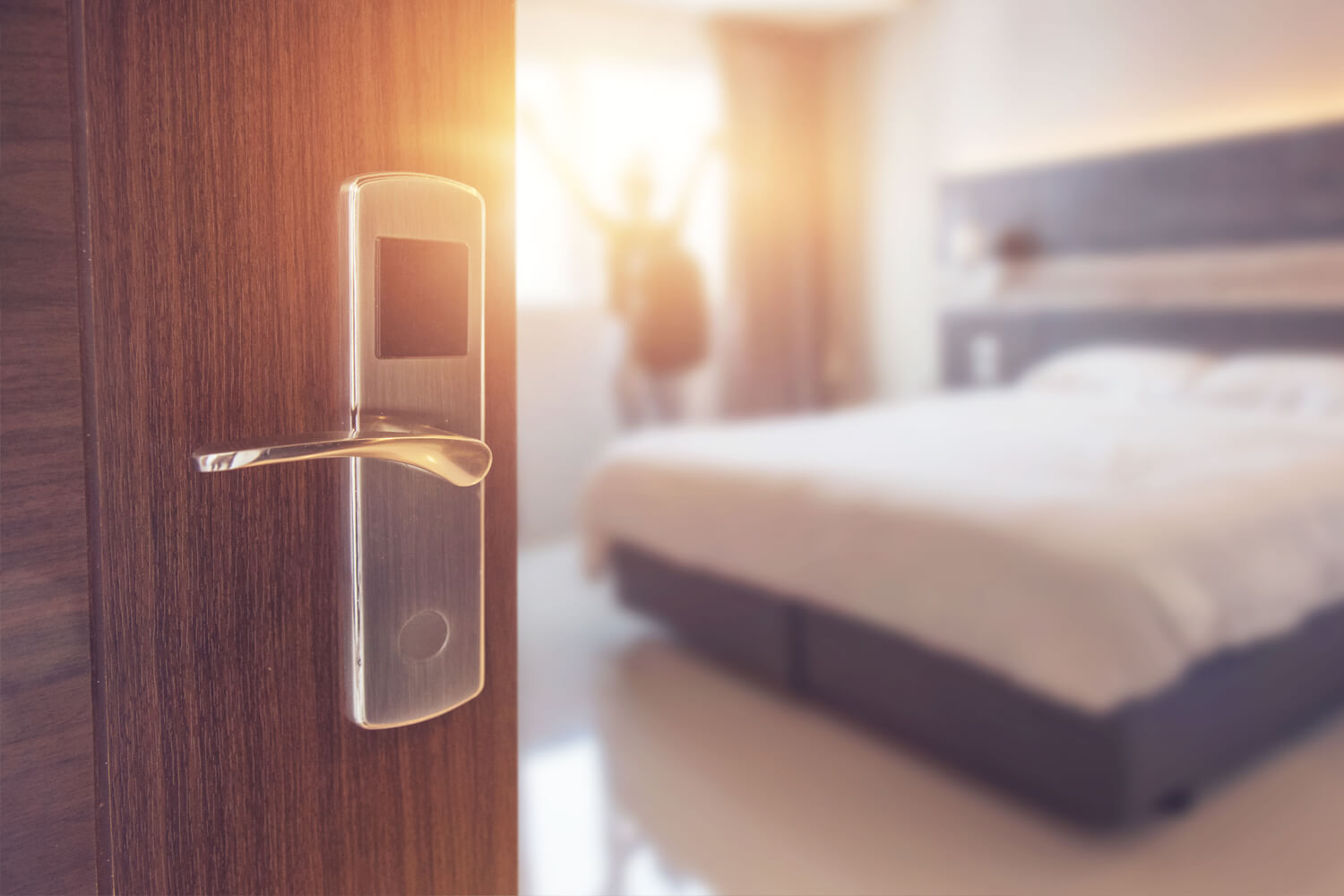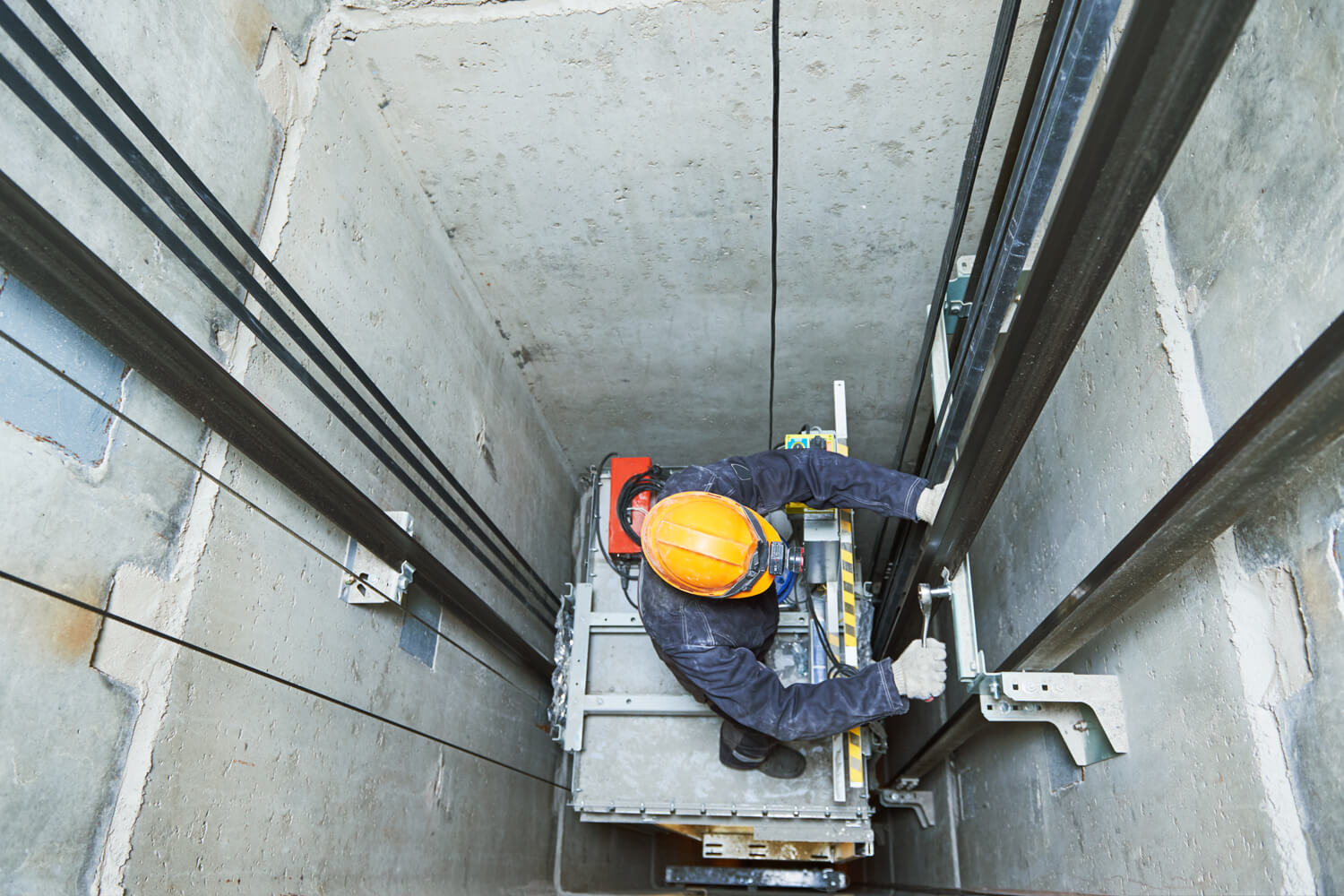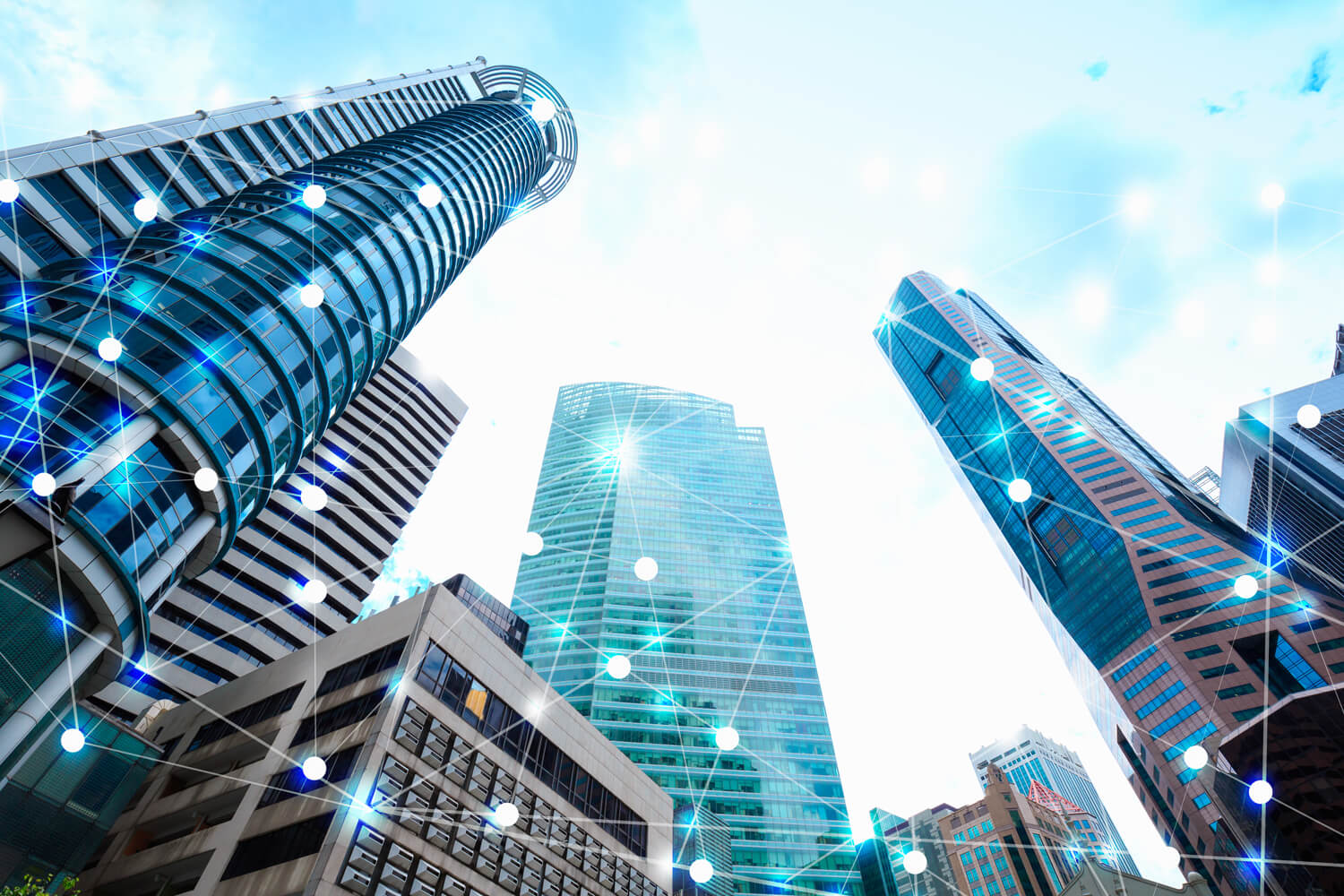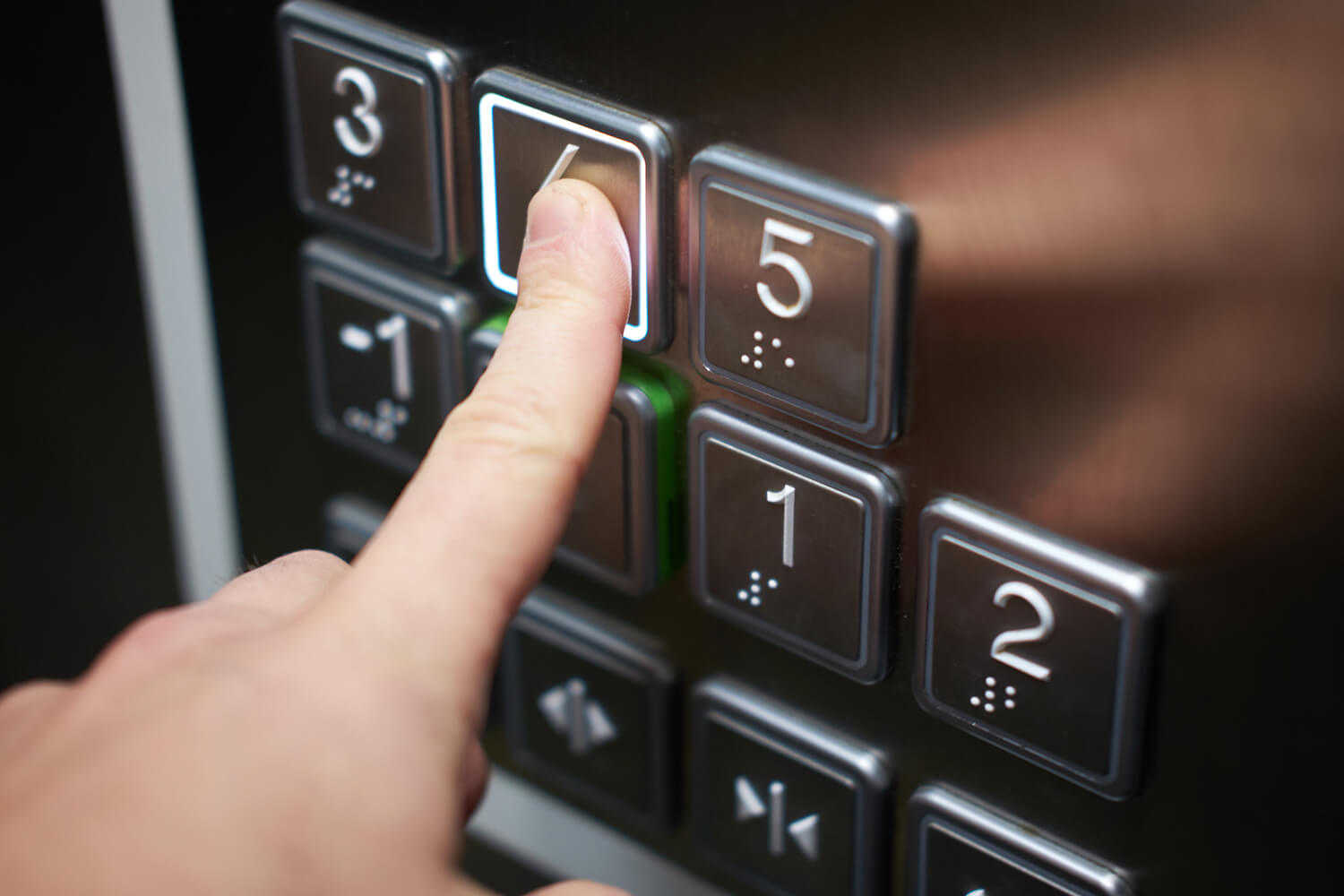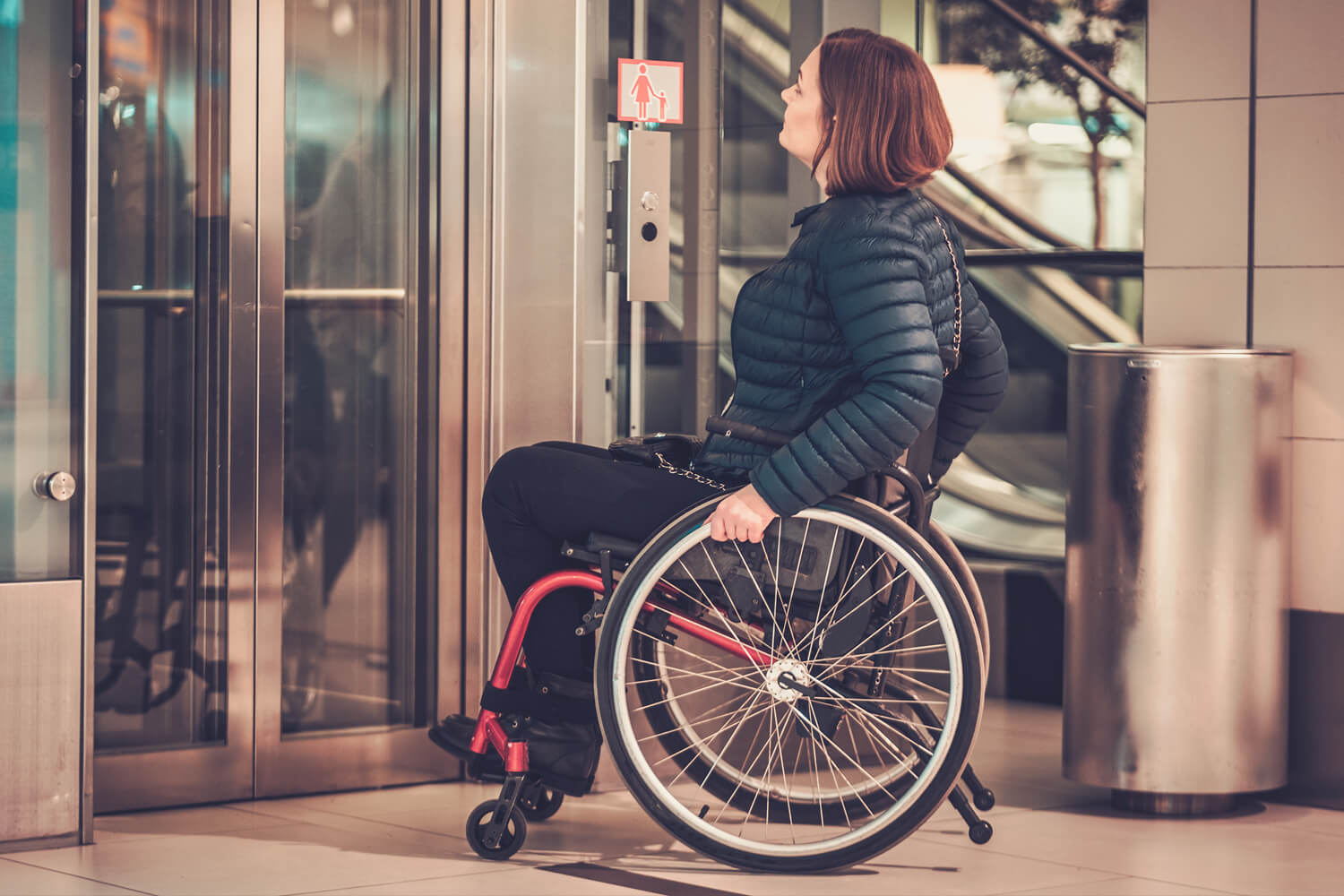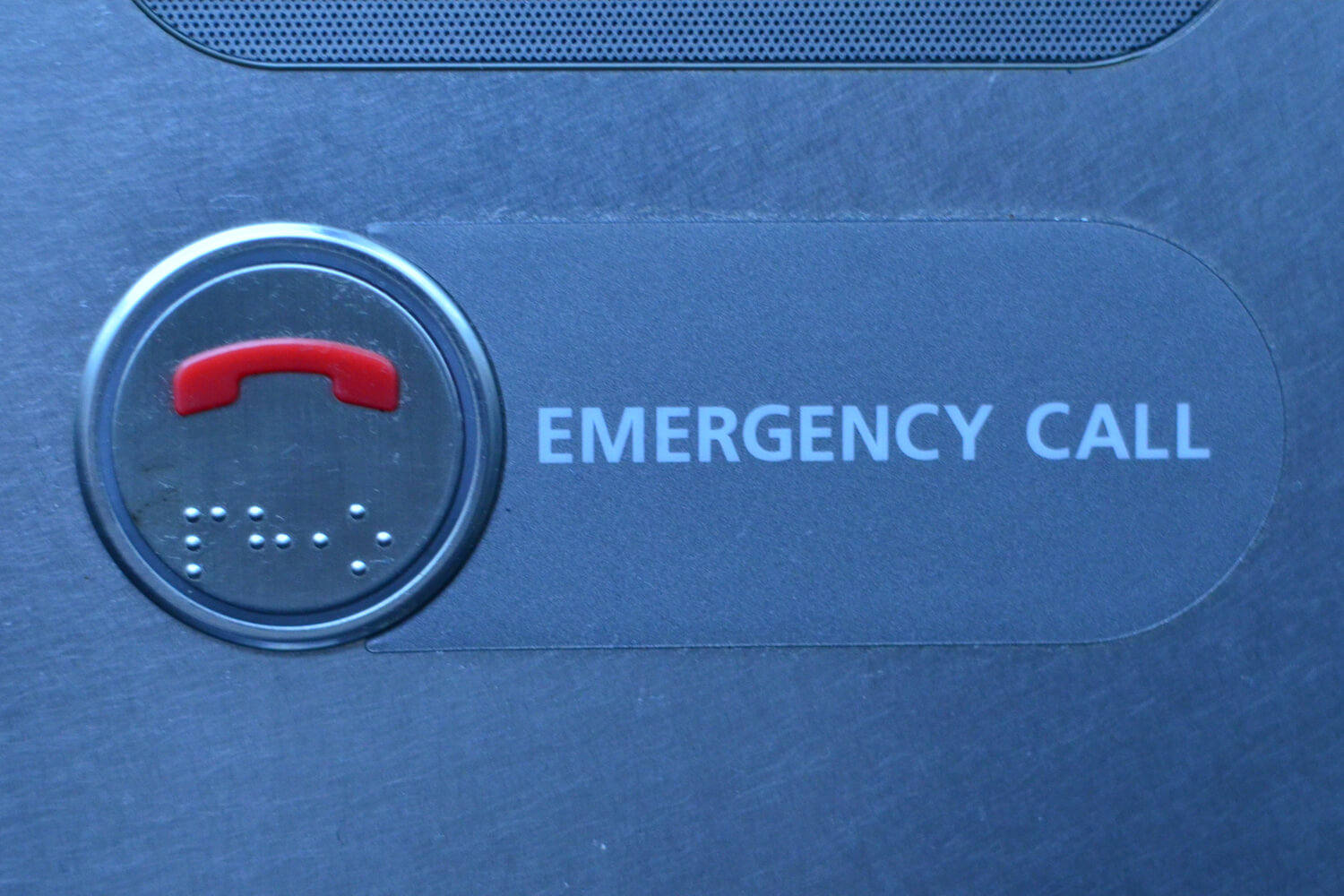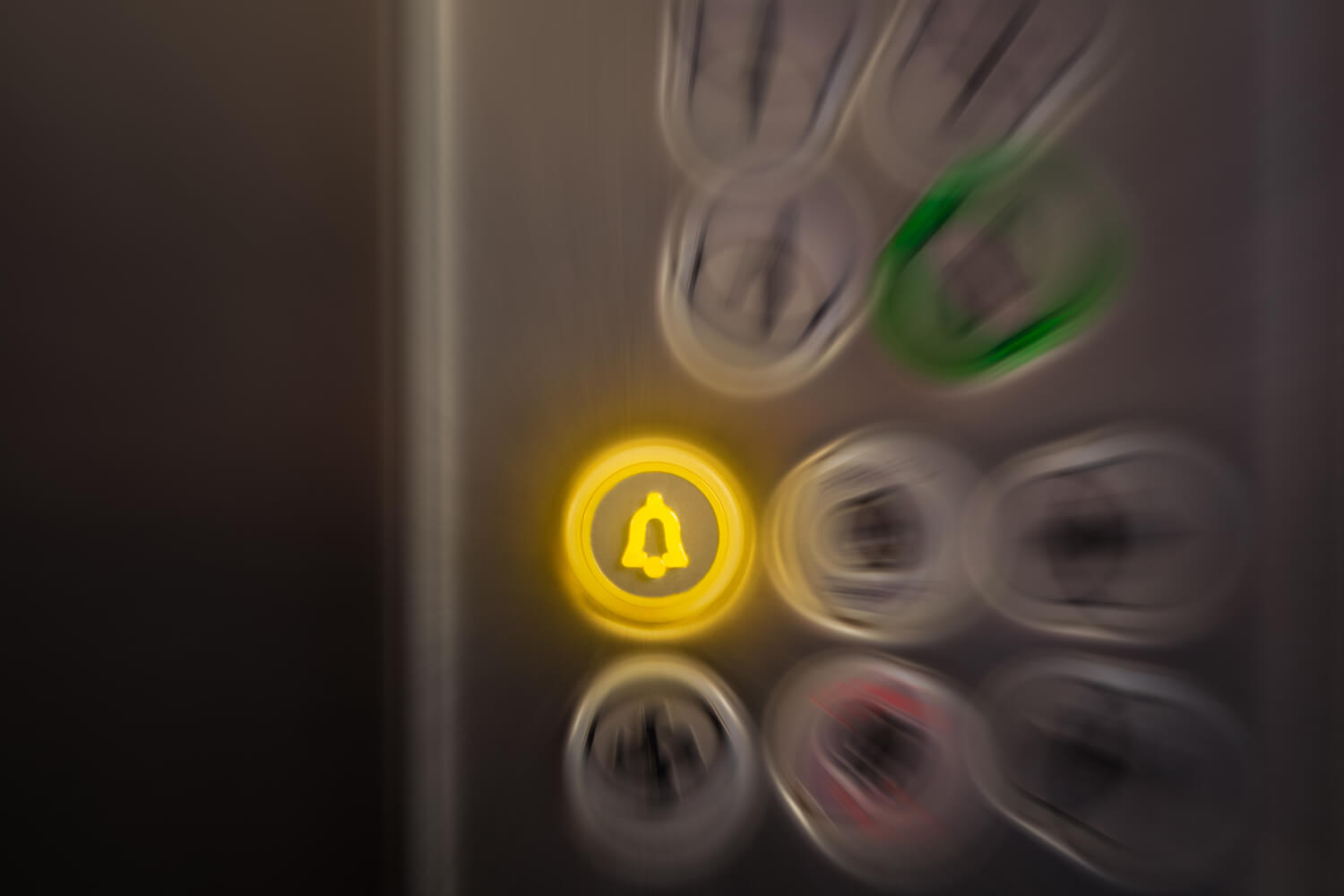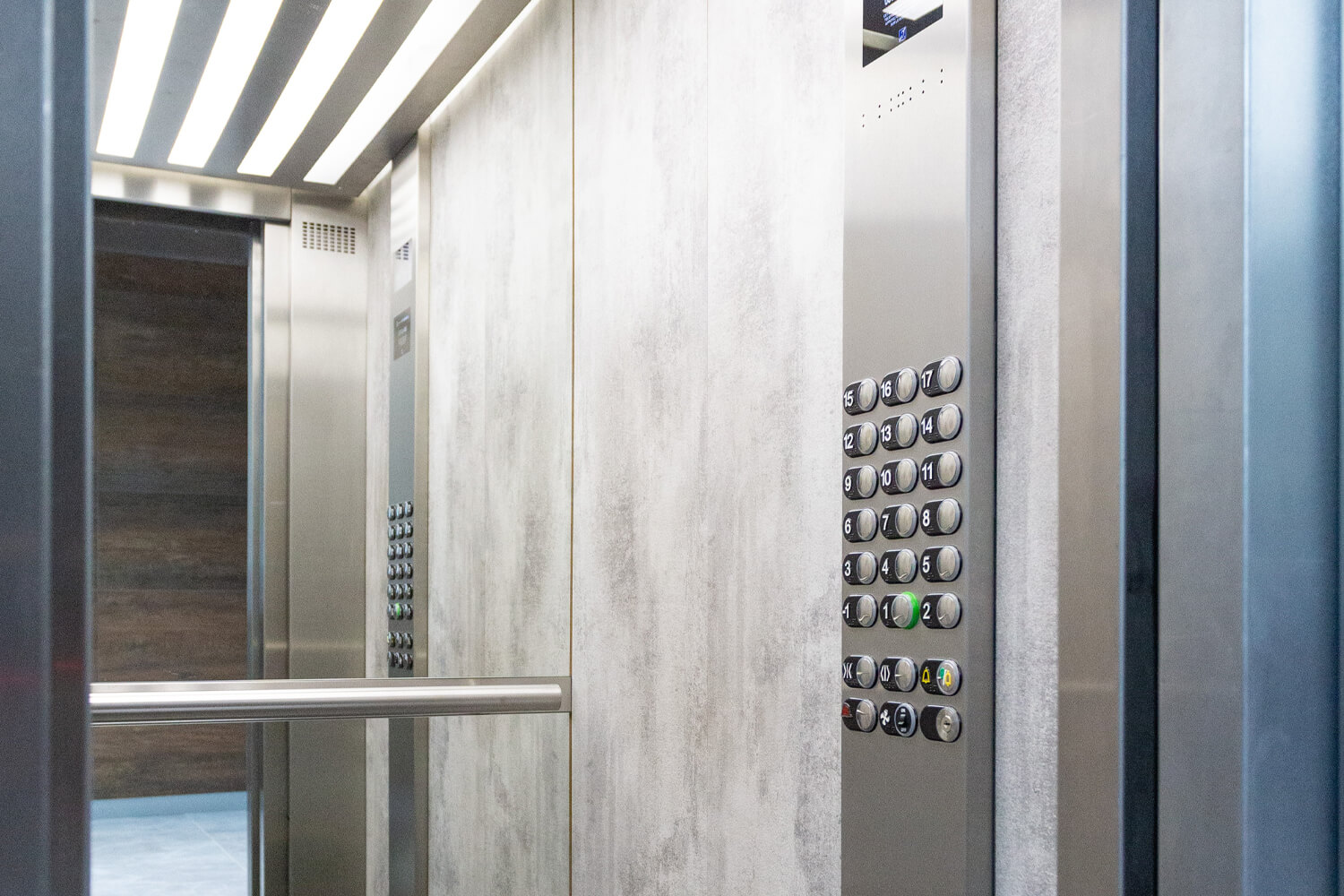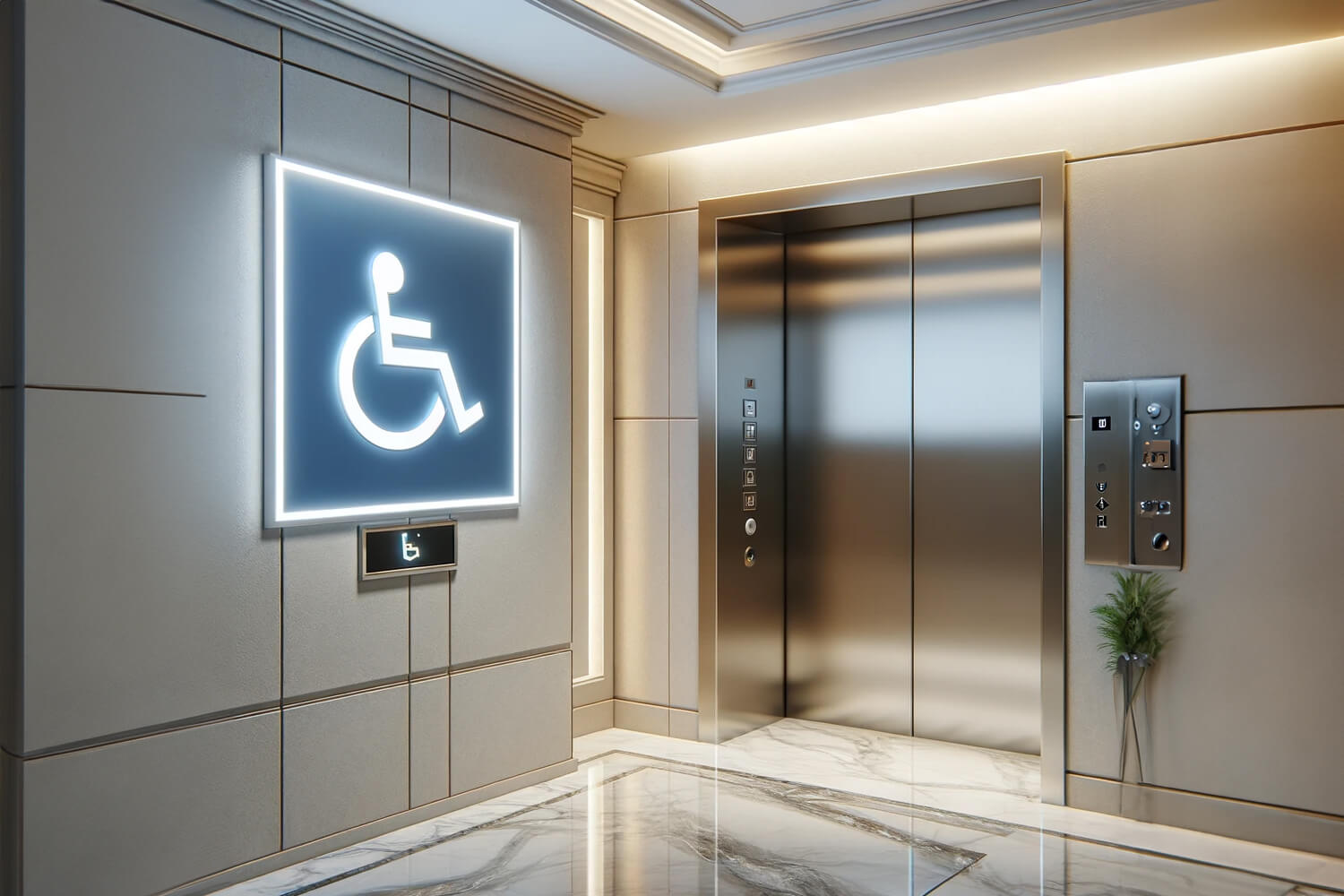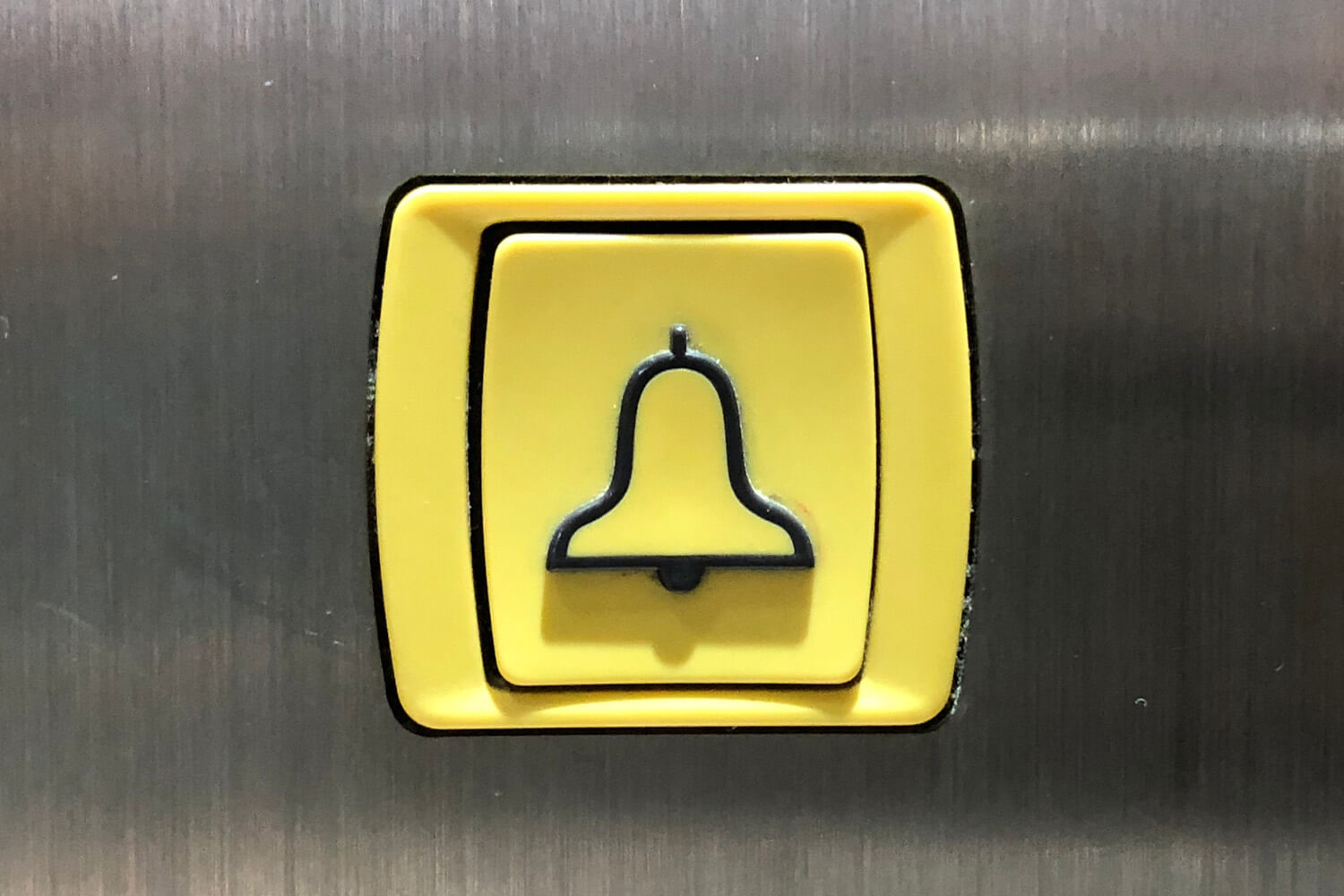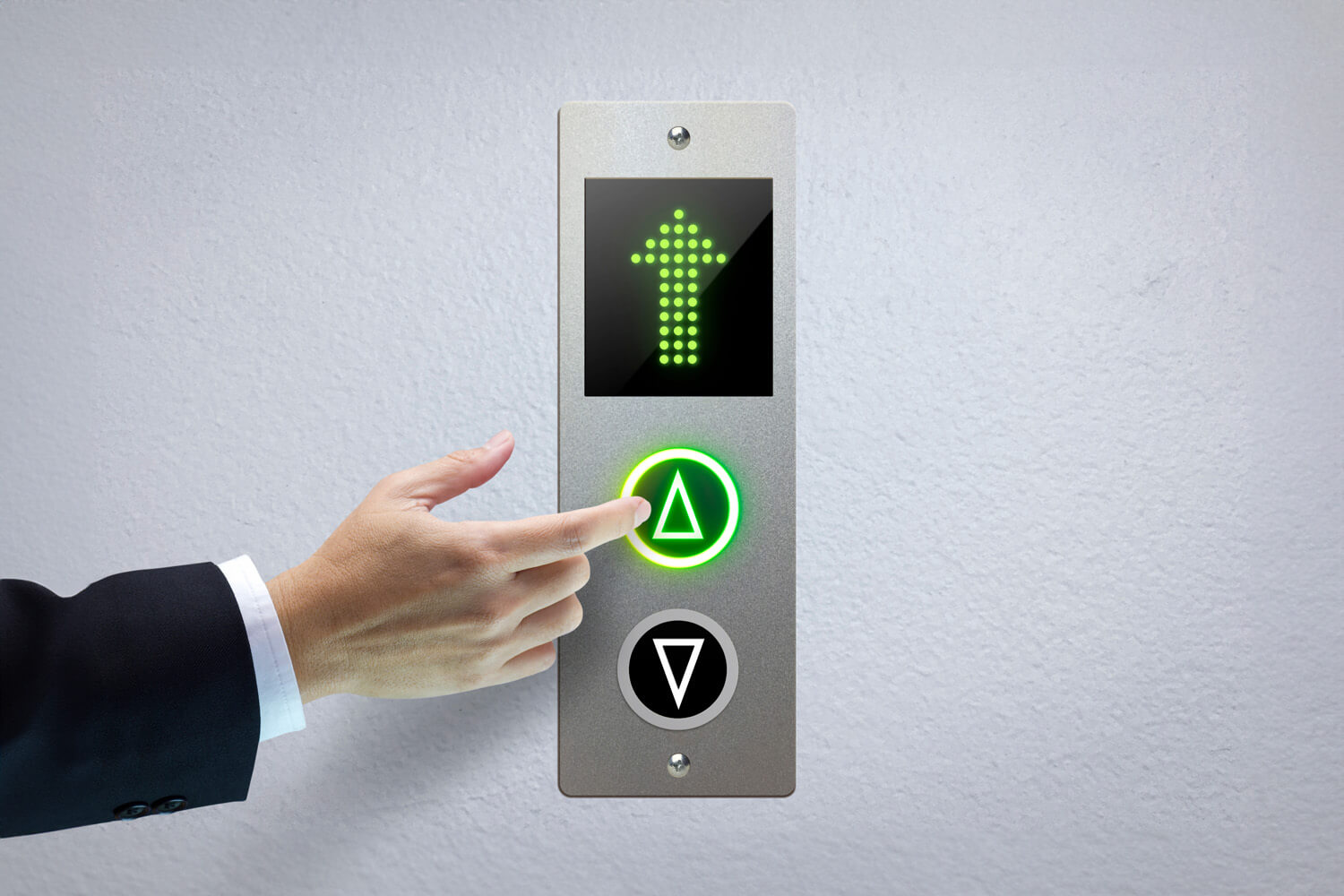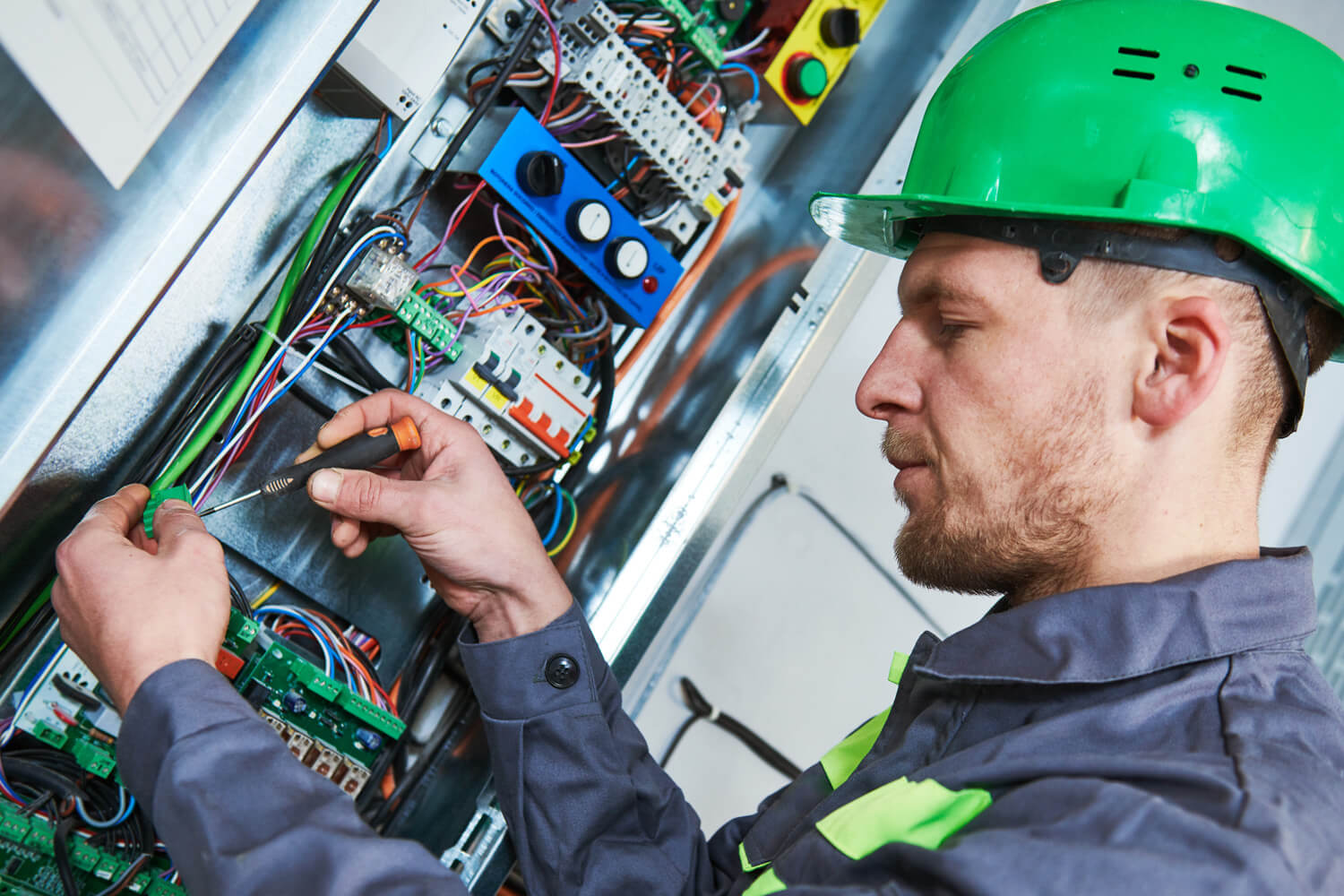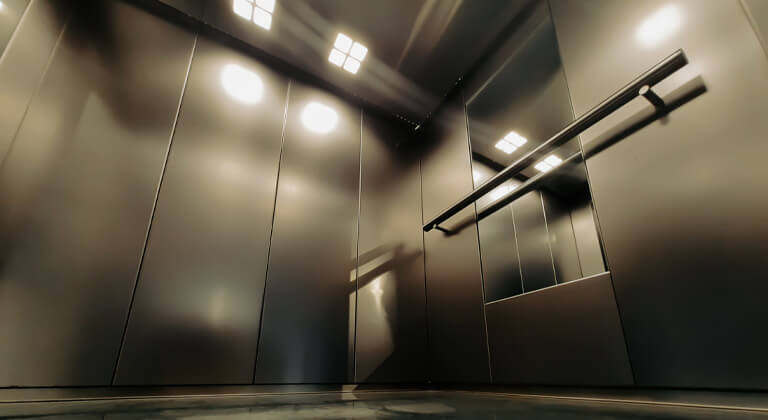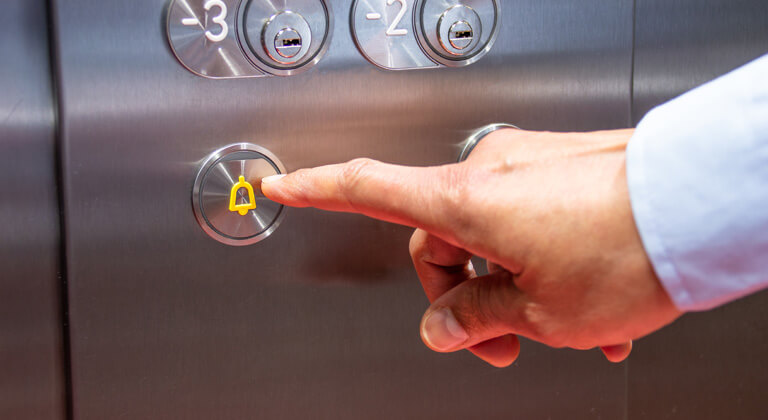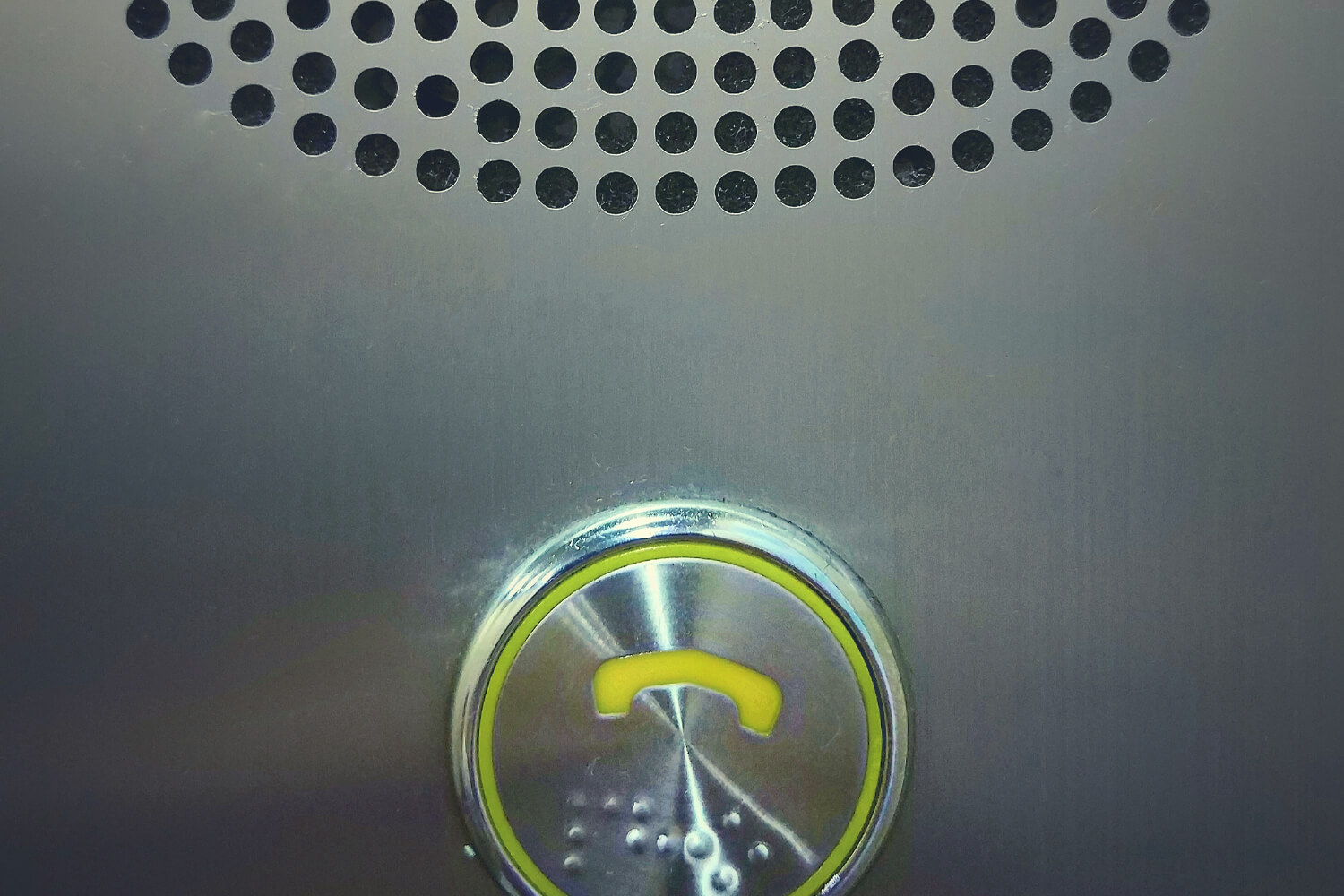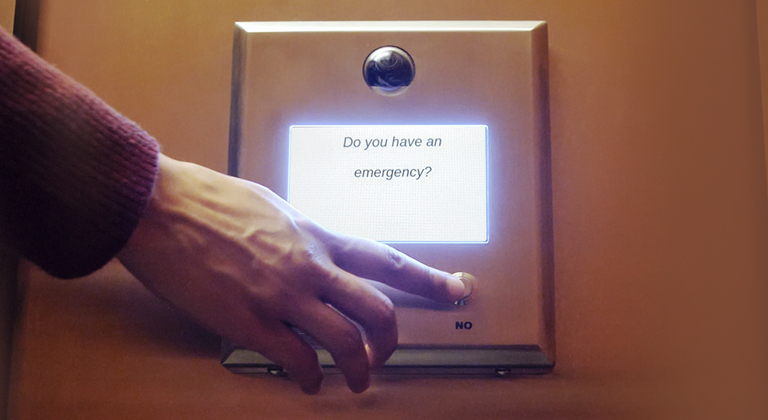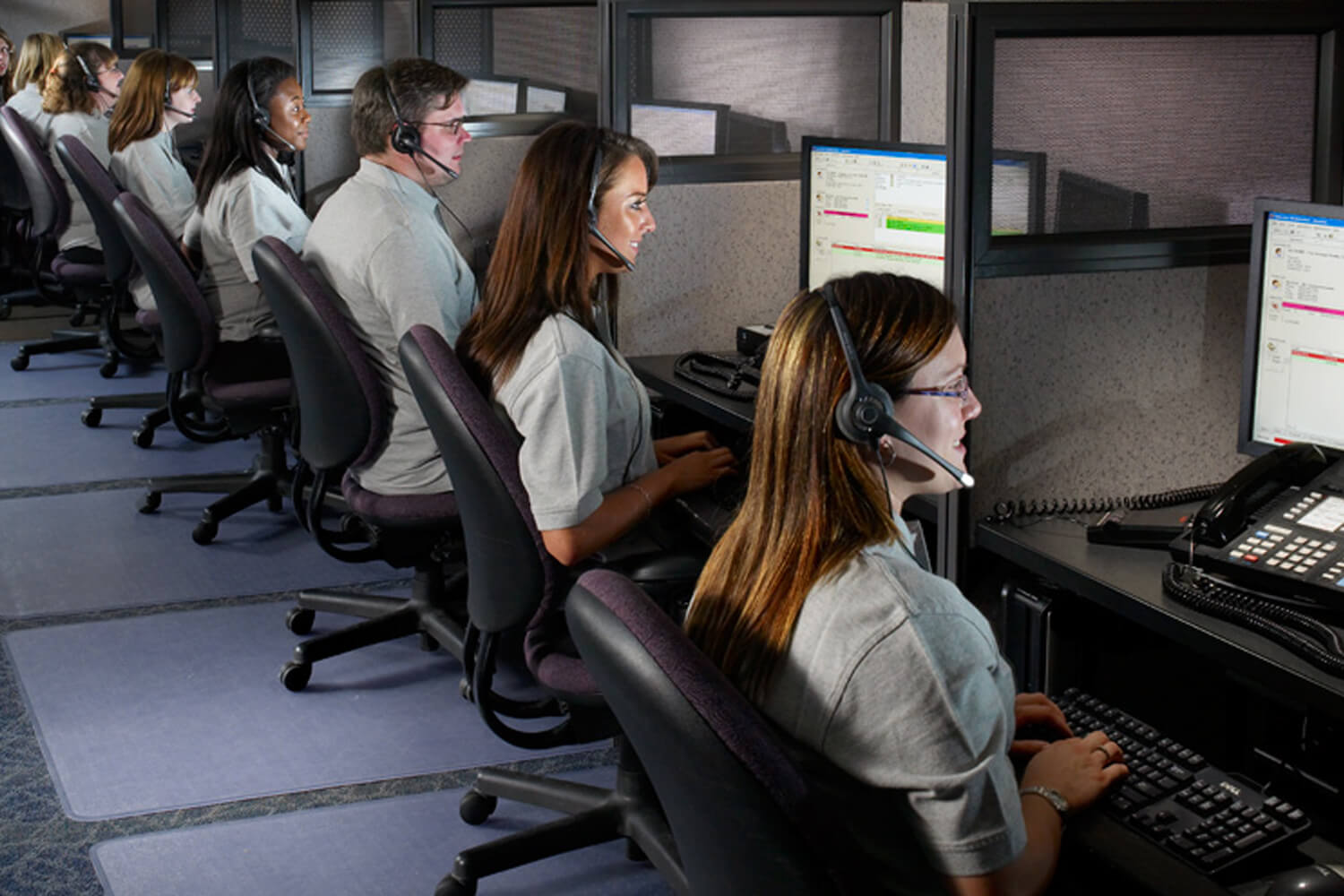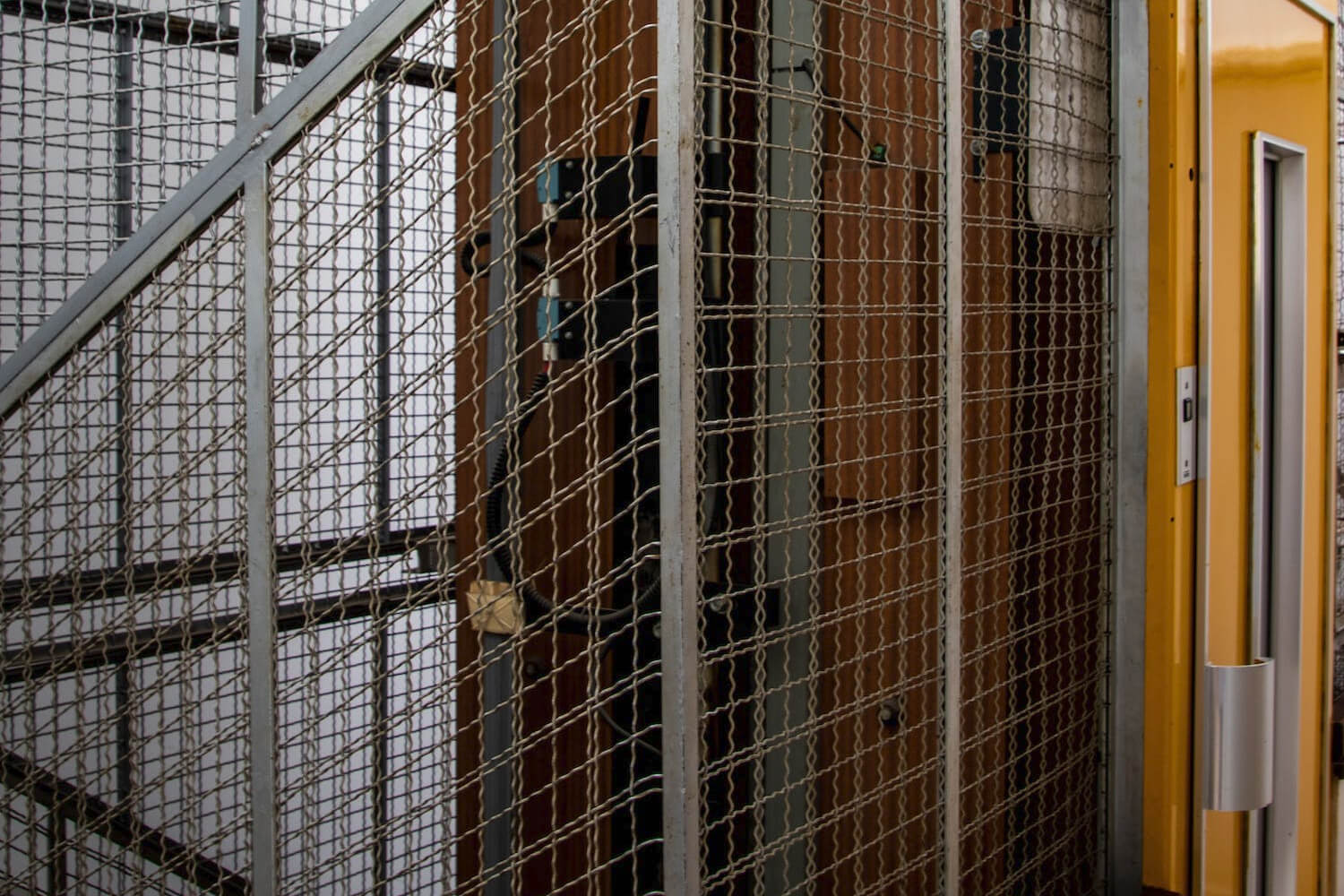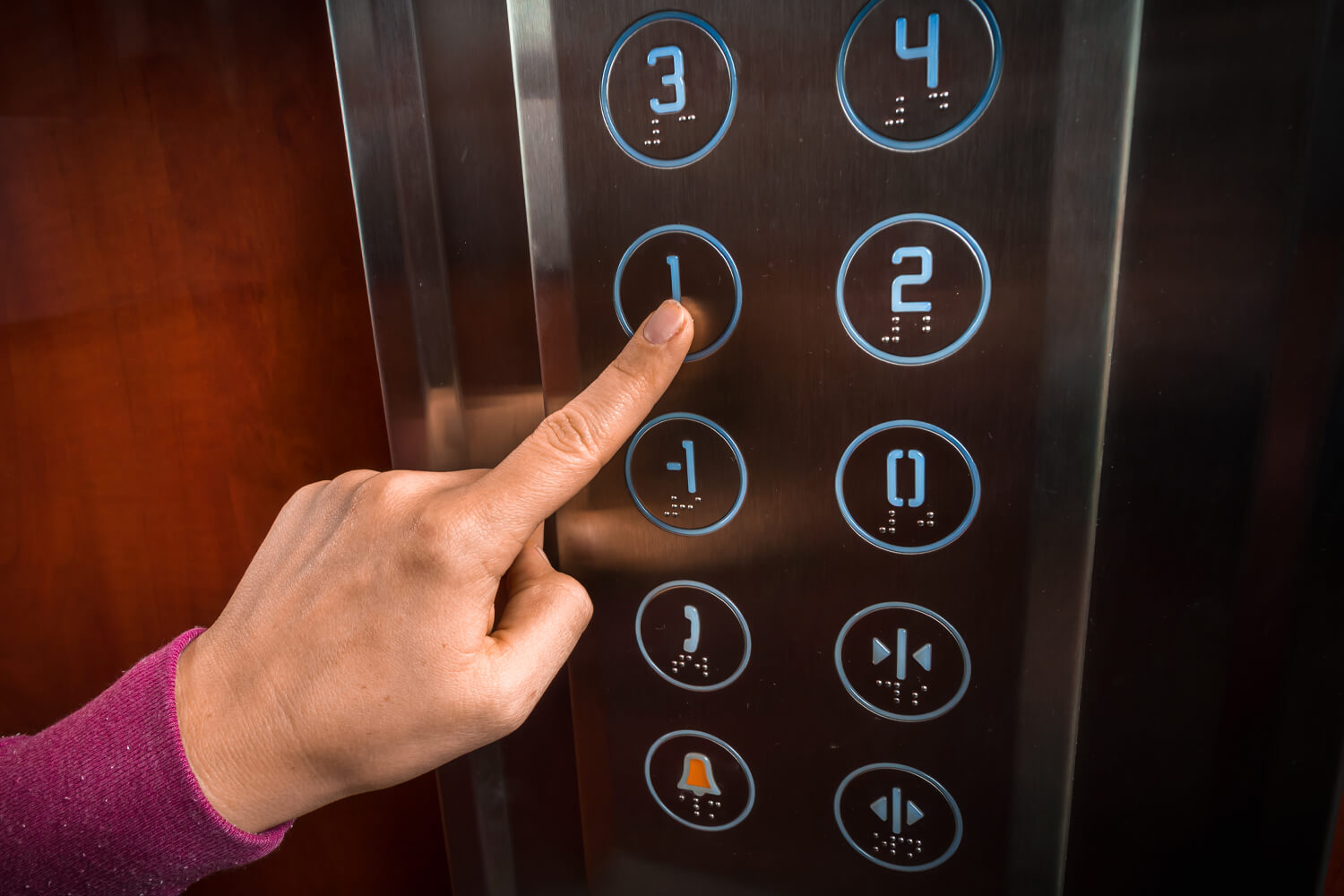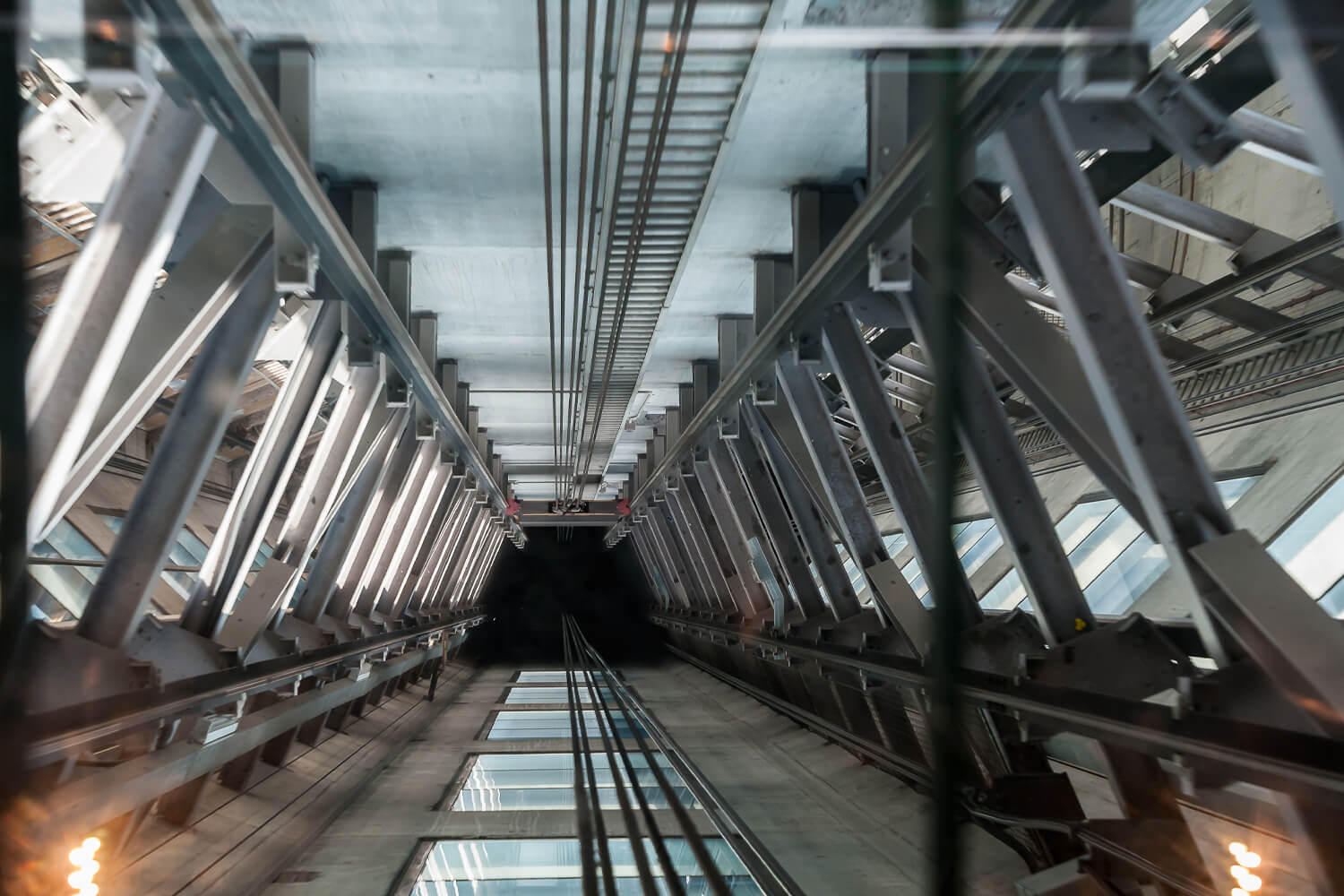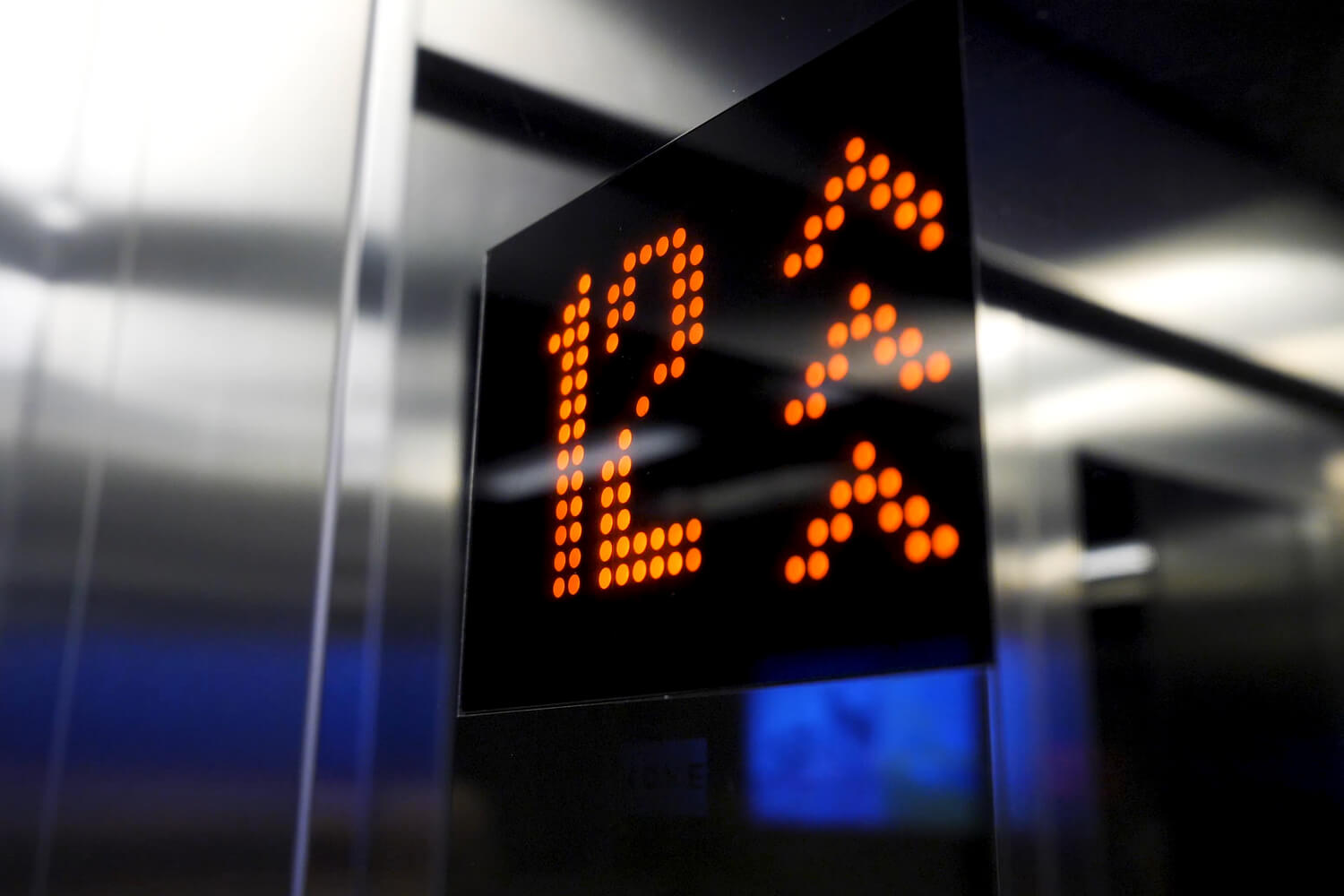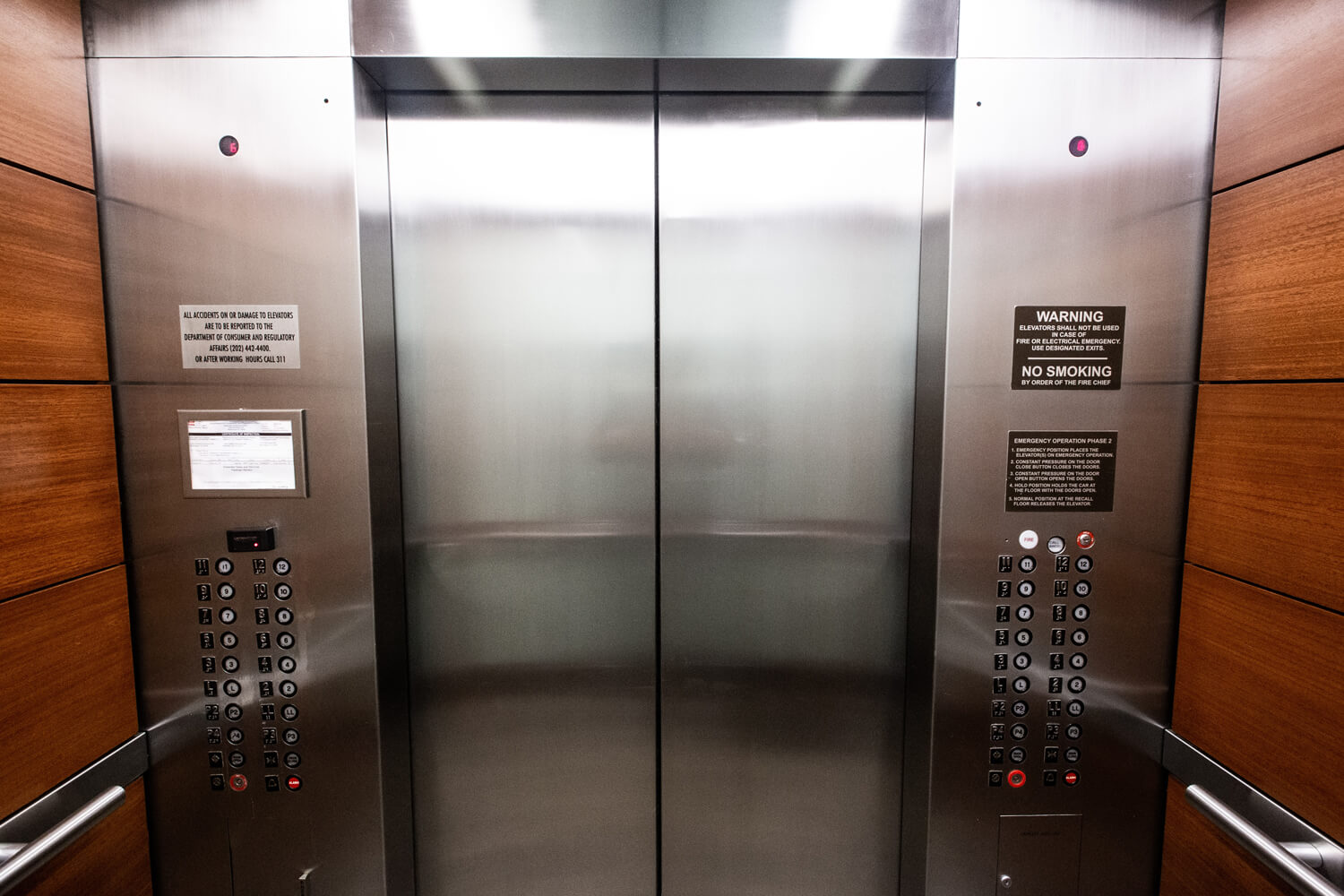The safety brake is one of the most important devices in an elevator system. As a premier elevator monitoring service, ELEVATE Monitoring understands the essence of these devices. If you're wondering, “How does an elevator safety brake work?” we've got the answer below. Discover how these elaborate brake systems operate,…
Blog
Why Do Elevators Have Mirrors?
When you step into an elevator, you'll likely find one design feature that's as essential as the buttons and door: mirrors. As a leading elevator monitoring service, our team at ELEVATE Monitoring is here to answer the question: Why do elevators have mirrors in the first place? Discover the answer…
Do Handrails in Elevators Increase Safety?
It's not uncommon to notice elevator security cameras during your ride. But what other safety features are worth putting in these spaces? Discover the advantages of installing a handrail in elevators for increased safety. Handrails Offer Handicap Assistance to Passengers Although installing a stainless steel handrail isn't required to have…
How To Install a Camera in an Elevator
Advanced elevator video monitoring allows you to assess riding patterns and increase security in these spaces. Learn how to install a camera in elevators so you can reap these benefits. Our experts at ELEVATE Monitoring reveal the basics of elevator camera installation below. Carefully Review Elevator Surveillance Systems Before Selecting…
How Safe Are Elevators for Senior Citizens?
Climbing stairs can be difficult and dangerous for senior citizens. Elevators, especially those equipped with an elevator monitoring service, make navigating multi-story buildings easier, but some people wonder, "How safe is an elevator?" Unfortunately, Hollywood has made it look like any elevator could plunge to the earth at any moment,…
Why Are Elevators Safer Than Stairs?
Whenever you see suggestions on how to get more physical activity into your day, there's a good chance that they'll include "take the stairs instead of the elevator." While climbing several flights might be a good choice for your cardiovascular health (and your leg muscles), it might not be the…
A Parents’ Guide to Elevator Safety Tips
For many kids, elevators are practically magic: They step into a tiny room, press a button, and suddenly they're on another floor. Truth be told, it can feel a little magical for adults, too. And thanks to features like elevator monitoring systems, it's a safe and secure way to get…
A Guide to Smart Elevators
If you live or work in a high-rise, the way you travel between floors might be due for an upgrade. Maybe you've already seen the signs, like sleek new panels, touchless buttons, or elevator cameras for security, but the latest innovations go even further. A new generation of smart elevators…
Six Safety Features Found in Modern Elevators
Many people still harbor an ingrained fear of elevators. This phobia is understandable, as elevators may appear dangerous and unpredictable, capable of becoming stuck or falling dozens of floors at any time. In reality, modern elevator safety features make accidents and malfunctions extremely uncommon. Read on to learn about the…
Seven Elevator Facts You Probably Didn’t Know
Americans today don't remember a time without elevators. They're a ubiquitous convenience that improves a building's accessibility and speeds up a person's trip to the top floor. But you may have never stopped to consider how truly incredible these systems are. The following elevator facts can help you gain a…
How Fast Do Elevators Move?
If your company has ever received the question "How fast do elevators move?" from a wary customer, you may have been unsure how to respond. Knowing the answer can help put fearful patrons' minds at ease and provide an accurate estimate of how long it takes to go from the…
Ways To Help People Overcome the Fear of Elevators
People might harbor a fear of elevators (elevatophobia) for several reasons. Perhaps they had a negative experience with one in the past, or maybe they are uncomfortable with being in tight, enclosed spaces. Whatever the case, elevators are a modern necessity. Helping patrons in your building overcome this fear can…
Common Elevator Issues and How To Fix Them
If your building has elevators, they will eventually present issues. Investing in an elevator phone monitoring service is essential, as it will provide peace of mind to riders 24/7/365. It is also imperative to better understand the most common elevator problems and solutions. Learning about them will enable you to…
When Was the Safety Elevator Invented?
Elevators have evolved significantly since their invention in 300 B.C. Back then, they were powered by people, animals, and/or water. Today, they practically run themselves and include advanced features like elevator video monitoring to keep riders safe. They have also come a long way from where they were when the…
What To Expect From an Elevator Safety Audit
Working with an elevator monitoring service is just one way to make your building's elevators safer. Another option is to perform an elevator safety audit. Are you preparing to have one performed for the first time? Let's examine what to expect. It Starts With a Basic Visual Inspection At the…
Elevator Safety Tips Every Building Manager Should Know
If you manage a residential or commercial building with elevators inside, ensuring they're as safe as possible for people is paramount. Consider beginning your quest to improve their safety by investing in an elevator monitoring service. Don't stop there. Consider following other elevator safety tips to keep those who routinely…
All You Need To Know About IoT in Elevators
The Internet of Things (IoT) has significantly changed the world in recent decades. It has helped people connect more devices than ever, allowing them to monitor everything from their health to their energy consumption more effectively. Ask anyone who owns an elevator monitoring service, and you'll quickly discover that IoT…
Is It Time To Switch? A Complete Guide to POTS vs. VoIP
Are the elevators in your building still equipped with Plain Old Telephone Service (POTS) rather than Voice over Internet Protocol (VoIP)? If so, consider calling an elevator phone monitoring service to help you make this big change. Diving into the POTS vs. VoIP debate should convince you that switching is…
Exciting Elevator Technology Trends Set To Dominate 2025
If you were to go back in time and tell Elisha Otis, the inventor of the safety elevator, about how far his invention has come since the 1850s, he would no doubt be shocked. Back then, incorporating elevator video monitoring would have sounded as far-fetched as sending someone to the…
The Technologies That Make Up a Smart Building System
Buildings are becoming more "intelligent" than ever before. One recent report revealed that about 115 million smart buildings will soon exist globally. If yours takes advantage of the real-time monitoring offered by an elevator monitoring service, it already falls into this category. So, what is a smart building system? What…
Benefits of Replacing Your POTS Line
Does your business still use an outdated plain old telephone service (POTS) line for communications? Many businesses have transitioned to modern VoIP systems for most communications yet still rely on POTS lines in their elevators. It's time for a POTS line replacement. Learn the benefits of switching to a modern…
Is It Dangerous To Get Stuck in an Elevator?
If your business has an elevator, you may ask yourself from time to time: Is it dangerous to get stuck in an elevator? What would happen if patrons became stuck in the elevator on my premises? Could they become injured, and would my business be liable? The answers depend on…
Debunking Common Myths About Elevators
Elevators are a source of anxiety for many people. This is largely due to common elevator myths that have circulated for decades. Patrons often believe elevators to be more dangerous than they are, sparking fear and panic responses when minor malfunctions do occur. Many of these beliefs are outright false,…
What Happens If You Accidentally Hit the Call Button on an Elevator?
If you've ever accidentally hit the "call" button in your business's elevator, you likely experienced a few moments of panic. What happens next? Will emergency services come busting down the door? Accidentally hitting the call button on an elevator certainly isn't the end of the world. You'll connect with the…
Understanding Elevator Door Lock Monitoring and Its Importance
The average elevator is equipped with several safety features. These include emergency brakes and overload sensors, emergency lighting, and elevator video monitoring, which work together to prevent injuries during emergencies. Another is elevator door lock monitoring (DLM). What is DLM, and why is it so important for elevator safety? Get…
Elevator Modernization: The Key to Safer, More Efficient Buildings
Elevators are a vital part of modern buildings, ensuring accessibility and convenience. However, older elevators can become outdated, inefficient, or even unsafe. That's where elevator modernization comes in—a process that enhances elevator performance, safety, and compliance with modern standards. If your building's elevators are experiencing frequent breakdowns, slow operation, or…
How VoIP Elevator Phones Work With Your Elevator Emergency System
Most elevators have been equipped with POTS (plain old telephone service) lines for emergencies for decades. Meanwhile, the latest elevator phone monitoring services favor VoIP (Voice over Internet Protocol) technologies. Have you made the analog-to-digital transition yet and incorporated VoIP elevator phones into your building's elevators? If not, consider doing…
The Most Common Reasons Elevators Get Stuck
Only about one out of every 100,000 elevator rides gets stuck. This might suggest you don't need an elevator phone monitoring service for your building. Learning more about these services will reveal why investing in one is worthwhile. Power Outages So, why do elevators get stuck? Weather-related power outages are…
How Two-Way Elevator Video Monitoring Helps in After-Hours Elevator Emergencies
It's after midnight, and Jerry is finally ready to head home from work and get a good night's sleep. His exhaustion gives way to panic, though, when the elevator he's in grinds to a halt. Elevator emergency monitoring systems are a lifesaver in situations like these. Below, learn how elevator…
Understanding Elevator Security Standards
Once upon a time, elevators were little more than rickety platforms that left riders wondering whether they'd make it to the top in one piece. Elevator security standards have evolved in leaps and bounds since those days, and your building's elevators need to meet these standards if you want to…
Average Cost for an Elevator Phone Line
Whether you're installing elevators in your building or it's been a while since you last upgraded your EMS phone system, you may be wondering how much you should expect to pay for a new elevator phone line. The cost varies quite a bit depending on the type of phone and…
Understanding the EMS Elevator Phone
Early one morning, your building's elevator stops working with a car full of riders inside. One tries to use their phone to call for help, but there's no reception. Another spots the EMS elevator phone you've recently installed. They simply push a button and instantly connect to an operator who…
Reduce Theft Incidents With an Elevator Monitoring System
Has your residential or commercial building experienced a rash of thefts in recent weeks? Are you concerned about the safety and well-being of your residents or employees? Incorporating more security guards into the mix can curb criminal activity and ensure your tenants feel safer. But why stop there? Investing in…
How Elevators Impact the Growth of Cities
There isn't just one answer to the question, “How did the elevator impact the growth of cities in the U.S.?” Elevators have shaped modern cities in many different ways. Elevator systems in the U.S. date back to the Industrial Revolution. Elevator technology, like elevator video monitoring, has come a long…
What To Do If You Are Trapped Inside an Elevator
Would you know what to do if trapped in an elevator? You might deal with anxiety and fear every time you step on an elevator if you aren't sure how you should react to getting stuck in one. Fortunately, many modern-day elevators offer elevator phone monitoring service, allowing you to…
The Impact of an Elevator Remote Monitoring System
Do the elevators in your building provide remote elevator phone monitoring service? If not, your building's tenants might not feel as safe as they should when using them. Studies have shown that about 12% of the American population suffers from claustrophobia, with many people feeling claustrophobic while riding elevators. You…
How Long Do Elevators Last?
Maximizing your elevator lifespan involves taking numerous maintenance steps throughout its operation. How long do elevators last? With proper maintenance and upgrades, such as replacing the elevator phone system to match modern code requirements, you could receive 30 years or more of performance from the unit. Learn more about elevator…
Guide to Choosing an Elevator Monitoring Service Provider
If you have an elevator on your commercial or retail property, choosing the right elevator monitoring service provider ensures proper operation. You need your service provider to know the local codes, understand your elevator’s operation, and keep everything — from the cellular elevator phone to the video monitoring capabilities —…
What Is PoE Switch Technology, and What Is It Used For?
Maybe you've heard that Power over Ethernet switch technology can help businesses expand their network infrastructure without hefty upfront costs. However, the promise of using a PoE-enabled networking device to install a camera far from your closest power socket might sound too good to be true. So, what is PoE…
Tips for a Successful POTS Replacement in 2024
Transitioning your building from plain old telephone service (POTS) to a more efficient, modern, and up-to-code solution can help lower operating costs while improving day-to-day functionality. The POTS replacement process may seem overwhelming, but it doesn't need to be when you've prepared correctly. Below, our team from ELEVATE Monitoring discusses…
What Are the Chances of Getting Stuck in an Elevator?
When an elevator makes strange beeping noises or the door takes longer than normal to open, many people get nervous. Concern about being stuck in an elevator is a fairly common fear. Whether due to power outages or mechanical failure, no one wants to experience elevator entrapment. Thankfully, a reliable…
Do I Have To Have a Phone in My Elevator?
It's a fear many people have: being stuck in an elevator with no way out. Thankfully, elevators must meet strict safety requirements for design and operation — including reliable communication systems in case of emergency. Whether traditional copper-based landlines or modern cellular elevator phones, you may wonder, "Do I have…
Elevator Phone Line Not Working: Three Causes
The American Society of Mechanical Engineers Elevator Code lays out all the rules and regulations that building owners must follow regarding their elevators. One requirement listed in ASME A17.1 is that all elevators must have dedicated telephone lines to ensure proper communication during emergencies. Is the elevator phone line not…
Three Signs It’s Time To Replace POTS Line Setups in Your Elevators
According to the National Elevator Industry, the U.S. is home to about 900,000 elevators, which transport people about 2.5 billion miles annually. Since elevators take so many trips up and down within buildings, they’re bound to break down occasionally. This explains why they’ve long been equipped with plain old telephone…
Understanding Apartment Building Elevator Requirements
When considering whether to have elevators in an apartment building, it’s important to understand the relevant requirements. All types of elevators must adhere to strict standards, even in a residential apartment building, to ensure proper safety and reliability of operation. You may even need video and text communication capabilities inside…
Are POTS Lines Going Away? Why It’s Time To Consider Cellular Elevator Solutions
Are POTS lines going away? Although some businesses may still rely on POTS lines for emergency services like elevator communications and alarm systems, demand for this outdated technology is shrinking. The end of governmental support and price increases for replacement equipment and service are two key reasons POTS lines are…
Why Do Elevators Have Cameras? Understanding the Legality of Elevator Monitoring
When setting up a security system for your building, the placement of security cameras can be a touchy subject. Where might you put them without violating privacy concerns for employees and visitors? Why do elevators have cameras in the first place, and are they legal? The short answer is that…
Understanding Your Top POTS Line Replacement Options
If your elevator design continues to rely on plain old telephone service (POTS), it may be time to consider a modern digital replacement. If you’re unsure exactly how to tackle this type of upgrade, it’s helpful to understand your POTS line replacement options. One useful option is a cellular elevator…
How To Reset Elevator Communications Failure
Your building’s elevator communications system serves as the last resort when all else fails. If this elevator communication system fails, does the panel set off an alarm? If not, the passengers won’t be able to get in touch with emergency personnel. Safety installations like ELEVATE Monitoring’s reliable elevator phone system…
Elevator Safety Mechanism: Key Considerations for High-Rise Building Management
You may be in charge of ensuring the proper functioning of your high-rise building’s elevators. How confident are you that all employees or building occupants can enjoy safe daily rides to their desired floors? Do you have a clear elevator safety mechanism in place to mitigate entrapment, power outages, and…
What Is a Traction Elevator?
What is a traction elevator? You might ask this if you haven’t yet installed an elevator in your building or climbed up to see one behind the scenes. There are multiple types of elevators out there, from traction or hydraulic elevators to vacuum and freight elevators. Still, even though each…
5 Common Elevator Malfunctions a Monitoring System Can Prevent
Common elevator malfunctions are inconvenient. More importantly, these malfunctions might put your building's occupants in dangerous situations if you haven't installed an advanced elevator monitoring system or performed regular preventive maintenance. Wouldn't you like to ensure the proper functioning of your building's elevators, ultimately keeping employees, tenants, and occupants safe?…
Does an Elevator Require a Dedicated Phone Line?
What would happen if your elevator broke down with several riders inside? Could they easily call for help, or would they be stuck inside the cab for hours? If the latter is your answer, you need to install an elevator phone system immediately. Does an elevator require a dedicated phone line? Yes,…
The Six Types of Elevator and How To Choose One
Thinking of buying a new elevator or two for your building? It’s a big investment, so you want to choose the right one. With so many elevator varieties on the market, it’s hard to know which type suits your building’s needs. Below, learn about six different elevator types from our elevator…
Understanding the Significance of Elevator Traffic Analysis
Have you ever wondered whether your elevators are operating at peak efficiency? Without a proper elevator traffic analysis, it's impossible to know for sure. Learn about traffic pattern evaluation below, then call us to discover why an elevator monitoring system is necessary for your building. What Is Elevator Traffic Assessment? An elevator…
Five Ways To Optimize Elevator Performance in Your Building
If you own a high-rise building, you can't expect visitors to trudge up and down 10+ flights of stairs. You need an elevator system that can withstand even the heaviest traffic. Want to get the most out of your elevators? Check out these tips on boosting elevator performance, including conducting…
The Top Causes of Elevator Communications Failure
When the communication system in your elevator fails, passengers face immediate risks as your dispatchers can no longer assist. To prevent elevator communications failure, you must understand why it happens. Numerous concerns, from power outages to poorly trained dispatchers, can lead to a loss of communication in elevators. This article…
Who Answers Elevator Emergency Phone Calls?
You’re stuck inside an elevator, so you click the emergency call button, but what happens next? Who, if anyone, will answer? Learning the protocol for elevator distress calls is vital to keep your elevators up to code. A code-compliant, feature-rich elevator answering service connects occupants with highly trained professionals ready…
Are Elevators Required To Be on Emergency Power?
If you have an elevator in your building, you may have wondered what would happen if the power went out. Elevators typically have built-in response systems for power outages, but these don’t mitigate risks entirely. So, are elevators required to be on emergency power sources? An advanced elevator monitoring system…
How Often Do Elevators Need To Be Inspected?
If you own a commercial building with an elevator, you must follow a regular elevator maintenance schedule to keep it in safe, working order for all occupants. Even knowing that, you may wonder: How often do elevators need to be inspected? Below, we discuss the recommended elevator inspection frequency and…
Six Ways To Elevate Office Building Security
It’s said that the best offense is a good defense, and that’s certainly true when it comes to office building security. Failing to install robust office security systems, such as an elevator monitoring system, is like leaving your house with the doors unlocked. It puts you at risk for theft, damage,…
How Elevator Modernization Enhances ROI
If you’ve got an older building with a rickety, ancient elevator, that’s a disaster waiting to happen. Your elevator may work fine today, but what happens if it fails with a load of riders inside? What if someone has a medical emergency while trapped in the car? Elevator modernization, and…
Four Essential Elevator Upgrades for Commercial Buildings
If it’s been a few years since you paid attention to your elevators, you could be due for some modern elevator upgrades. Upgrading building elevators is the best way to keep guests safe and ensure an enjoyable ride. Since you’ve got many elevator upgrades to choose from, such as an…
A Comprehensive Guide to Elevator Access Control
If you own a corporate office building, you probably have an access control system at the entrance. But what about your elevators? If a bad actor gets off the cab at a restricted floor, they can wreak all kinds of havoc before you even have a clue that something’s wrong.…
Elevating Hotel Guest Satisfaction with Advanced Elevator Technologies
In the hospitality industry, the first impression is often the last impression. For many guests, their experience with a hotel begins the moment they step onto the elevator. This initial interaction sets the tone for their stay, making the reliability and efficiency of elevator services a critical aspect of hotel…
Elevator Safety and Compliance: The Role of Regular Inspections and Monitoring Systems
The Critical Nature of Regular Elevator Inspections In the world of building management, ensuring the safety and efficiency of elevator operations is paramount. Adherence to the elevator code through regular inspections is not just a regulatory requirement; it's a fundamental practice that safeguards passengers and enhances the longevity of the…
The Future of Vertical Mobility in Smart Buildings
Elevators in the Era of Smart Buildings The evolution of smart buildings is redefining the expectations from building technologies, pushing the boundaries of convenience, safety, and efficiency. At the heart of this transformation are elevators, which are no longer just transport mechanisms but integral components of a building's intelligent ecosystem.…
Enhancing Accessibility in Elevators: The Role of Elevator Code and Monitoring Technologies
Elevators as a Gateway to Accessibility Accessibility in public and private spaces is not just a legal requirement; it's a fundamental aspect of inclusive design. Elevators, pivotal in multi-story buildings, have evolved significantly under the guidance of updated elevator codes to meet the accessibility needs of individuals with disabilities. This…
Understanding IBC 2021: Essential Changes and Updates
Elevator safety codes ensure that all occupants can safely access your building’s elevators and reach emergency personnel if something goes wrong. Code requirements update relatively frequently, so you must keep an eye on the latest changes to keep your building compliant. Below, we discuss essential changes in the International Building…
How To Locate Your Elevator Phone Number
Your building’s elevators must have up-to-code communications systems so occupants can make emergency calls. Locating your elevator phone number is vital in testing whether your system is up to code. Read on to learn how to find the phone number associated with your elevator to avoid fines, unhappy residents, and…
Elevator Code Checklist: Are You Up to Standard?
If you have an elevator in your building, you must keep it up to code to avoid hefty fines and other complications. Elevator code ensures that passenger elevators, platform lifts, and stairway chairlifts are safe and convenient for all building occupants. Read on for our complete elevator code checklist based…
Balancing Insurance and Liability: The Impact of ASME Elevator Code Compliance on Building Owners
For building owners, understanding and adhering to the ASME elevator code is not just about ensuring the functionality and safety of elevator systems—it's also a key factor in managing insurance and liability issues. This is particularly relevant with the recent emphasis on two-way video elevator monitoring, a standard that significantly…
Navigating 2024 with the New Elevator Code: Essential Guide for Building Owners
As we step into 2024, it's crucial for building owners to stay informed about the latest advancements and requirements introduced by the new elevator code. Understanding these changes is key to ensuring the safety of your building's elevators and remaining compliant with industry standards. Understanding the 2024 Elevator Code Changes…
Elevate Safety with Emergency Elevator Monitoring: ADA Compliant Solutions
In the realm of high-rise building safety, emergency elevator monitoring has emerged as a crucial element, especially in light of the new American Society of Mechanical Engineers (ASME) elevator code. This update mandates two-way video monitoring in elevators, primarily to aid hearing-impaired passengers, marking a significant step forward in accessibility…
Choosing the Right Elevator Monitoring Company: A Guide for New Building Owners
As a new building owner, selecting the right elevator monitoring company is a critical decision that impacts the safety and efficiency of your property. With the ever-evolving standards and technologies, understanding what to look for in an elevator monitoring service is essential for both compliance and peace of mind. Understanding…
Elevating Team Expertise: Training Strategies for the ASME Elevator Code
The American Society of Mechanical Engineers (ASME) provides a safety code for elevators and escalators your building must follow to provide safe and code-compliant operation. The ASME elevator code updates relatively frequently, making training your property team on all the latest requirements challenging. Below, we discuss everything you need to…
Integrating Elevator Video Monitoring: A Step-by-Step Guide for Modern Buildings
Are you ready to integrate elevator video monitoring into your building but don't know where to start? If so, this article will walk you through the upgrading process. As a property owner, you understand the need to follow the proper elevator codes while ensuring passenger safety. Video monitoring solutions help…
Innovations in Elevator Emergency Phones: Enhancing Safety With Faster Response Times
When entering an elevator, you trust that if anything were to happen, a team of experts would quickly resolve the malfunction and help you exit safely. Elevator emergency phone technology continues evolving to provide passengers with safer experiences and building owners with more efficient operating costs. Read on to learn…
The Future of Vertical Transit: Advancements in Elevator Monitoring Systems for Predictive Maintenance
With over 325 million people using elevators per day, it only makes sense that monitoring solutions continue advancing to improve the experience. Below, we discuss the latest elevator monitoring system advancements for predictive maintenance and reduced downtime. The Latest Trends in Elevator Monitoring The latest trends in elevator monitoring revolve…
Elevator Code Evolution: How Modern Tech Meets Regulatory Standards
As elevator technology evolves, elevator safety measures do, too. In 1900, the first high-speed elevators were installed in U.S. buildings. Since then, elevator video monitoring has become the standard. Meeting standards in the new elevator code is essential to the safety of your building's occupants. What Is Elevator Monitoring? Elevator…
Why You Need Video Elevator Monitoring Now More Than Ever
You want your building to be safe, but you can't be everywhere all the time. With enhanced surveillance technology, you can carefully monitor every corner of your building — including the elevators. Since occupants and visitors only spend a few minutes in your elevators at a time, you may not…
How Two-Way Video Monitoring Is Enhancing Communication & Safety
Emergencies can happen in a split-second, even during short elevator rides. When there is an emergency in an elevator, whether it be a malfunction or a medical emergency, fast action is essential. Ensuring the safety of your building's occupants should be at the top of your priority list as a…
The Rise of Two-Way Elevator Video Monitoring in Elevators
If you're a property owner or manager, you know your building has to have a quality elevator monitoring system. As convenient as elevators are, they can present dangers. If the elevator malfunctions or if there is a medical emergency inside the elevator, you want the passengers to be able to…
Reducing Liability From an Elevator Emergency
If you own a building with elevators, you want to do everything possible to prevent an elevator emergency. A secure elevator system will help keep your tenants, clients, workers, or visitors safe. What if you follow all elevator maintenance recommendations to a T, but an emergency still occurs? You must…
Elevator Code: Elevator Safety Codes from IBC 2021
The IBC (International Building Code) and ASME (American Society of Mechanical Engineers) recently introduced updated elevator code requirements. Specifically, emergency phones in new elevators should provide video and text communication to accommodate people with hearing and speech impairments. Learn more about the updated standards for elevator phones. Why Buildings Are…
The Types of Emergency Elevator Phones
Since 1976, every building with elevators has had to provide emergency elevator phones. Twenty-four-seven monitoring enhances elevator safety, protects passengers’ peace of mind, and helps building owners avoid lawsuits. You may have heard about different types of elevator phone systems, like POTS, VoIP, and cellular. Today, two-way video monitoring is…
The Importance of In-Facility Monitoring: Elevator Phones
Reliable, easy-to-use elevator phones are a must for every building with elevators. These phones ensure quick communication between elevator users and a 24/7 monitoring center. So, how exactly does elevator monitoring work, and does your building need an in-facility response system? Why Your Building Needs Elevator Monitoring If your building…
Why Elevator Phones Are Crucial in Emergency Situations
If you've never been in an elevator emergency, it can be hard to imagine the panic. Whether the elevator is stuck, there is a mechanical issue, or the threat is in the elevator, your tenant needs assistance as quickly as possible. No one wants to be stuck in a metal…
Guide to the Rising Trend of Elevator Monitoring Services
An elevator malfunction could occur anytime in your building without you realizing it. Elevator monitoring solutions allow you to prevent hazards, prioritize occupant safety, and reduce maintenance costs as a building owner. Read on to learn about the top trends in 24/7 elevator monitoring to bring your building up to…
New Elevator Code: What Building Owners Need To Know
Did you know your building must have an updated elevator monitoring system to meet the latest code requirements? Elevator code protects building occupants and helps you cut maintenance costs while streamlining building efficiency. Read on to learn the latest elevator safety code requirements for bringing your building up to date.…
Complete Guide to Elevator Monitoring Systems for Buildings
No building owner wants to think about it, but what would happen if one of your elevators suddenly stopped working? If you haven't installed an elevator monitoring system, you could be unaware of the problem for hours or even days. Here's what you need to know about elevator monitoring systems…
Building Safety: Elevator Phones and Two-Way Communication
With some elevators traveling 50 stories or more, elevator emergency phones are indispensable. No matter how reliable your elevators are, you never know when one could break down while riders are on board. Medical emergencies can happen at any time, too, so passengers need a quick, foolproof way to call…
Understanding the ASME Elevator Code for Building Safety
Few people expect an elevator to break down, but accidents and emergencies can happen anytime. That’s why your elevators need a two-way communication system that allows riders to call for help when they need it. The ASME Elevator Code (version A17.1) introduced some big changes to elevator standards. Below, we’ll…
Elevator Emergency Phone Requirements
Millions of elevators run without a hitch every day, but it only takes one malfunction to leave riders trapped until help arrives. At the end of 2019, the ASME A171.1 (CSA B44 in Canada) code introduced revisions to make elevators safer for riders. These changes also require elevator systems to…
How an Elevator Monitoring System Can Improve Building Safety
Even the most dedicated fitness enthusiast probably doesn’t relish the idea of climbing dozens of flights of stairs each day to get from Point A to Point B in a commercial or residential building. Thanks to elevators, we can relax and get to our destinations in seconds. Sometimes we’re even…
Why Your Building Needs an Elevator Monitoring Service
Did you know that at 325 million elevator rides per day, elevators are the most common form of transportation? From mid and high-rise apartment buildings to skyscrapers and multi-story office buildings, riding in an elevator is a part of many people’s daily routines. With few exceptions, elevators no longer have…
The Benefits of Elevator Monitoring for Building Owners and Managers
When it comes to transportation, elevators are one of the safest ways to get from Point A to Point B. Despite the long list of operational elevator safety features in place, however, an elevator monitoring system is still necessary. After all, if there is a mechanical failure or someone is…
Streamline Communication with New Elevator Phone Solutions
Did you know that until 1950, all elevators had operators who opened and closed the doors, pushed the buttons, and gave everyone a sense of security? When elevators began being installed without operators, people were wary of the new technology and reluctant to ride in elevators. It took a couple…
Why Elevator Monitoring is Essential | ELEVATE Monitoring
Elevators are an integral part of modern society, facilitating mobility and accessibility in high-rise buildings. While they provide immense convenience, they also pose potential safety risks if they malfunction or break down unexpectedly. Elevator accidents can be fatal, and emergency response time is critical in such situations. This is where…

